It was the winter of 2009, a time shortly after the Pittsburgh Steelers had won Super Bowl XLIII to become the first franchise in the National Football League to own six Lombardi trophies. It also was shortly after lunch, a time each day that for Dan Rooney was as much a social exercise as it was a nutritional one. Having completed the repast, Dan Rooney, Kevin Colbert, and a couple of other staffers were congregated in a common area adjacent both to his office and to the Bill Nunn Draft Room. "Mr. Rooney," his secretary called to him, "the president is on the line."
His answer to her came in the form of a question. "Which one?"
"It's the President of Ireland," she said in a matter-of-fact tone that had matched his in asking the question in the first place, because, well, handling these kinds of calls from these kinds of people was just part of her job.
* * *
A couple of years earlier, in the spring of 2007, the Steelers were holding a news conference during which they would unveil plans to celebrate the franchise's 75 seasons as a viable member of the National Football League. The event was at Heinz Field, a crowd of cameras and microphones already had gathered, and the cars bringing them to the North Shore had filled most of the available spaces.
Dan Rooney had arrived with his son, Steelers President Art Rooney II, and as they pulled into the lot and aimed for one of the only two reserved spaces there, their car was followed in by an old, beat-up Ford. Behind the wheel was a semi-retired Army sergeant/cab driver/printing press employee who everyone working for the Steelers knew as George. For lack of a better job description, George was a courier, and each day, he would ferry mail, some small packages, and other documents between Heinz Field on the North Shore and the UPMC Rooney Sports Complex on the city's South Side. There is no such thing as a detailed Steelers organizational chart, but if one had existed George would have been at the bottom.
But before Art Rooney II even was able to get the car he was driving into one of those two reserved spots, his father got out on the passenger side. Assessing the situation, Dan Rooney walked over to the adjacent reserved spot and moved the cone blocking access to it out of the way so George would have a place to park close to the door. After all, sometimes those mail bins were awkward, so to him, why shouldn't George be able to park close to the door.
* * *
Dan Rooney walked with kings. He had audiences with the Pope. He could go into his cell phone contacts and dial up a President-elect of the United States, and once when his cell phone buzzed on the night of the presidential election he recognized the number immediately as belonging to the future First Lady. He could share a Guinness in an Irish pub with the Secretary of State. Three successive NFL Commissioners sought his counsel, and they sought his counsel daily. When it was time for the Mass to celebrate his 60th wedding anniversary, a Cardinal traveled from Washington, D.C. to officiate. As previously noted, the President of Ireland would call and think nothing of waiting for him to come to the phone.
But Dan Rooney also never stopped being a man of the people, a supporter of his players, an advocate for what was right, a father, a devout Catholic, and above all, a Pittsburgh guy. He was a man who thought nothing of walking to the McDonald's in his North Side neighborhood with his beloved wife, Patricia, on weekends to grab a quick bite. He ate his lunch each working day in the same cafeteria and used the same plastic utensils as everyone else in his employ, and his only demands were that not all of the soup selections be creamed soups and that there was a fish entrée on Ash Wednesday and on Fridays during Lent. Dan Rooney walked the short distance from his home to Steelers games, and he always made time for fans who approached him to shake his hand and talk sports.
A photo gallery of images spanning the life and career of Steelers Chairman Dan Rooney.

A portrait of Dan Rooney.

A portrait of Dan Rooney during a game against the Kansas City Chiefs at Arrowhead Stadium on September 14th, 2003.
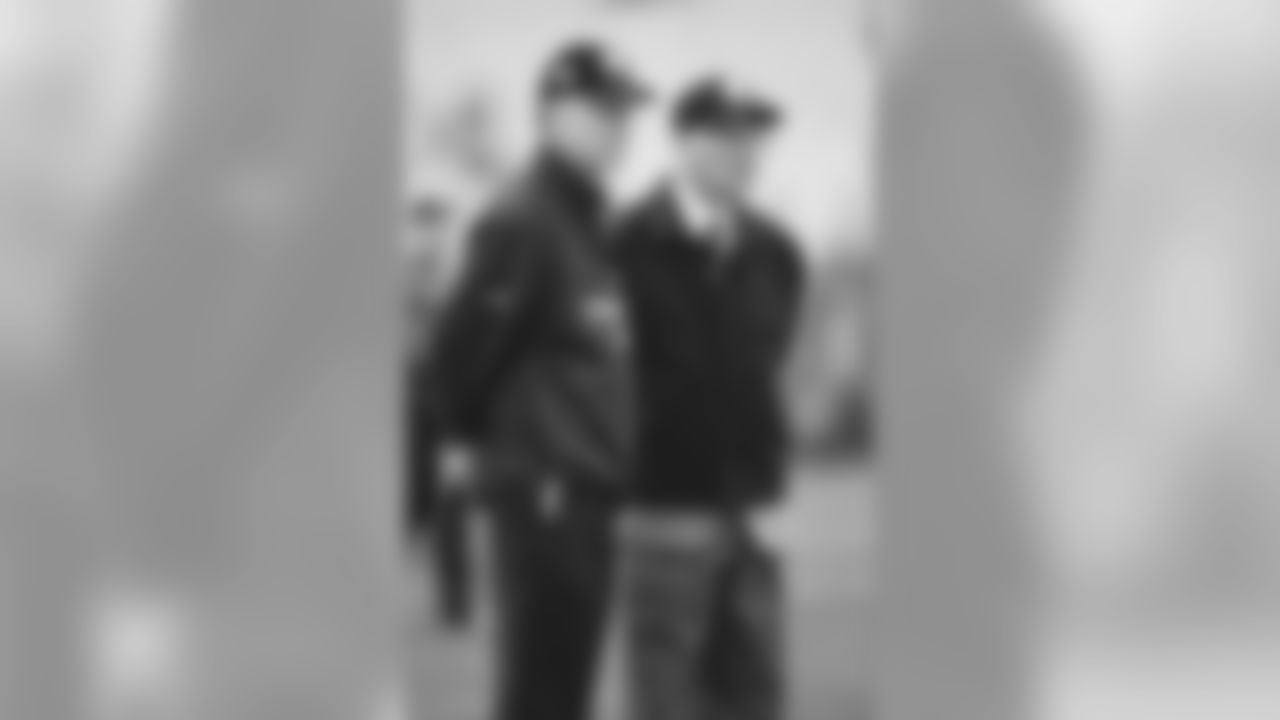
A portrait of Art Rooney II and Dan Rooney.
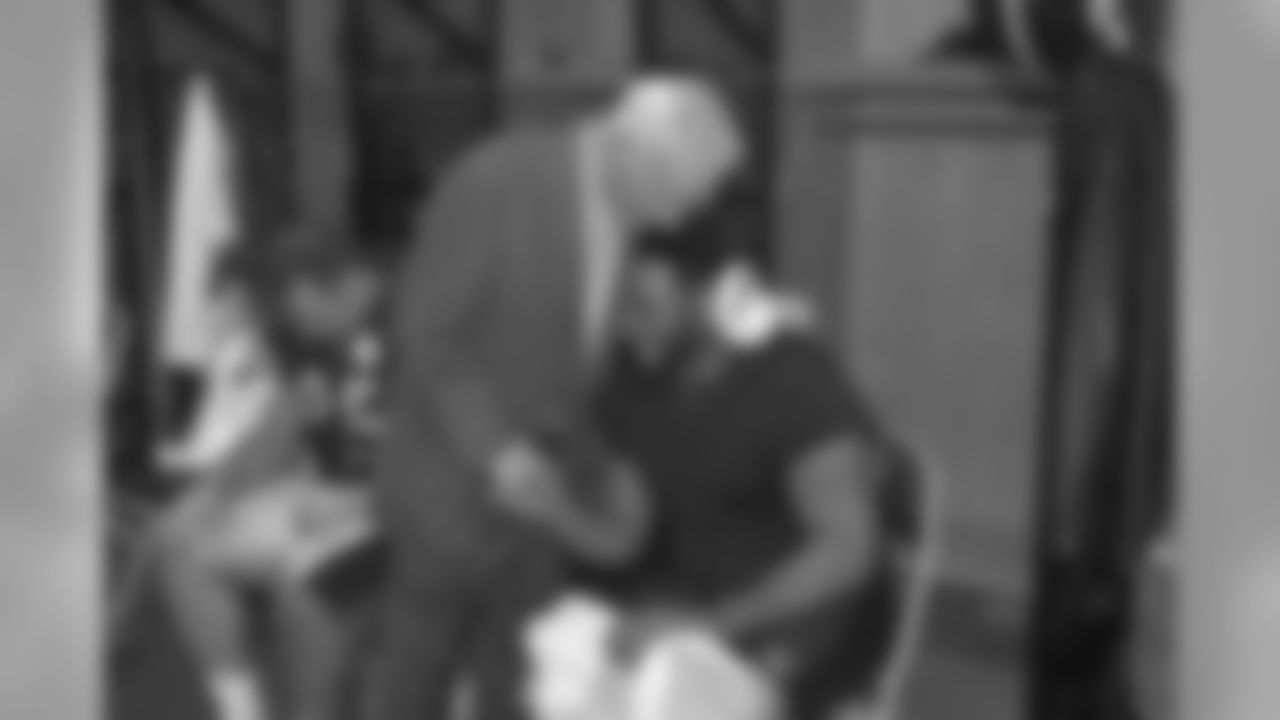
Dan Rooney hugs Jerome Bettis after a Division Round win against the New York Jets January, 15 2005.

Dan Rooney and Art Rooney II sit down to talk with newly drafted QB Ben Roethlisberger after he first arrived to the Steelers facilities in 2004.

Dan Rooney shakes hands with the 2004 1st Round Draft pick Ben Roethlisberger at a press conference presenting him his jersey.

A portrait of Dan Rooney during a game against the Cleveland Browns at Cleveland Browns Stadium on December 24th, 2005.

A portrait of Dan Rooney during a game against the Houston Texans at Reliant Stadium on September 18th, 2005.
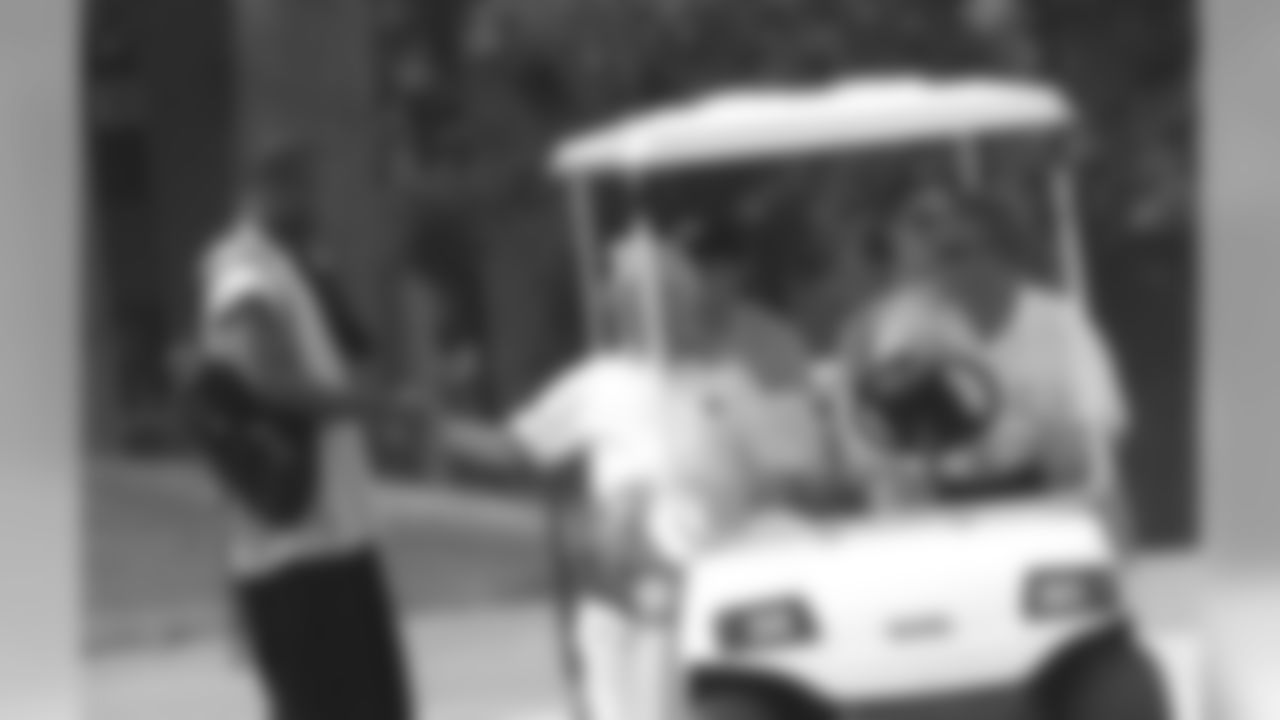
Dan Rooney shakes hands with CB Ike Taylor during the 2005 Training Camp at Saint Vincent College.

Dan Rooney talks with Commissioner Roger Goodell during the 2006 home opener against the Miami Dolphins.

Dan Rooney talks with RB Merril Hoge.

Dan Rooney poses for a photo with Jerome Bettis during the Super Bowl XL ring ceremony at Heinz Field.
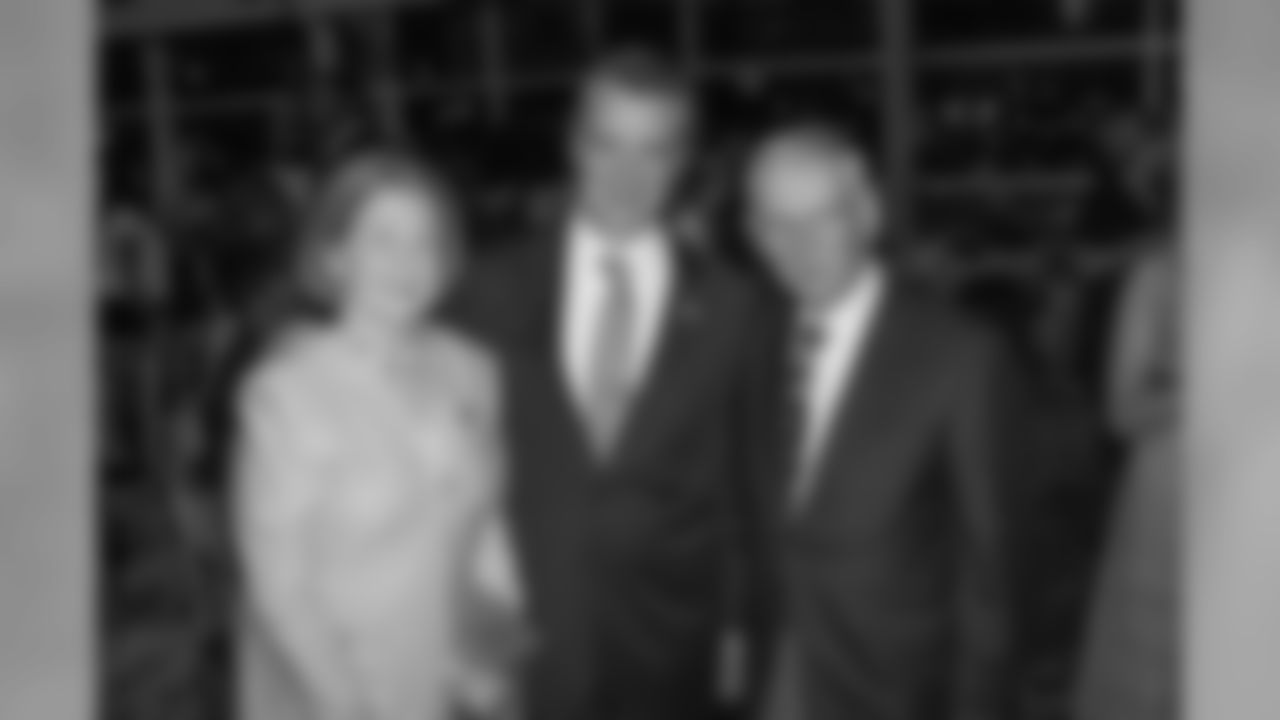
Dan Rooney poses for a photo with his wife Patricia and son Art Rooney II during the Super Bowl XL ring ceremony at Heinz Field.
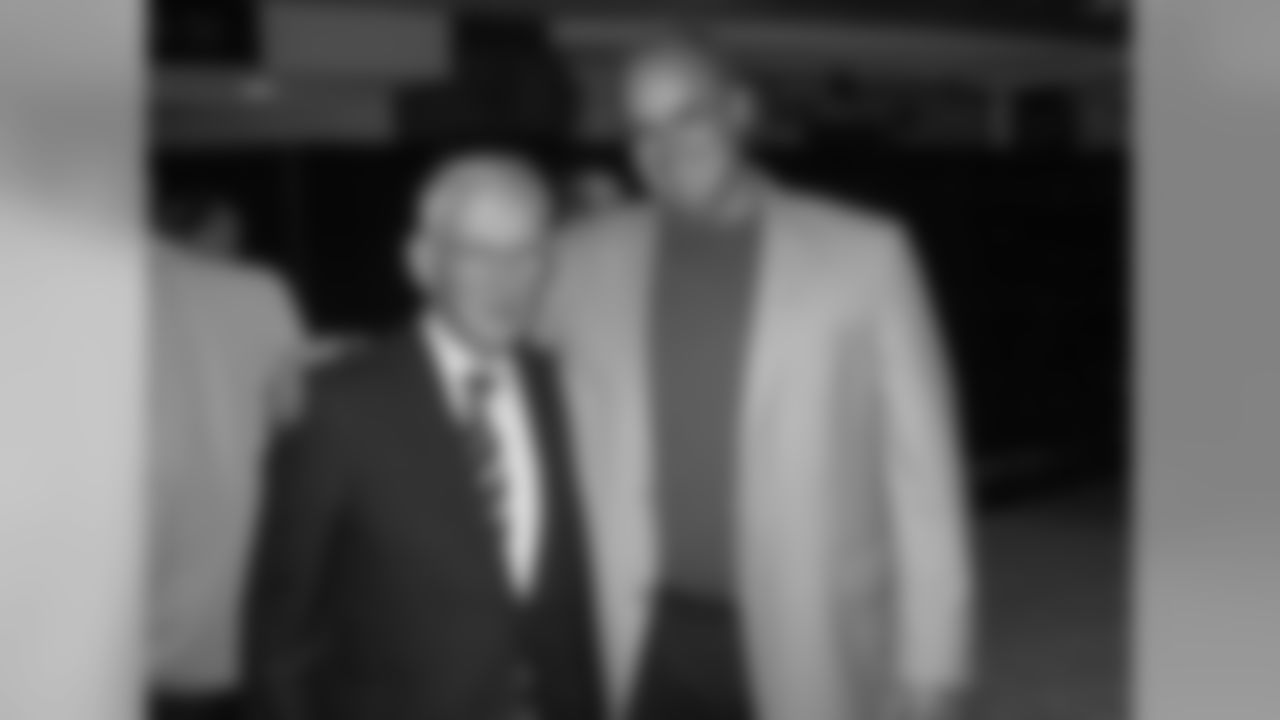
Dan Rooney poses for a photo with General Manager Kevin Colbert during the Super Bowl XL ring ceremony at Heinz Field.
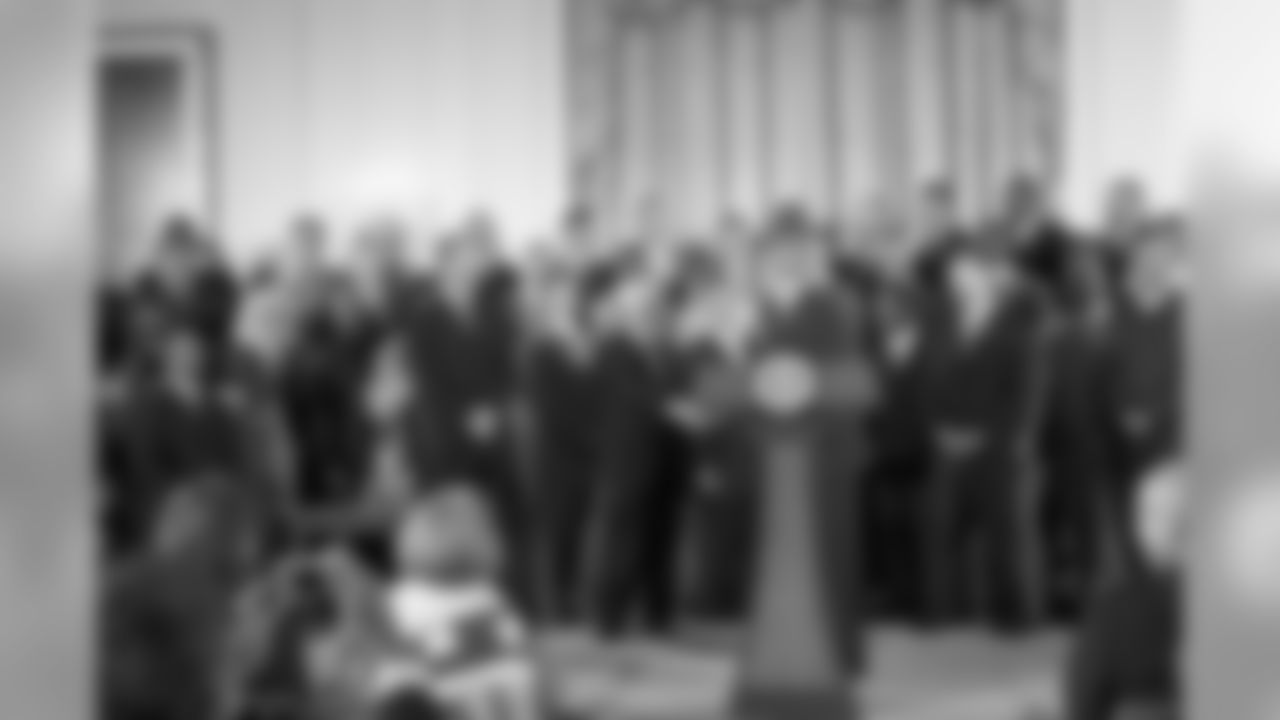
Dan Rooney shakes hands with President George W. Bush during the team's visit to the White House after winning Super Bowl XL.
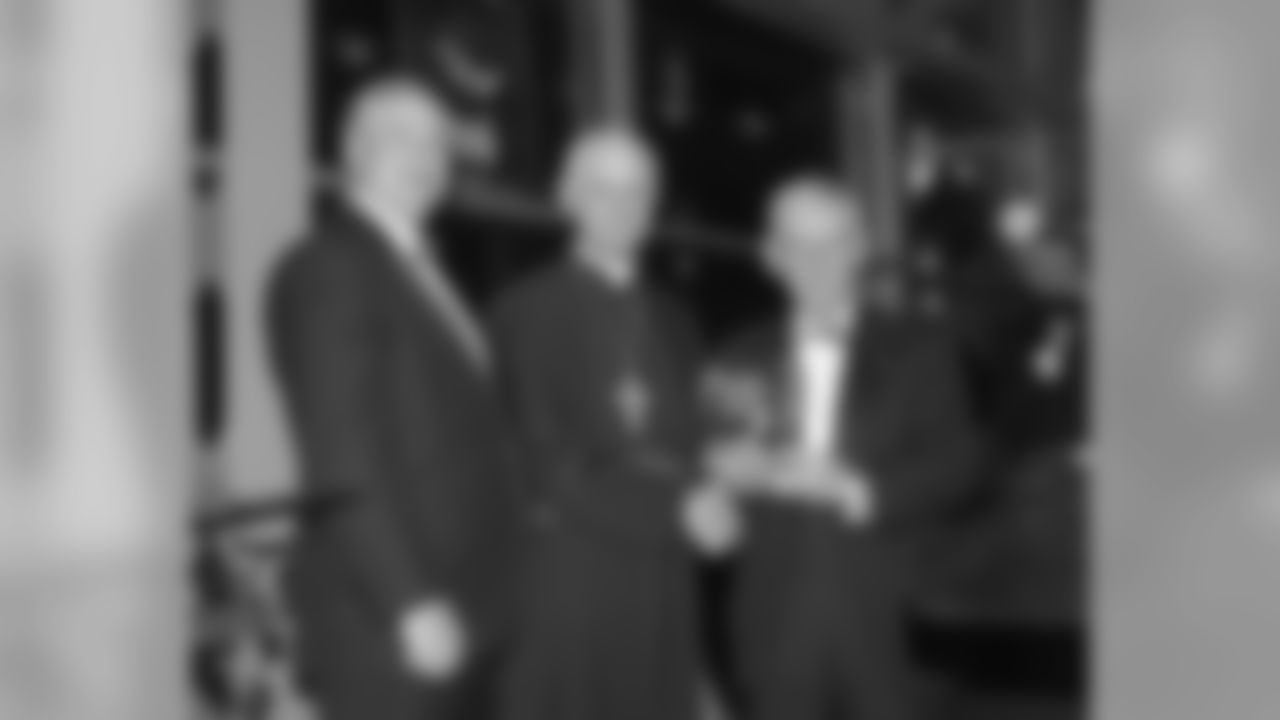
Dan Rooney along with James Rohr present Cardinal Wuerl with the American Ireland Fund honor.
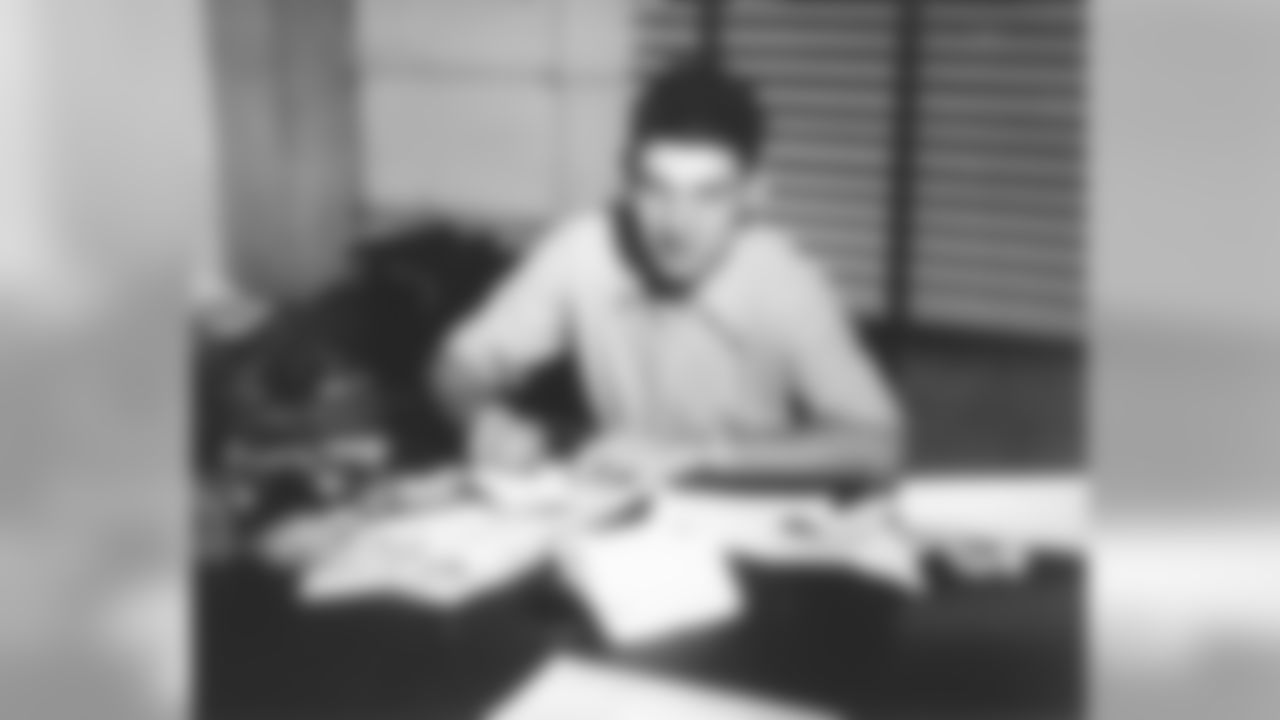
A portrait of Dan Rooney.
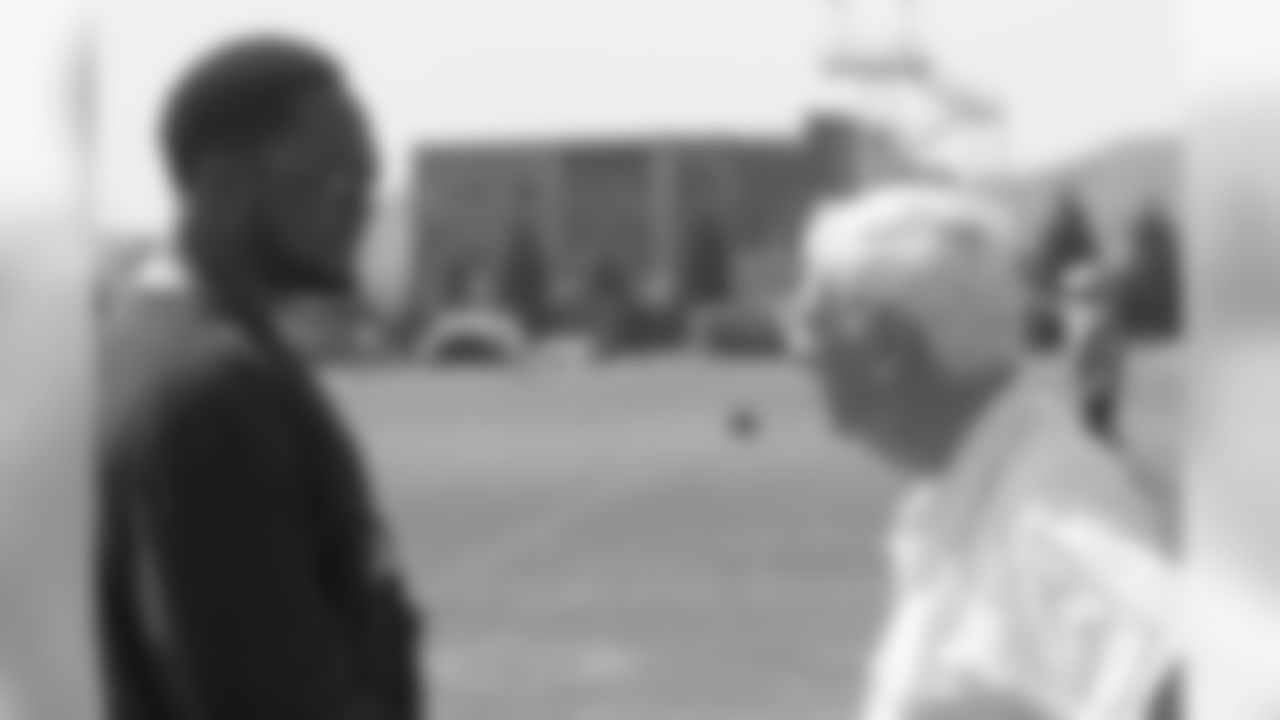
Dan Rooney speaks with Head Coach Mike Tomlin on the practice field during the 2007 Rookie Mini-Camp.
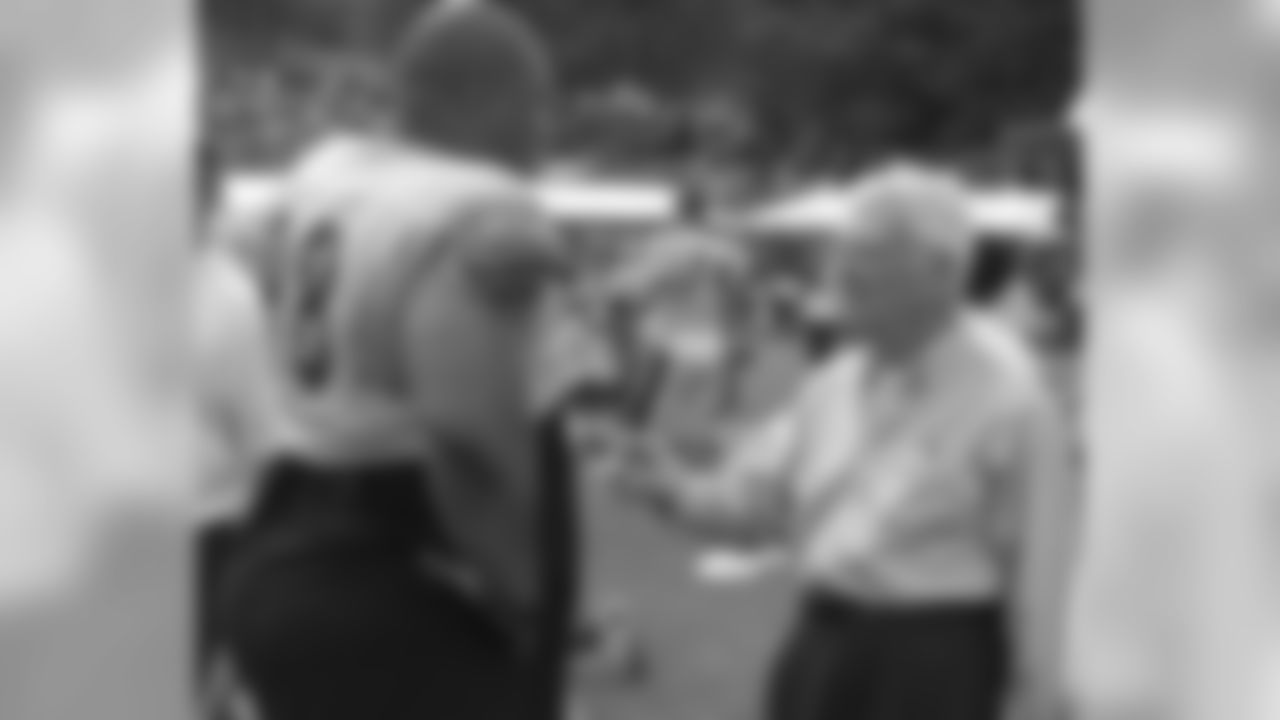
Dan Rooney talks with NT Casey Hampton during the 2007 Training Camp at Saint Vincent College.
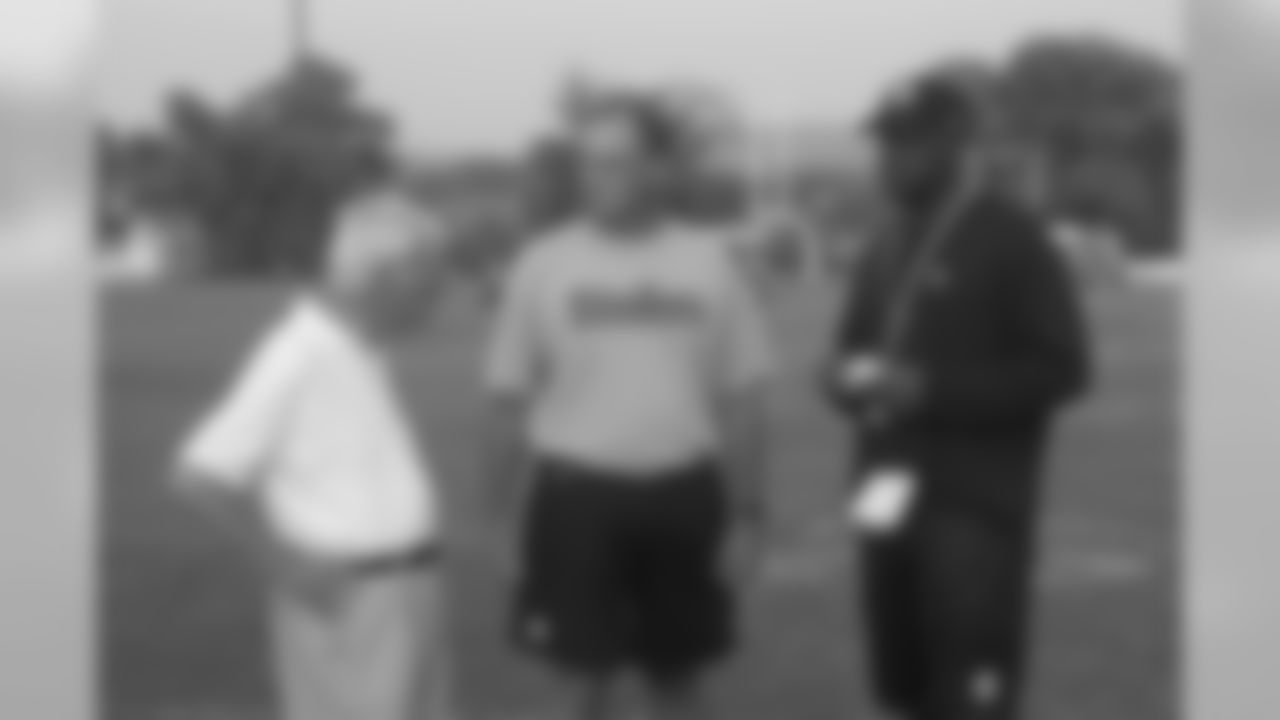
Dan Rooney talks with General Manager Kevin Colbert and Head Coach Mike Tomlin during a 2007 Training Camp at Saint Vincent College.
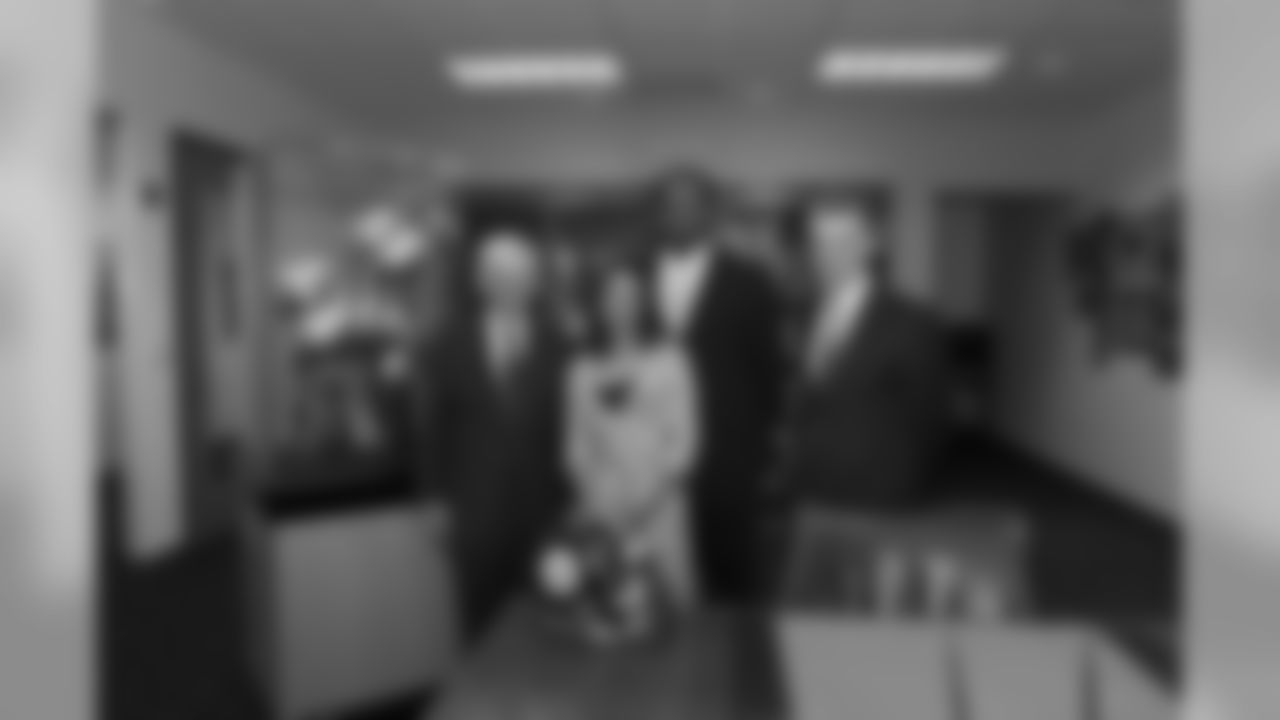
Dan Rooney and Art Rooney II pose for a photo with Mike and Kiya Tomlin after signing Mike Tomlin to the Steelers as Head Coach.
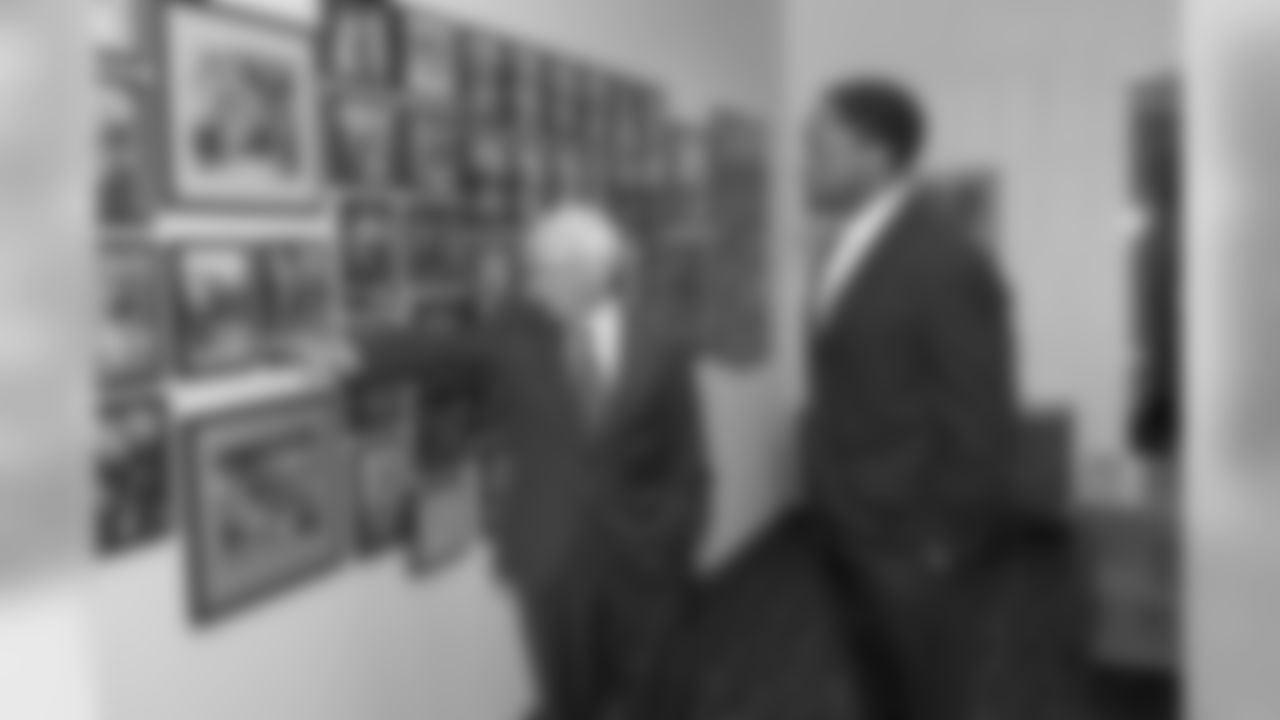
Dan Rooney shows Head Coach Mike Tomlin some historical photographs after signing him to the Head Coaching position.
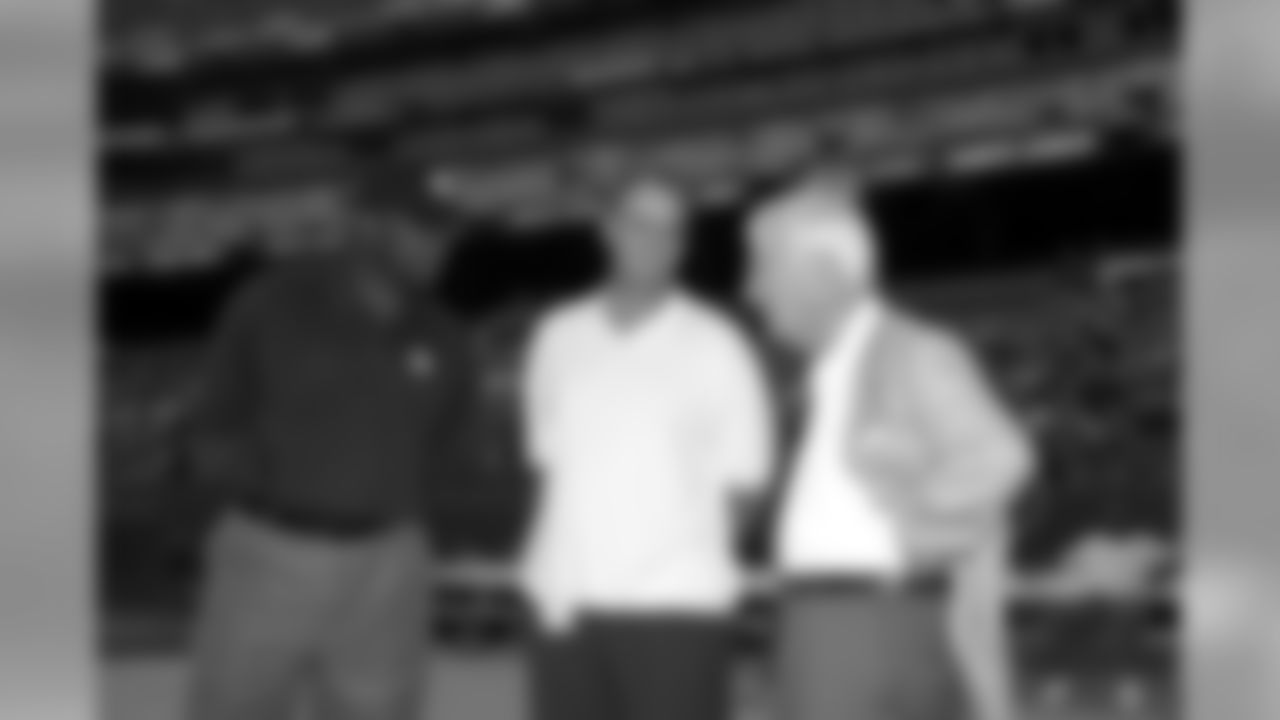
Dan Rooney talks with Head Coach Mike Tomlin and General Manager Kevin Colbert at FedEx Field prior to a preseason game against the Redskins.
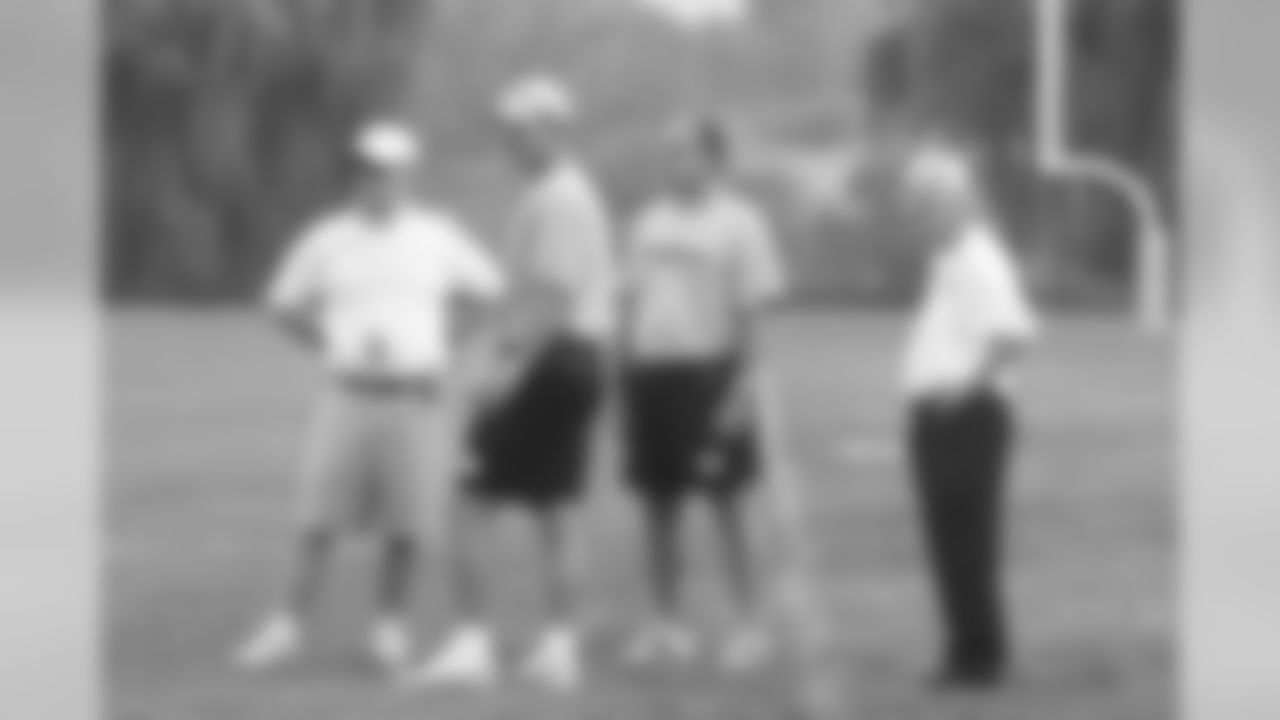
Art Rooney II, Head Coach Bill Cowher, General Manager Kevin Colbert and Dan Rooney on a practice field at Training Camp.
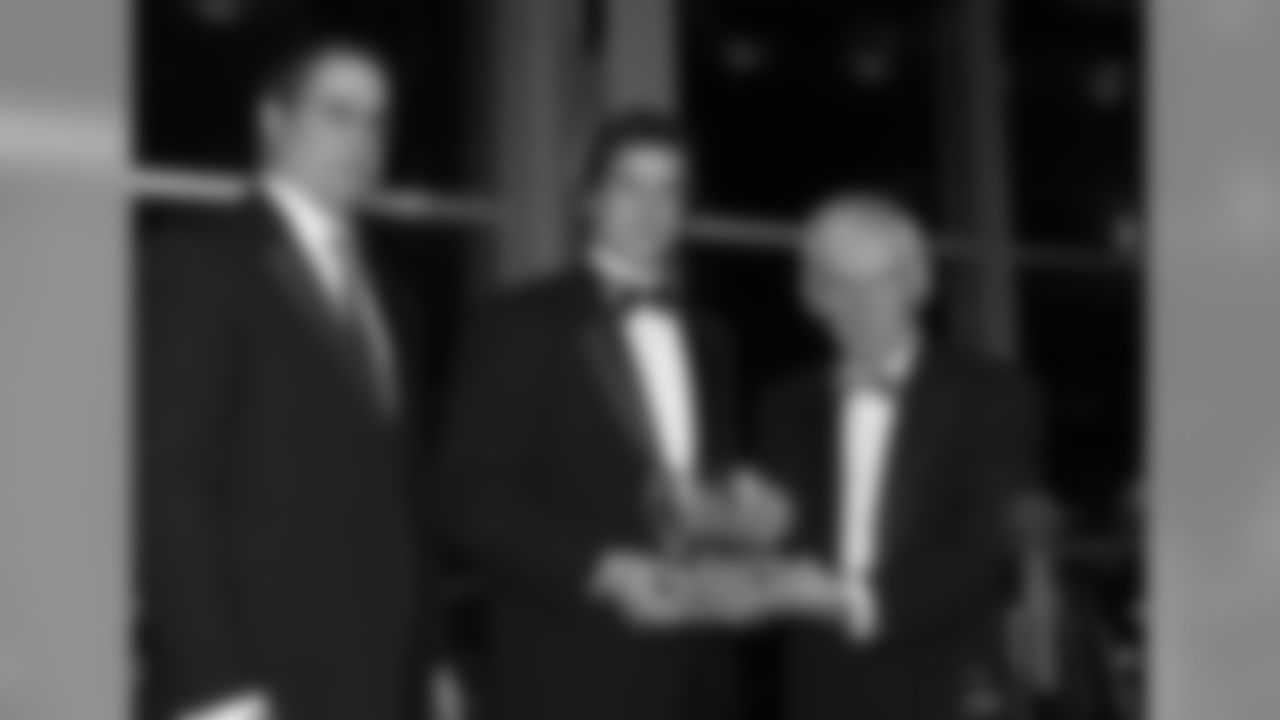
Dan Rooney along with David Morehouse present Sidney Crosby with the American Ireland Fund honor.
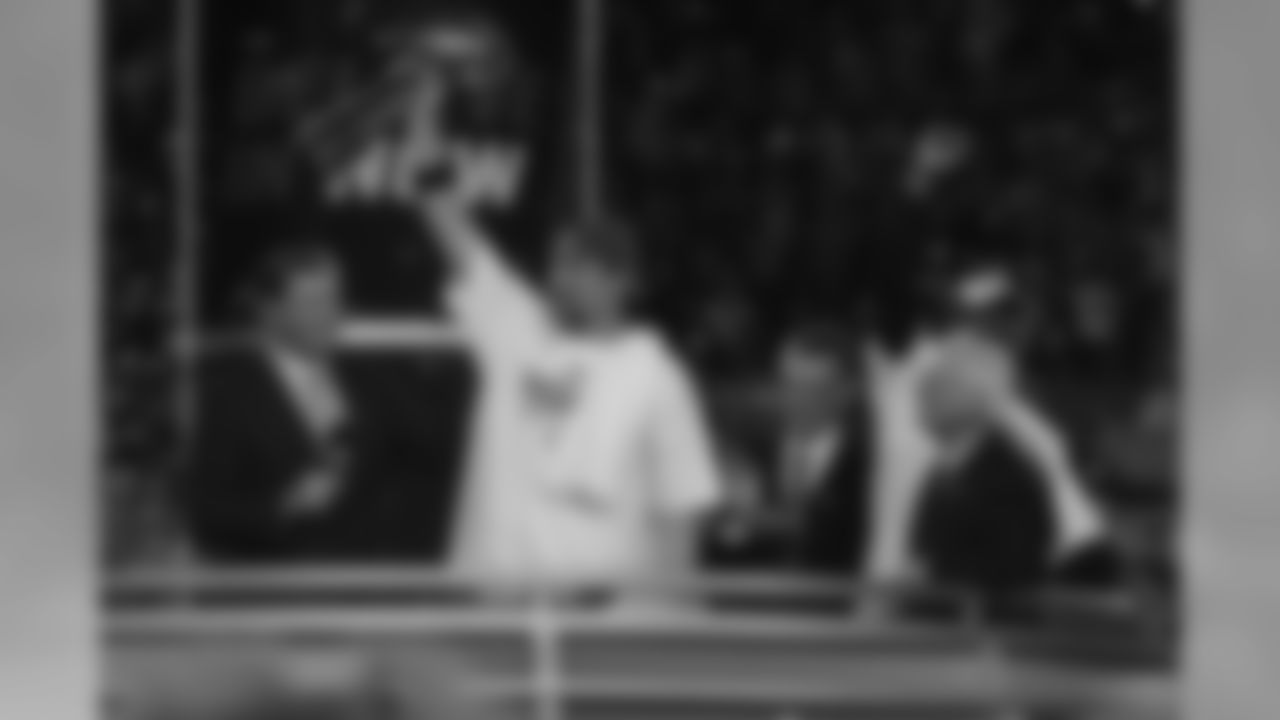
Dan Rooney watches as QB Ben Roethlisberger raises the Lombardi trophy after winning Super Bowl XLIII.
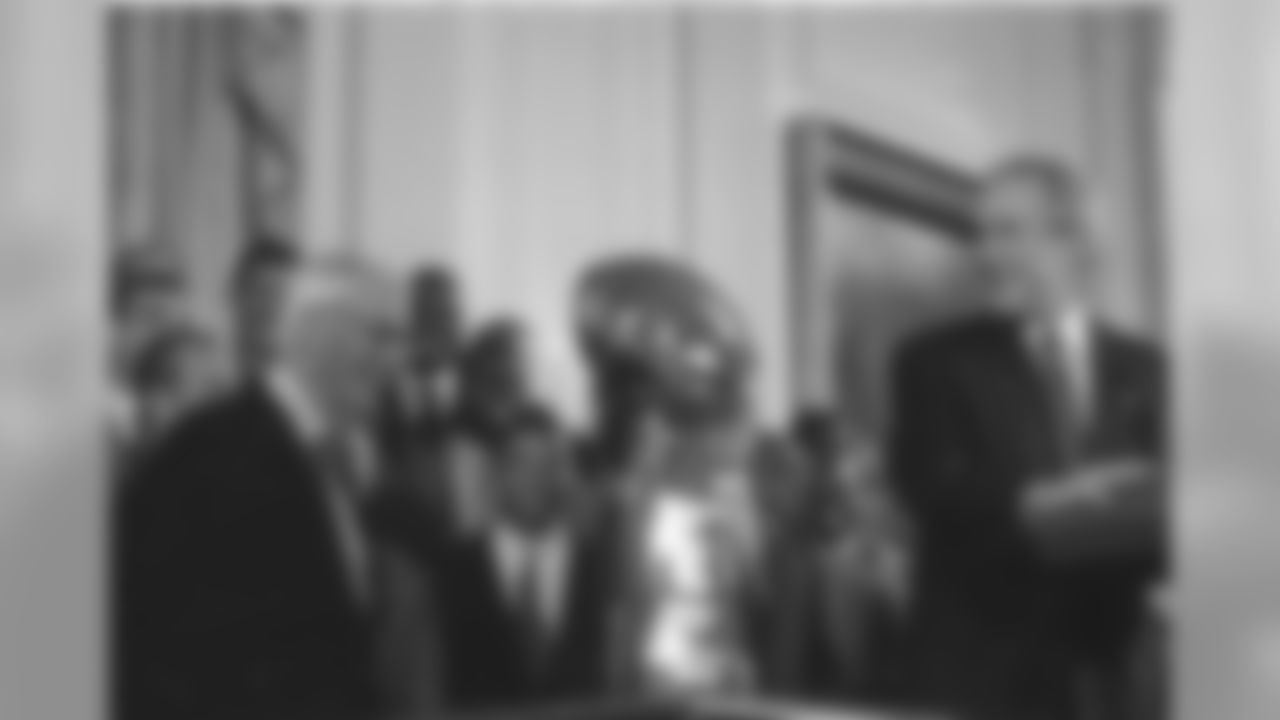
Dan Rooney stands with President George W. Bush during the Steelers White House visit after winning Super Bowl XL.

Dan Rooney talks with James Harrison, James Farrior and Larry Foote.
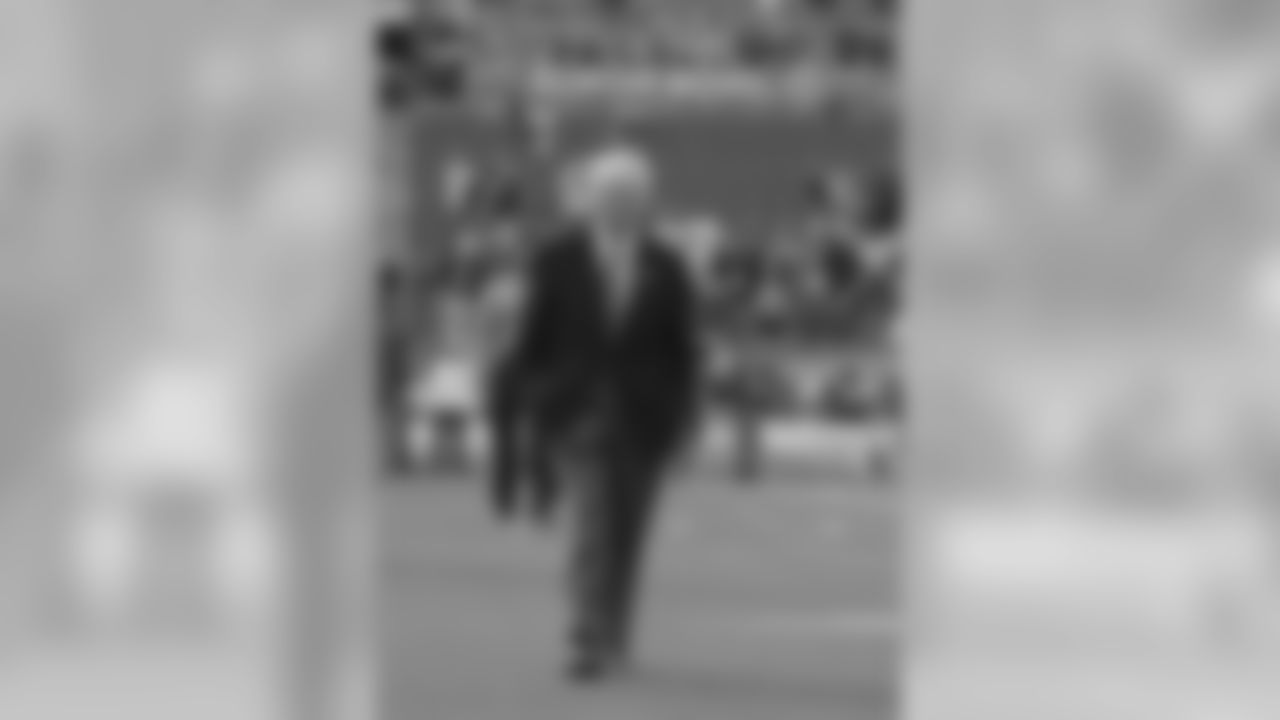
A portrait of Dan Rooney on the field prior to Super Bowl XLIII at Raymond James Stadium on February 1st, 2009.

A portrait of Dan Rooney as he walks onto the field prior to Super Bowl XLIII at Raymond James Stadium on February 1st, 2009.
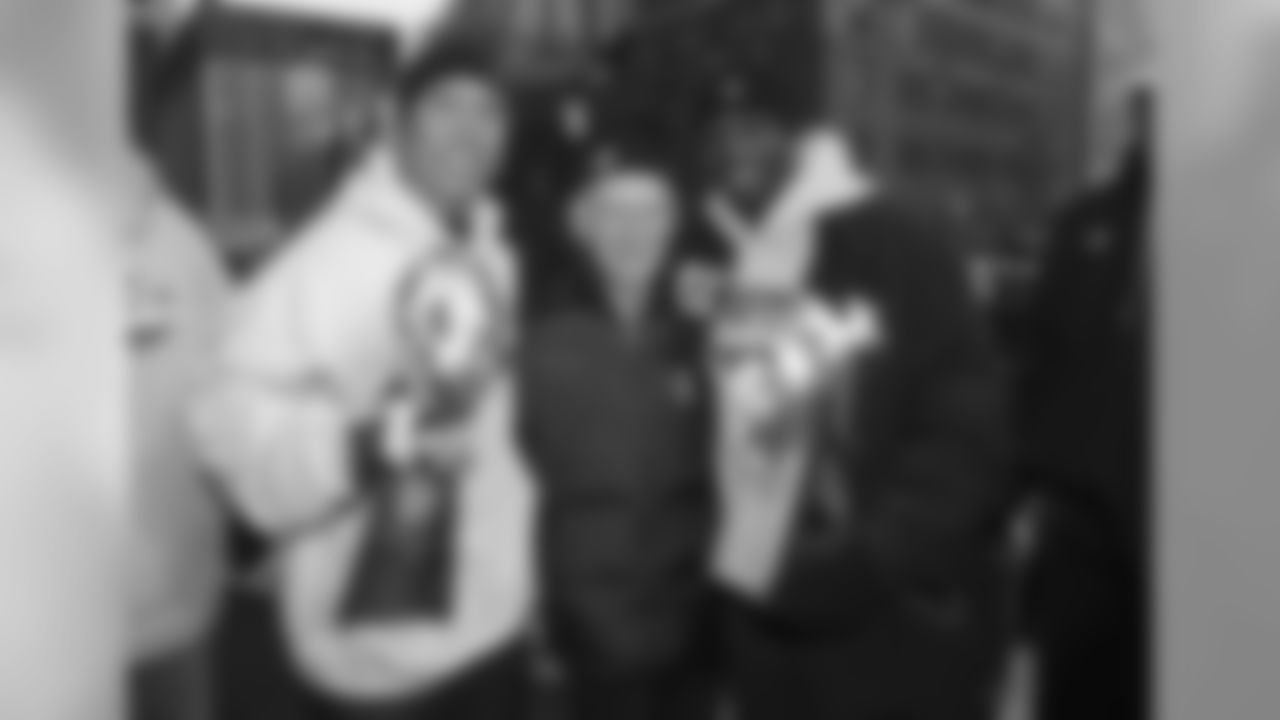
Dan Rooney poses for a photo with Hines Ward and Santonio Holmes during the Steelers parade through downtown Pittsburgh after the Super Bowl XLIII win.
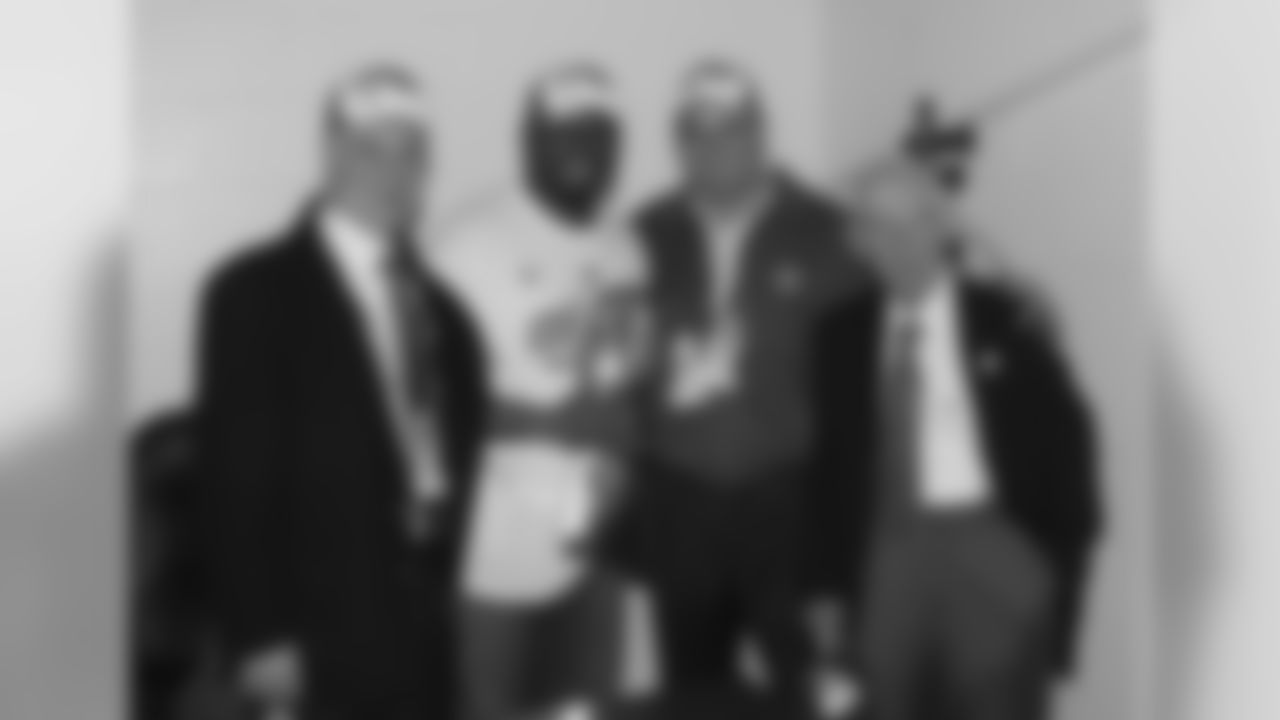
Dan Rooney poses for a photo with Art Rooney II, Head Coach Mike Tomlin and General Manager Kevin Colbert after winning Super Bowl XLIII.
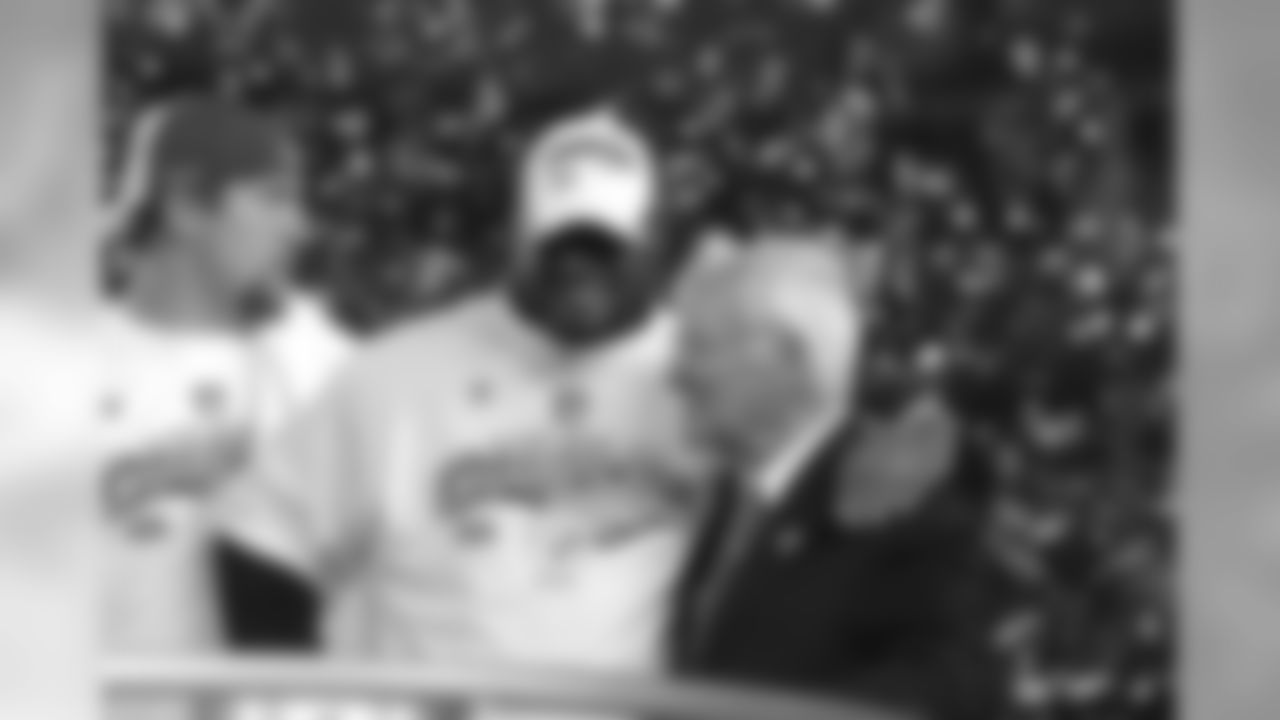
Head Coach Mike Tomlin puts his arm around Dan Rooney on the podium after winning Super Bowl XLIII.
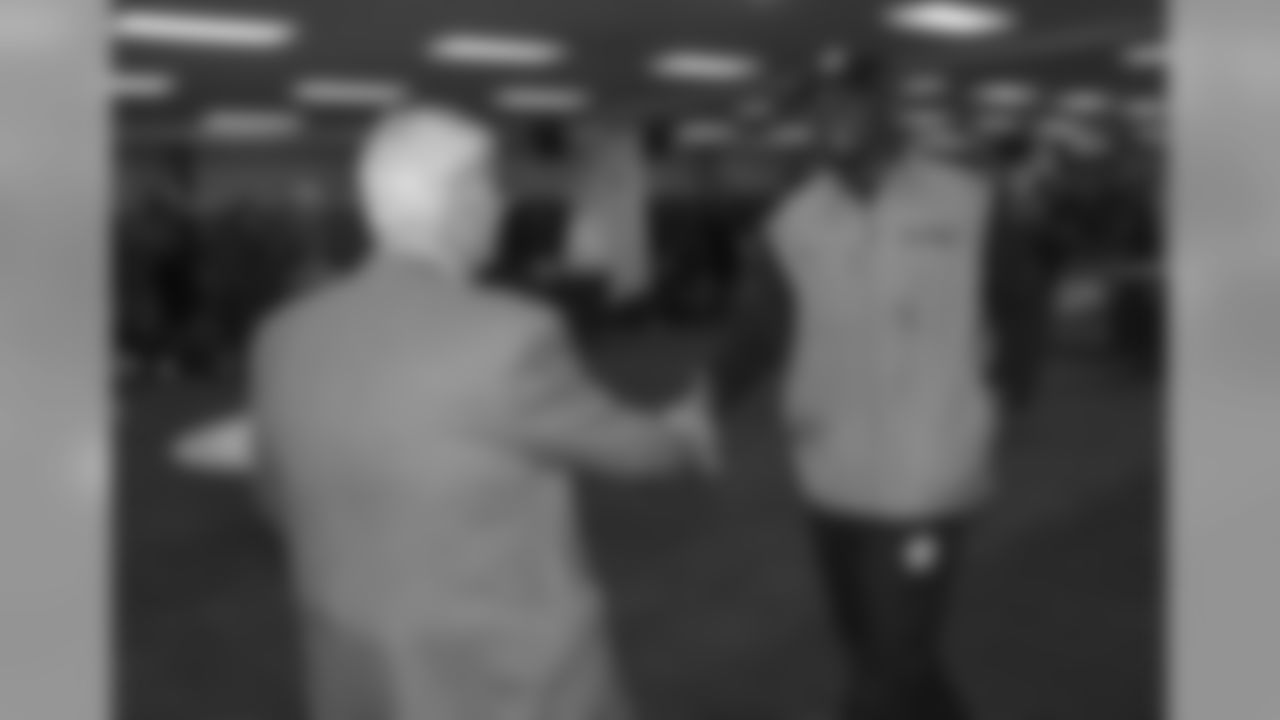
Dan Rooney shakes hands with Head Coach Mike Tomlin in the Steelers locker room after a Divisional Round win against the San Diego Chargers January 11, 2009.
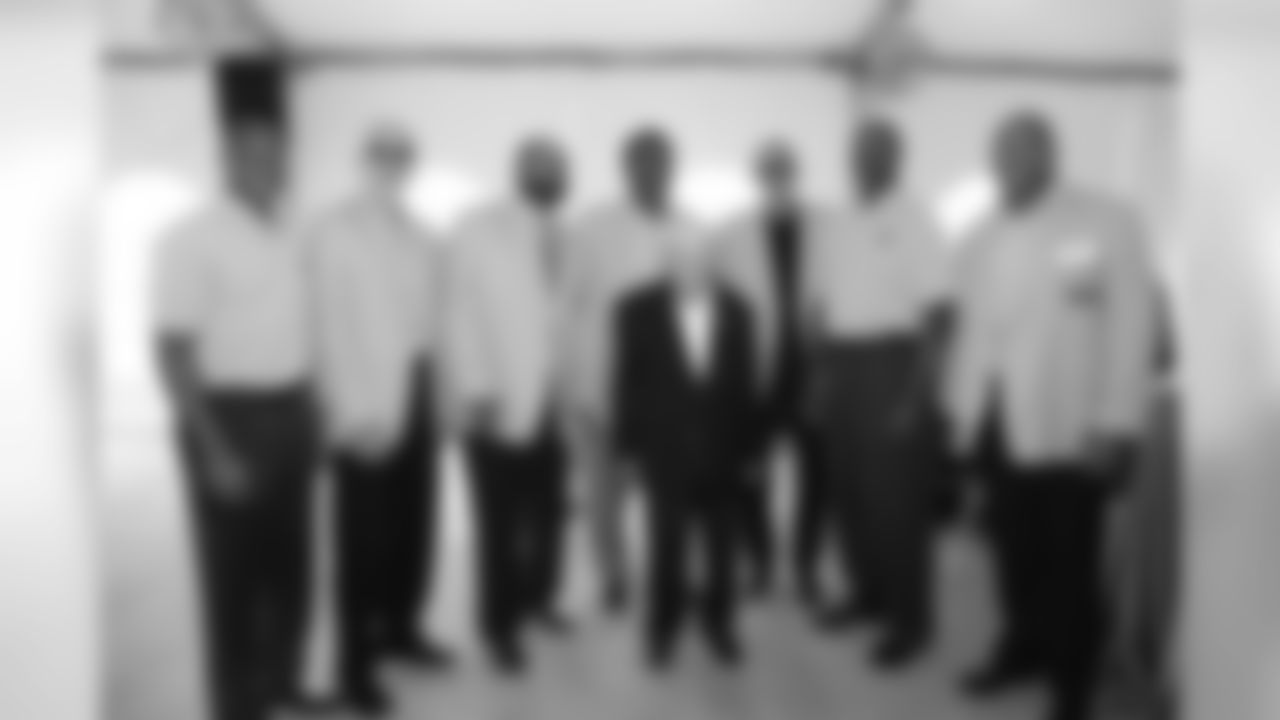
Lynn Swann, Jack Ham, Franco Harris, Joe Greene, Dan Rooney, Jack Lambert, Mel Blount and Dermontti Dawson.
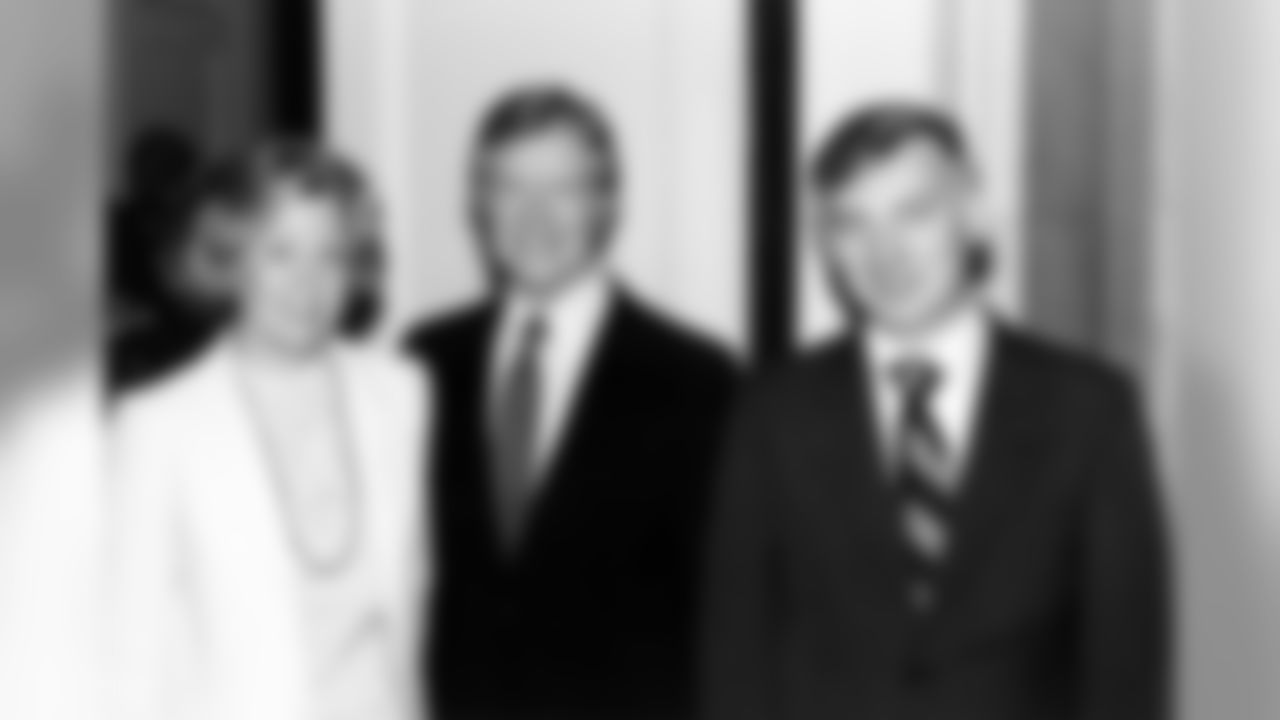
Dan Rooney and his wife Patricia are photographed with President Jimmy Carter during the Steelers visit to the White House.

The Chief and Dan Rooney.
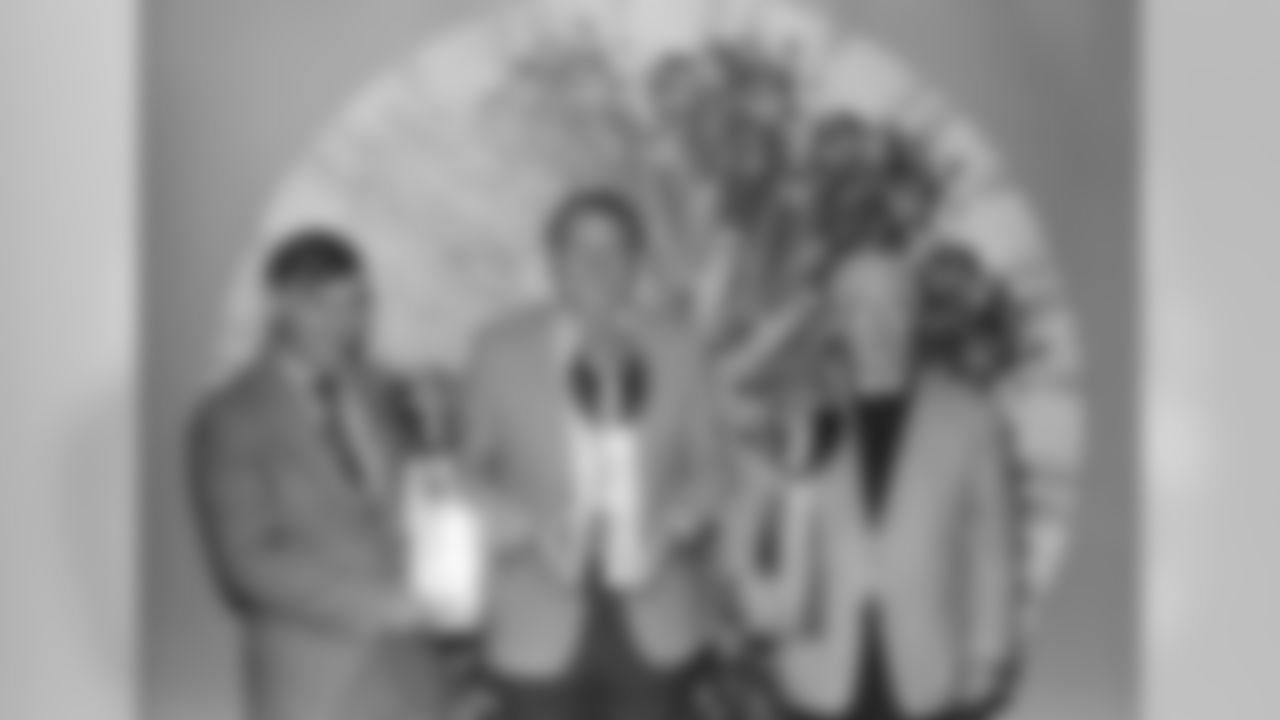
Dan Rooney, Chuck Noll and Art Rooney each hold a Lombardi trophy in 1979.

Dan Rooney speaks with Joe Greene in his office.
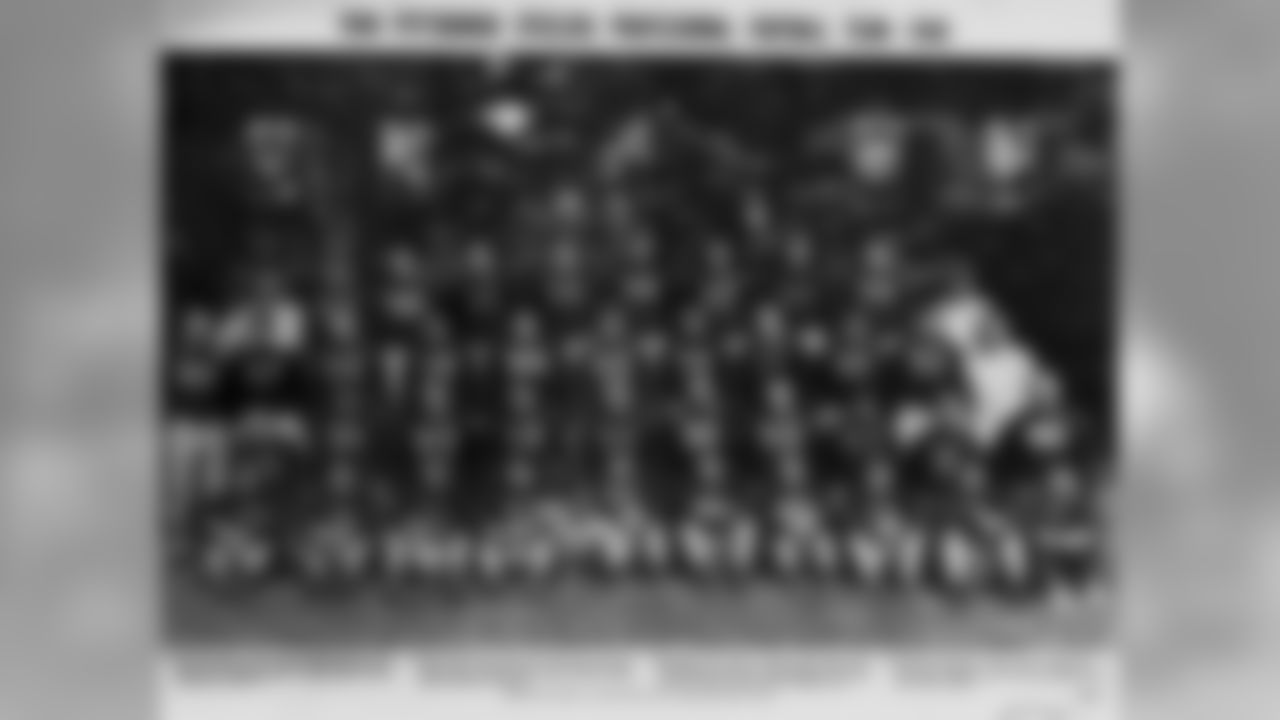
A young Dan Rooney appears in the front row of the 1940 team photo.
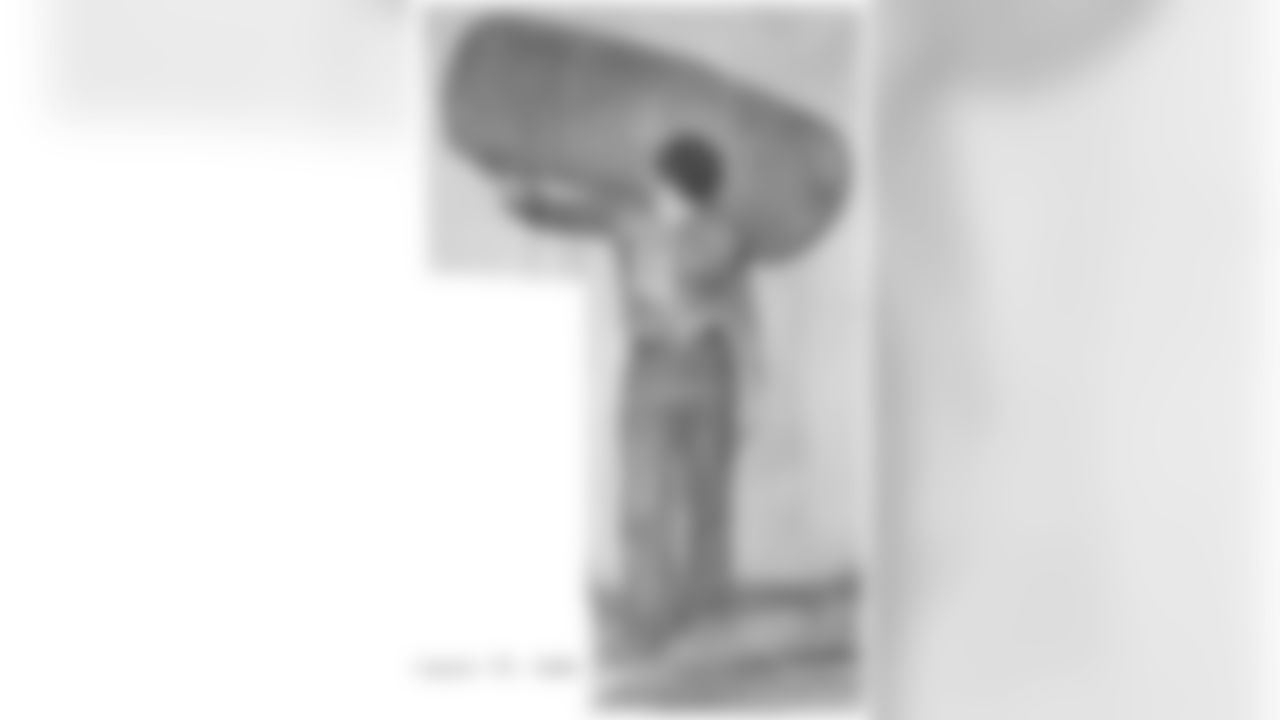
A news clipping shows a young Dan Rooney carrying a tackling dummy at Training Camp 1946.
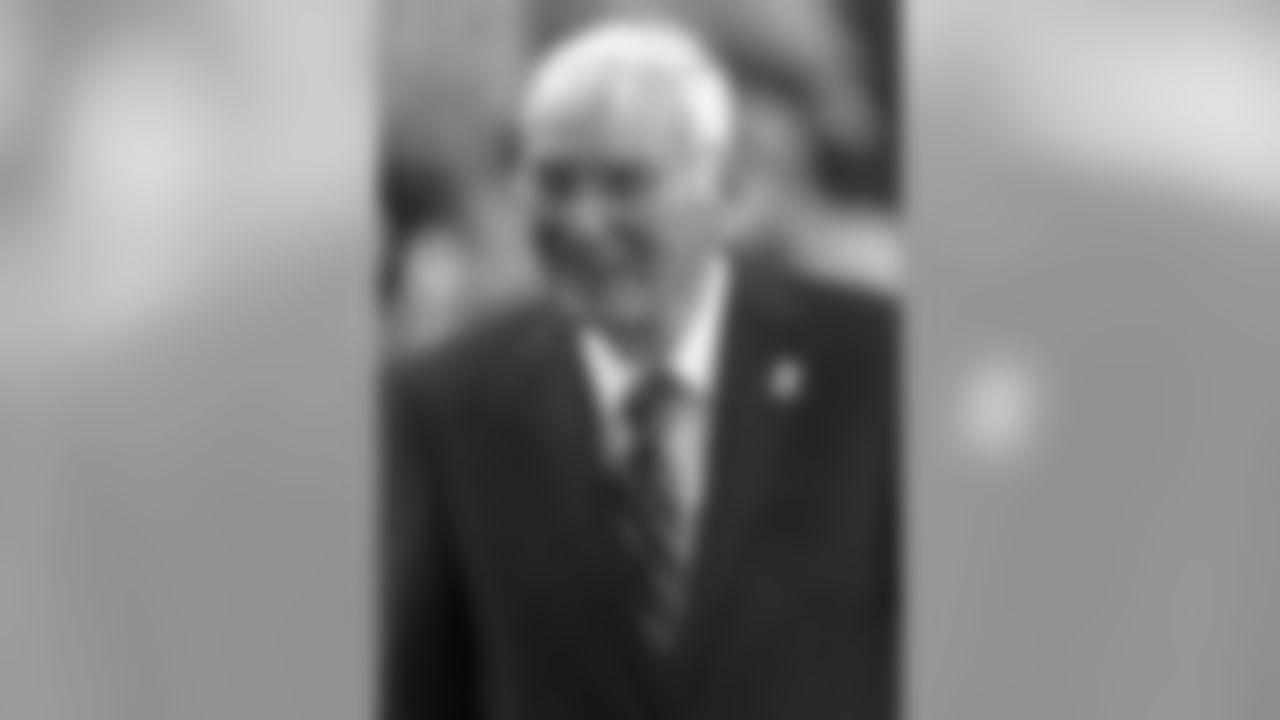
A portrait of Dan Rooney on the field prior to a game against the Dallas Cowboys on December 16th, 2012.
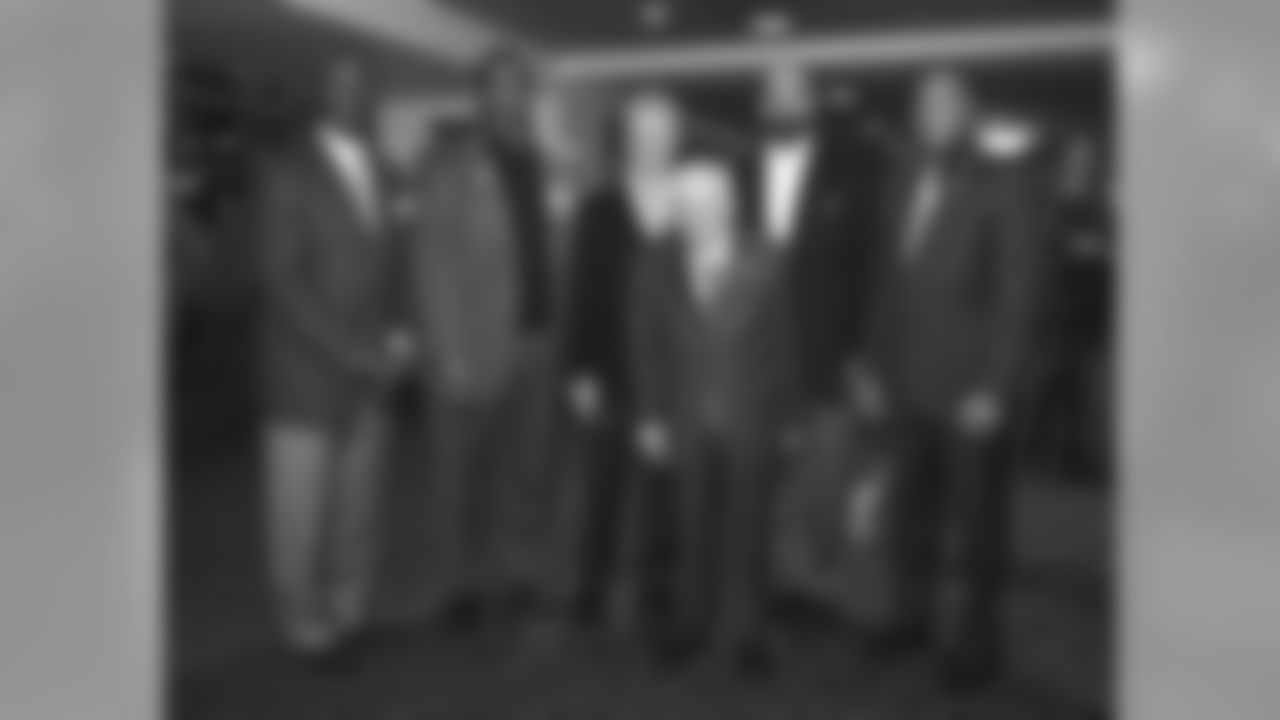
Dan Rooney poses for a photo with John Stallworth, Joe Greene, Art Rooney II, Franco Harris and Lynn Swann during an Alumni dinner at Heinz Field.
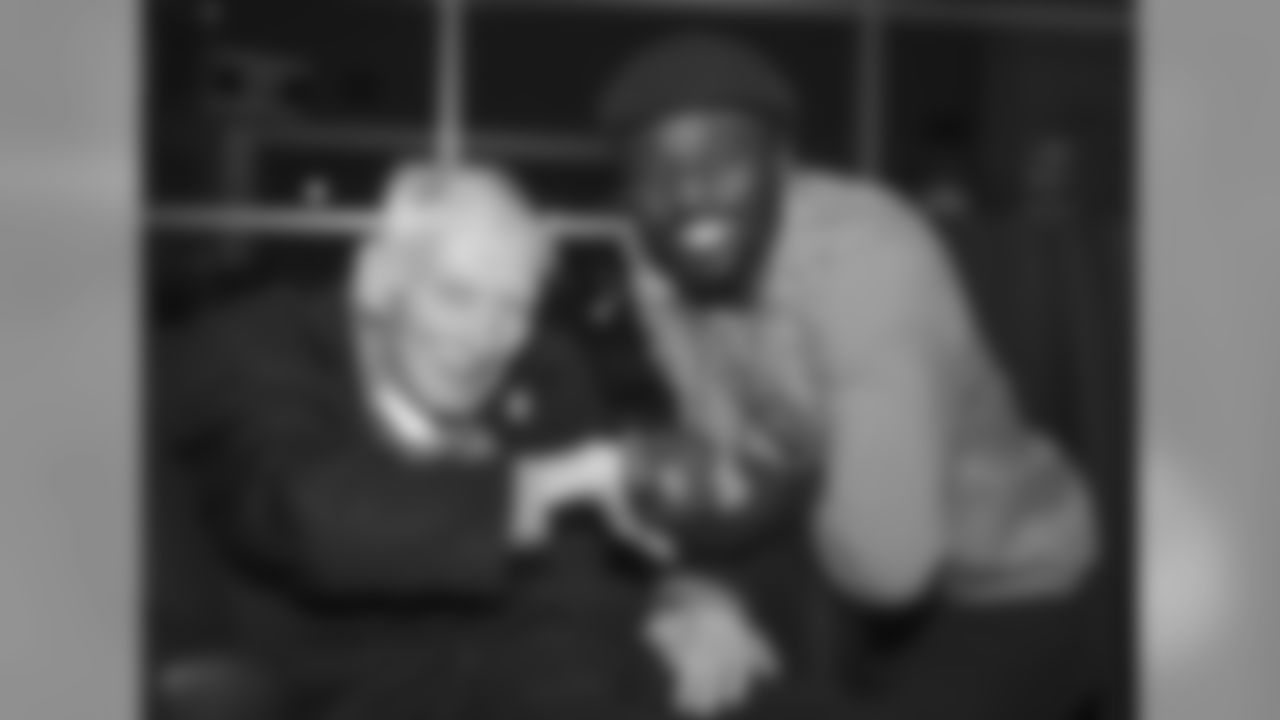
Dan Rooney poses for a photo with Santonio Holmes during an Alumni dinner at Heinz Field.
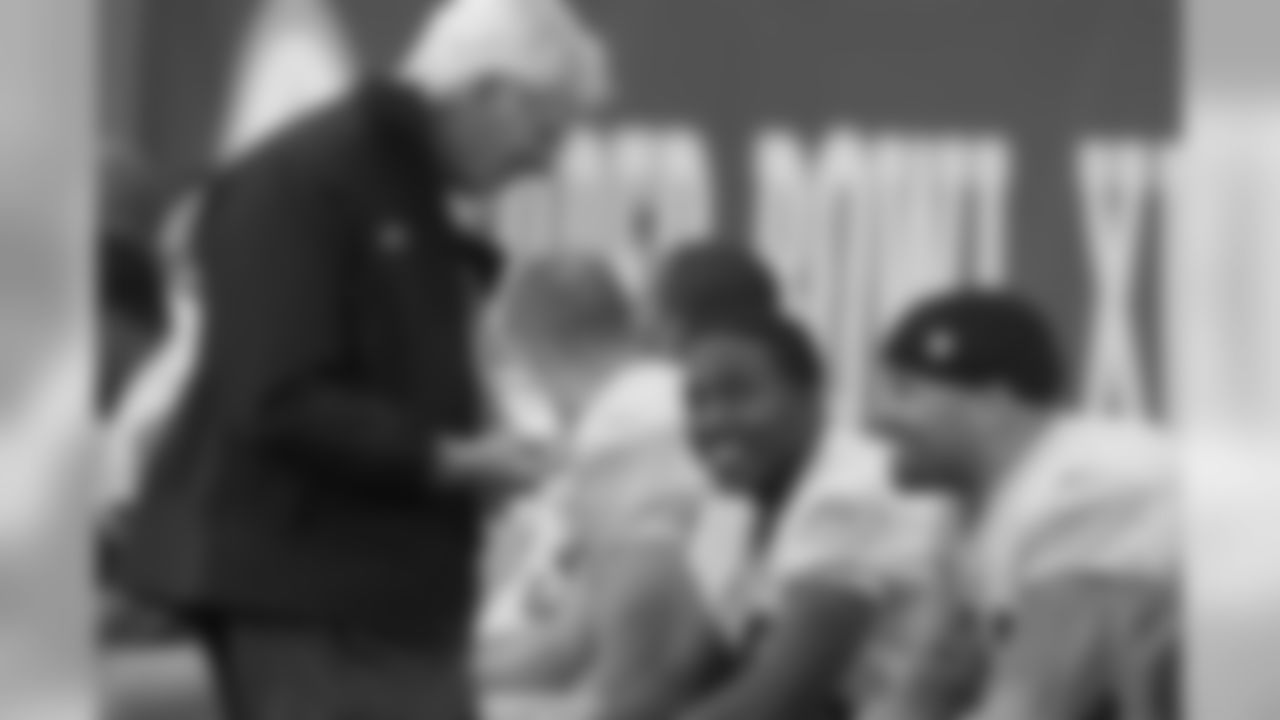
Dan Rooney talks with Deshea Townsend and Larry Foote during a practice before Super Bowl XL.
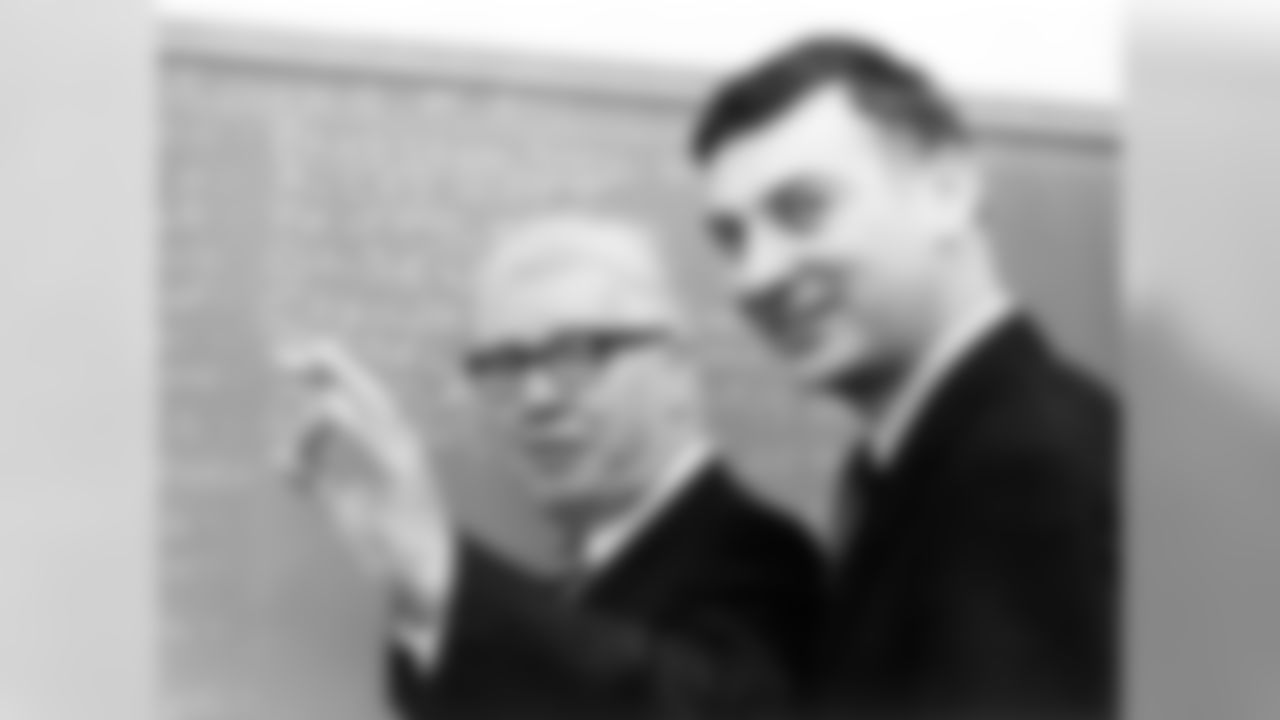
Art Rooney and Dan Rooney stand at a chalk board discussing the Draft.
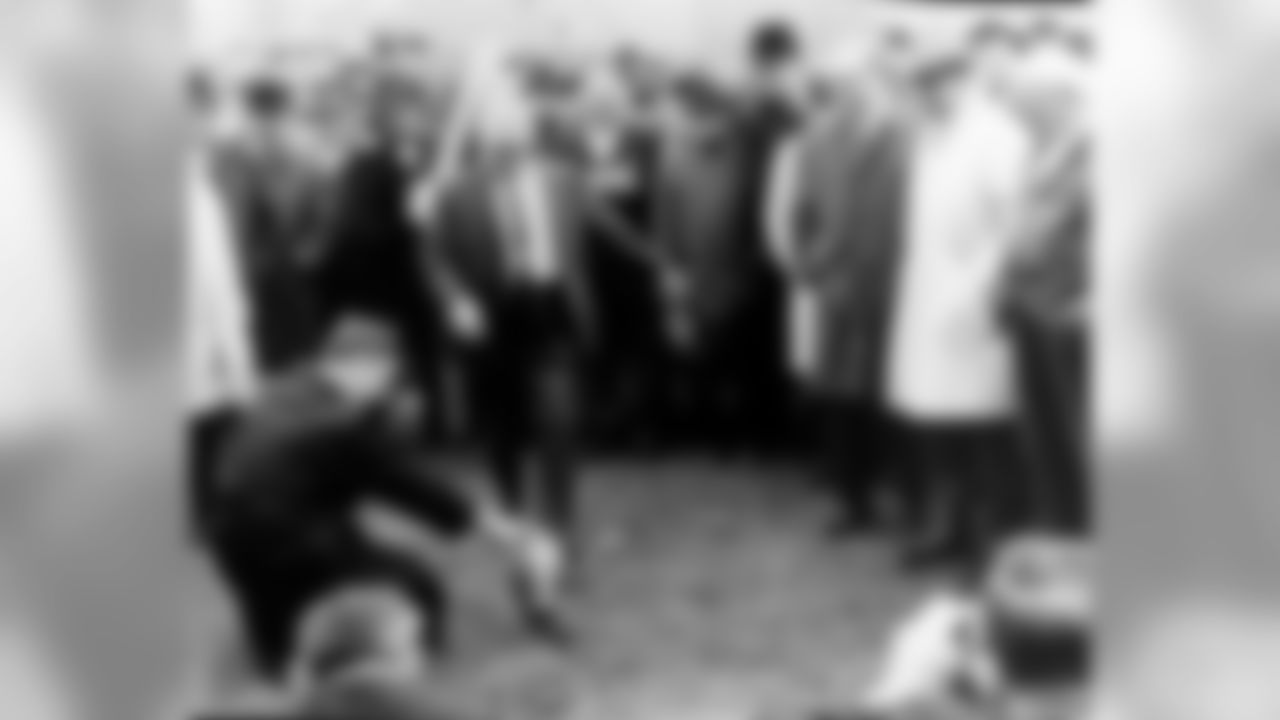
Dan Rooney holds the ball for his father Art Rooney to kick during the 1968 groundbreaking ceremony for Three Rivers Stadium.

Dan Rooney and his son Art Rooney II pose for photographs during a groundbreaking ceremony for Heinz Field.
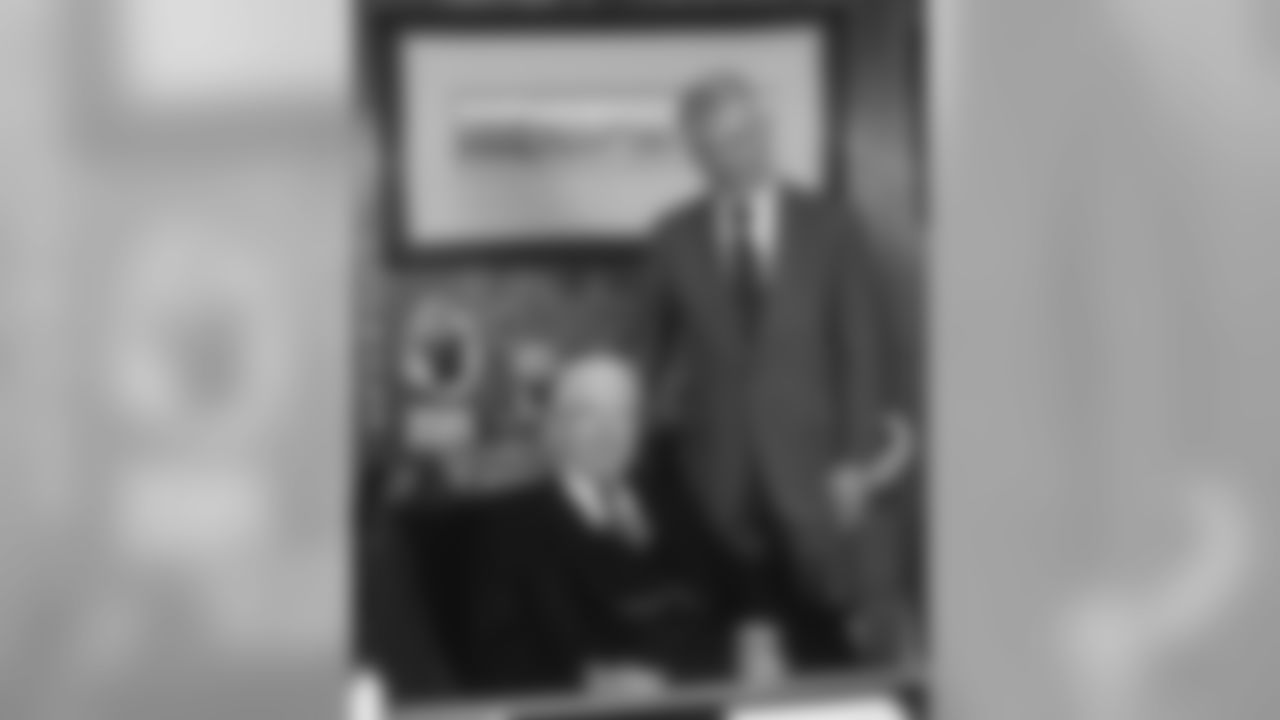
Dan Rooney poses for a photo with his father Art Rooney.
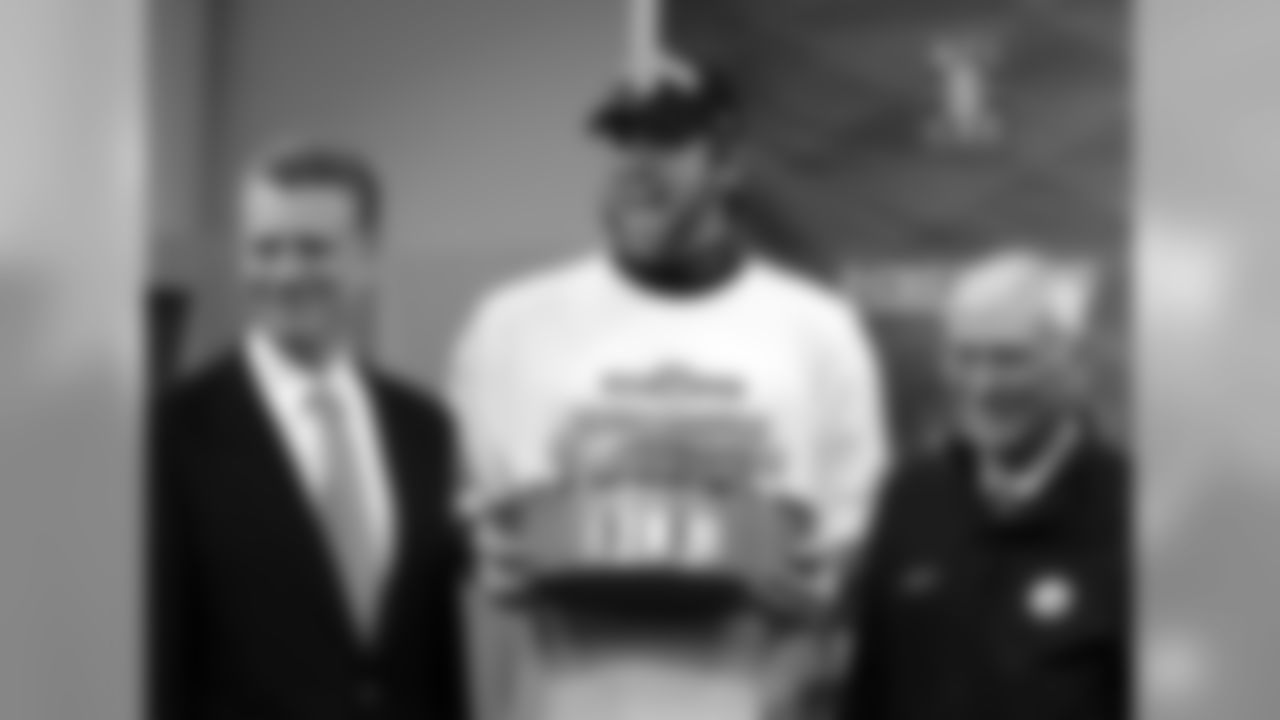
Dan Rooney stands with Art Rooney II and Ben Roethlisberger as they receive the Larmar Hunt trophy after winning the AFC Championship on January 22, 2006.

A portrait of Dan Rooney during a preseason game against the Philadelphia Eagles at Heinz Field in Pittsburgh, Pennsylvania on August 15, 2005.
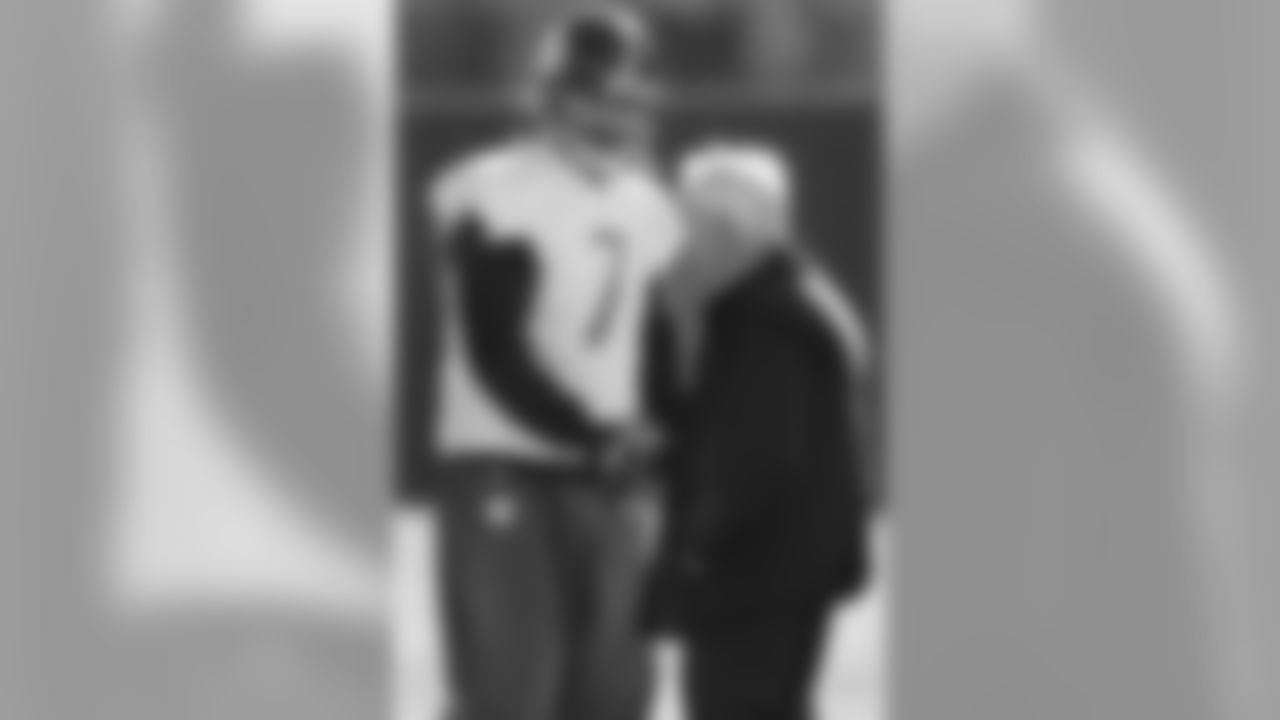
Dan Rooney shakes hands with QB Ben Roethlisberger during practice Thursday, January 19, 2006.
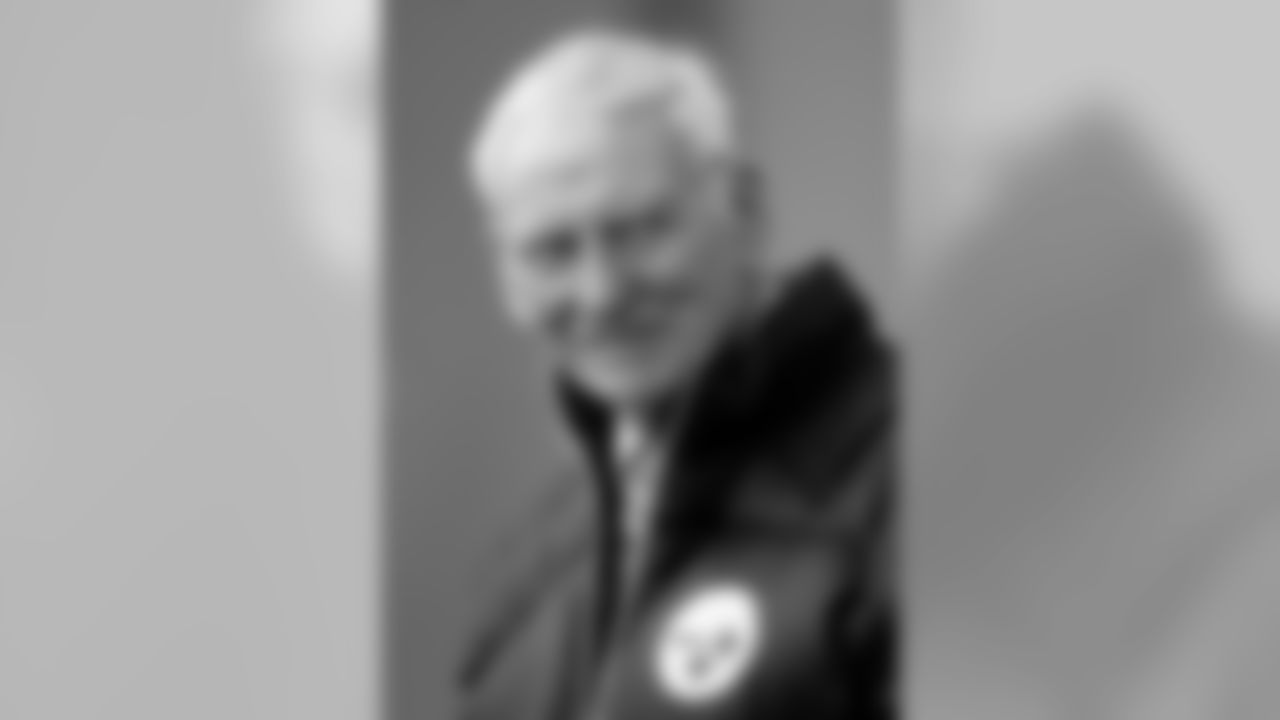
A portrait of Dan Rooney during Steelers practice in Pittsburgh on Wednesday, January 14, 2009.

A portrait of Dan Rooney.
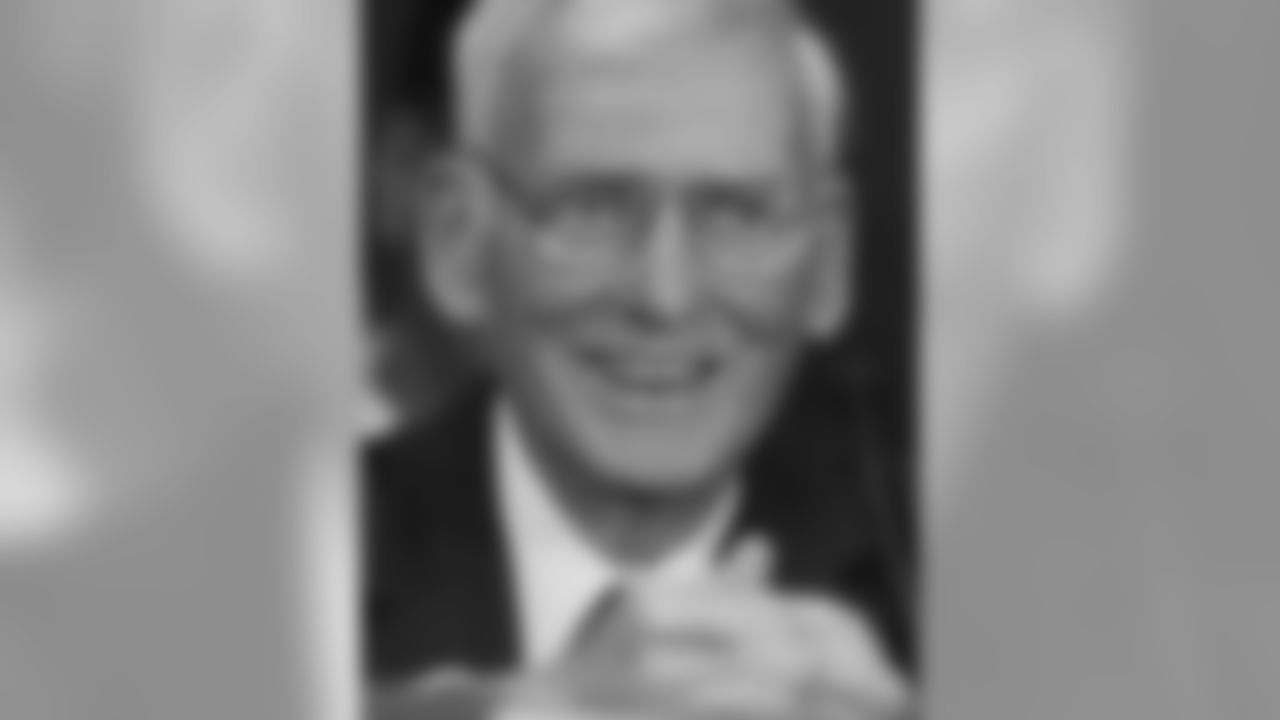
A portrait of Dan Rooney.
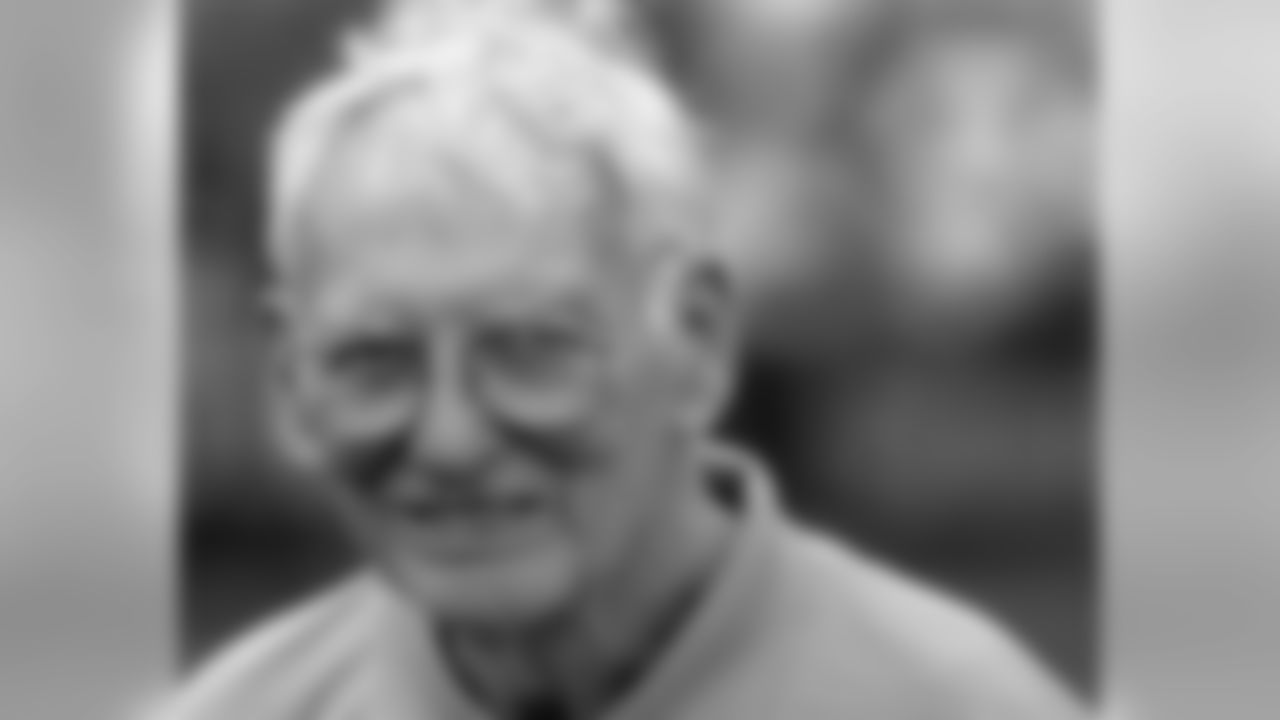
A portrait of Dan Rooney.
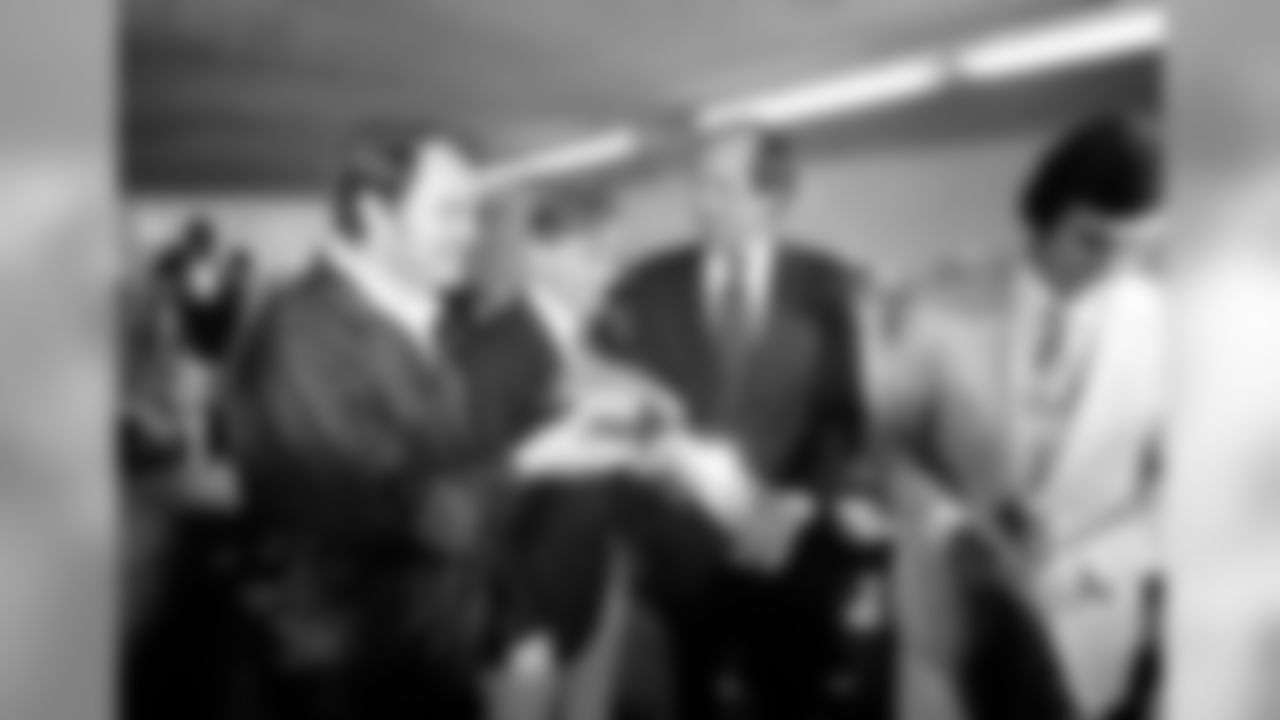
Peter Rozelle, presents the Super Bowl trophy to Pittsburgh Steelers president Dan Rooney, center, and coach Chuck Noll after Steelers beat the Dallas Cowboys, 21-17, to win Super Bowl X in the Orange Bowl in Miami, January 18, 1976.
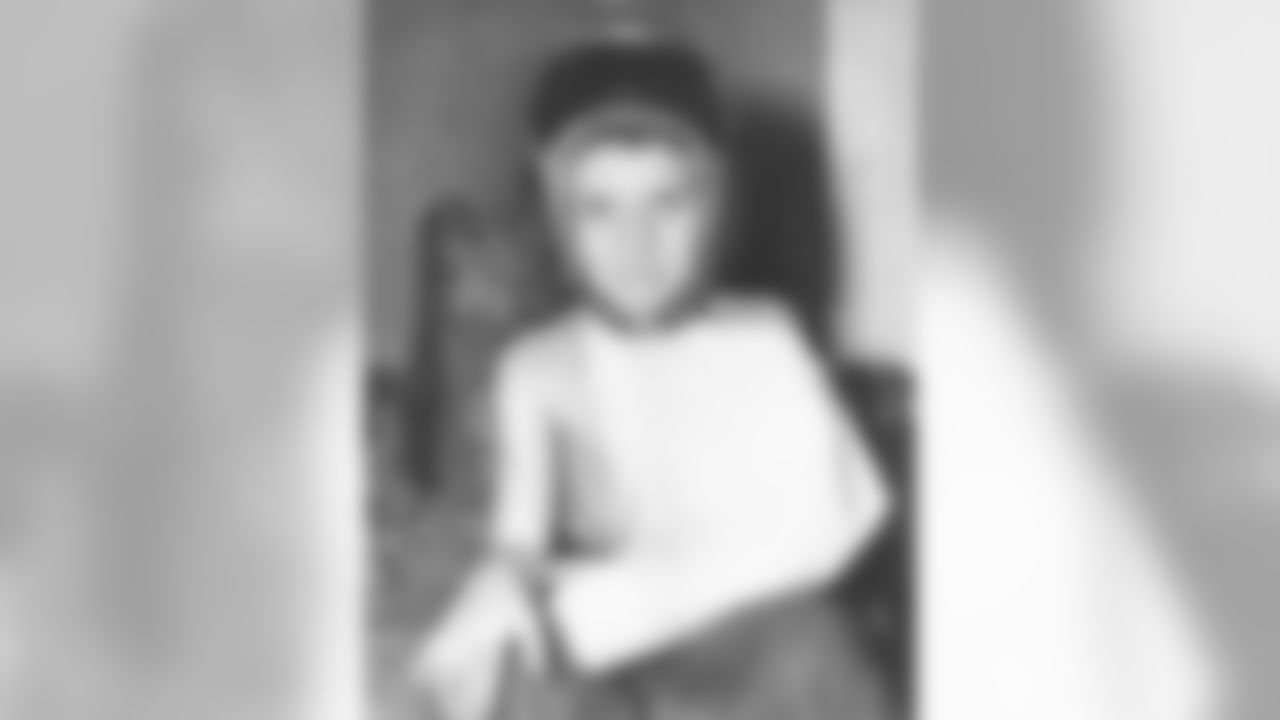
A young Dan Rooney with a broken arm.
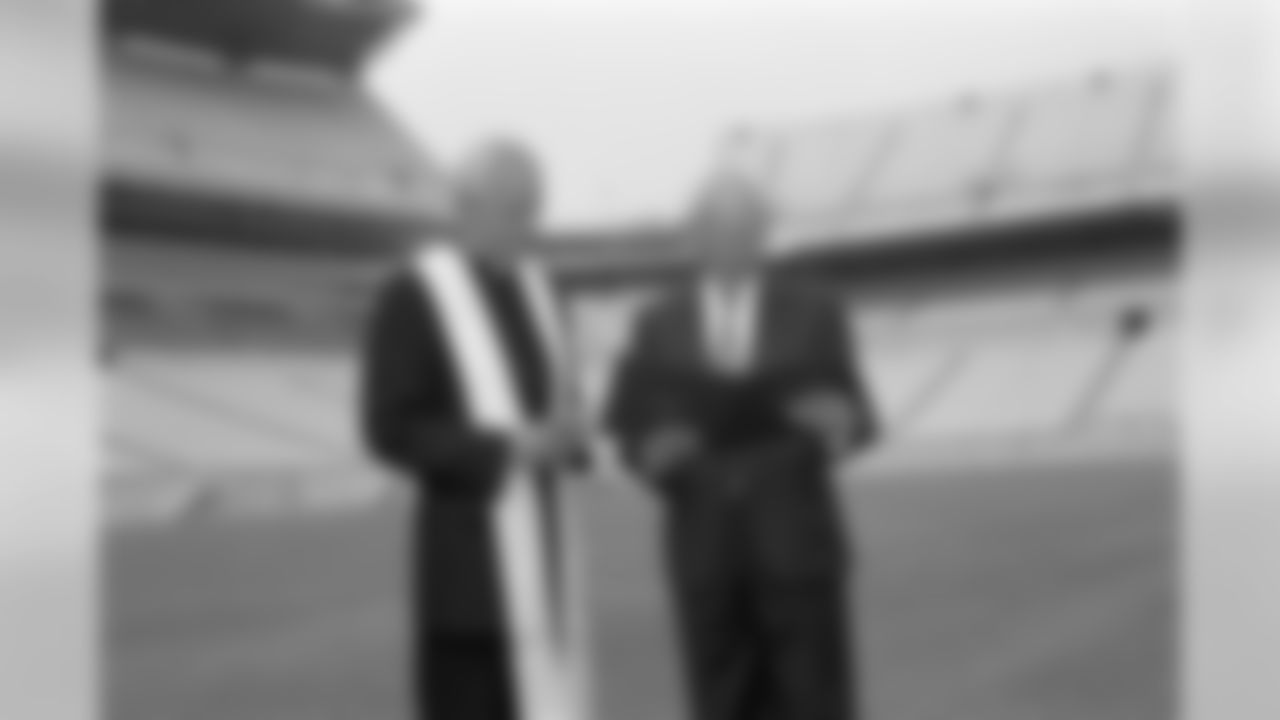
Cardinal Wuerl blesses Heinz Field before its opening.
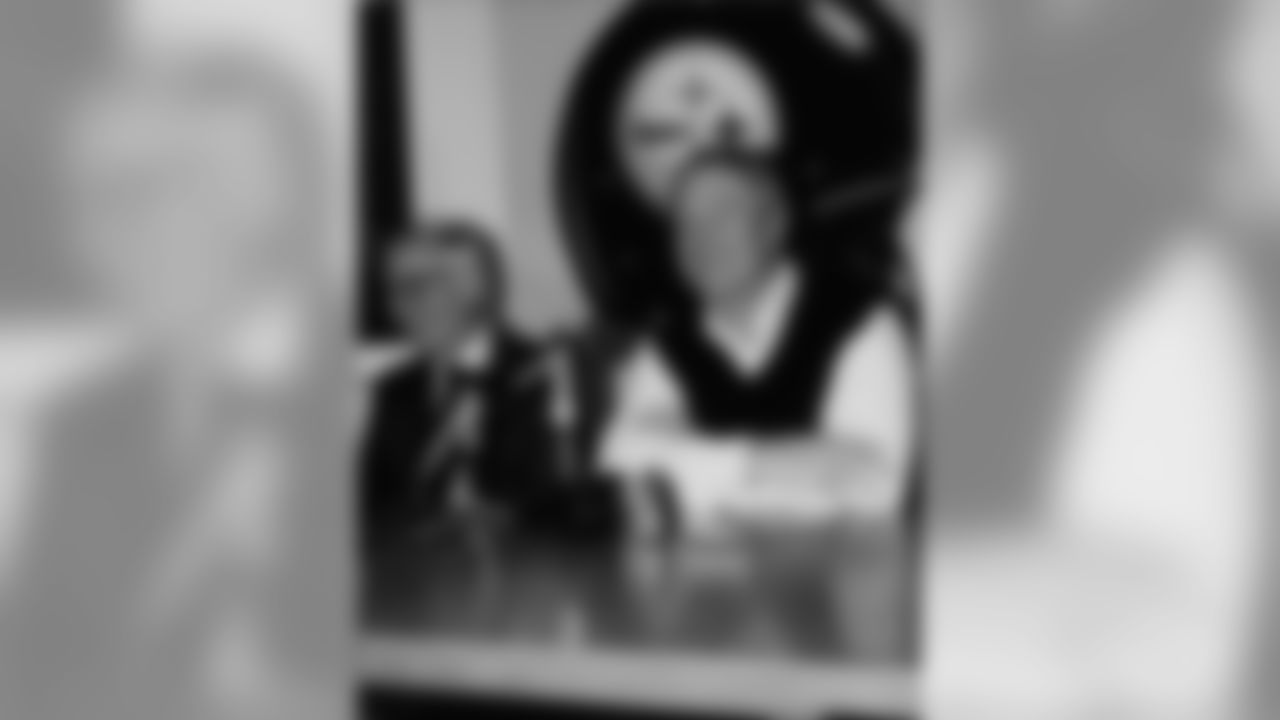
Dan Rooney sits with Chuck Noll during a press conference announcing his retirement from the NFL.
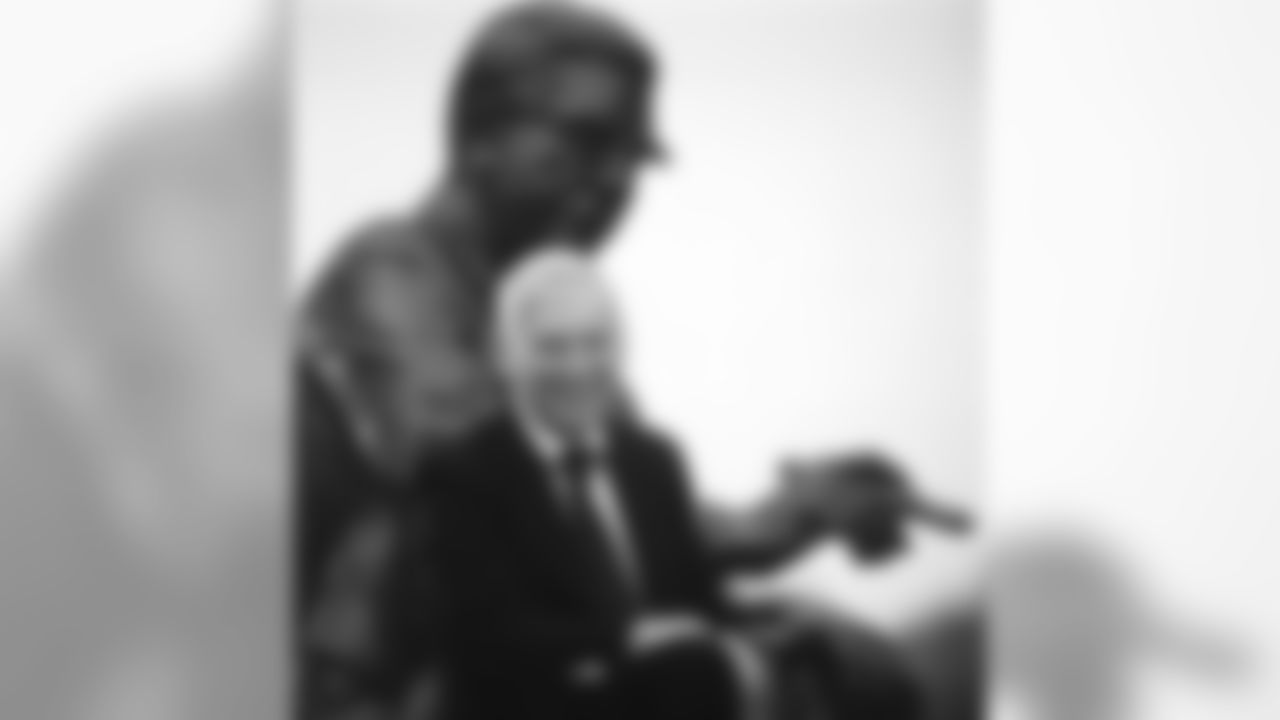
A portrait of Dan Rooney with a statue of his father, Art Rooney behind him.
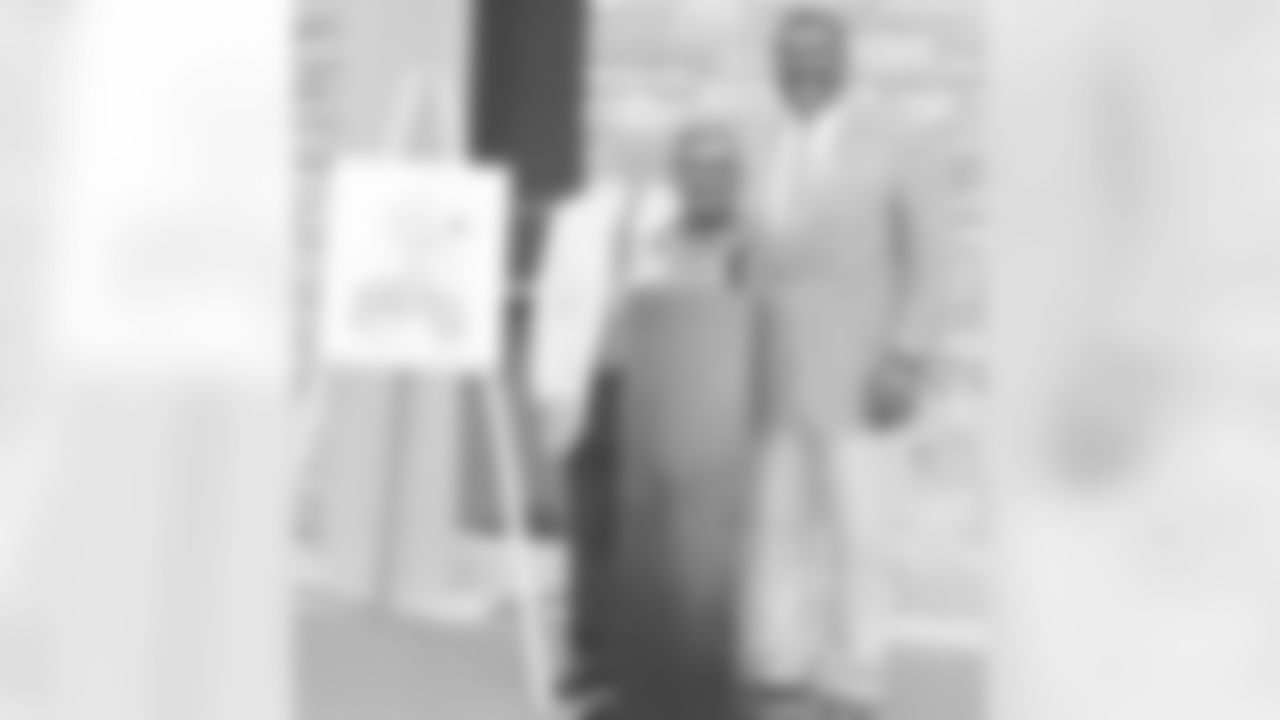
Dan Rooney stands with his Hall of Fame bust and presenter Joe Greene, during the induction ceremonies.
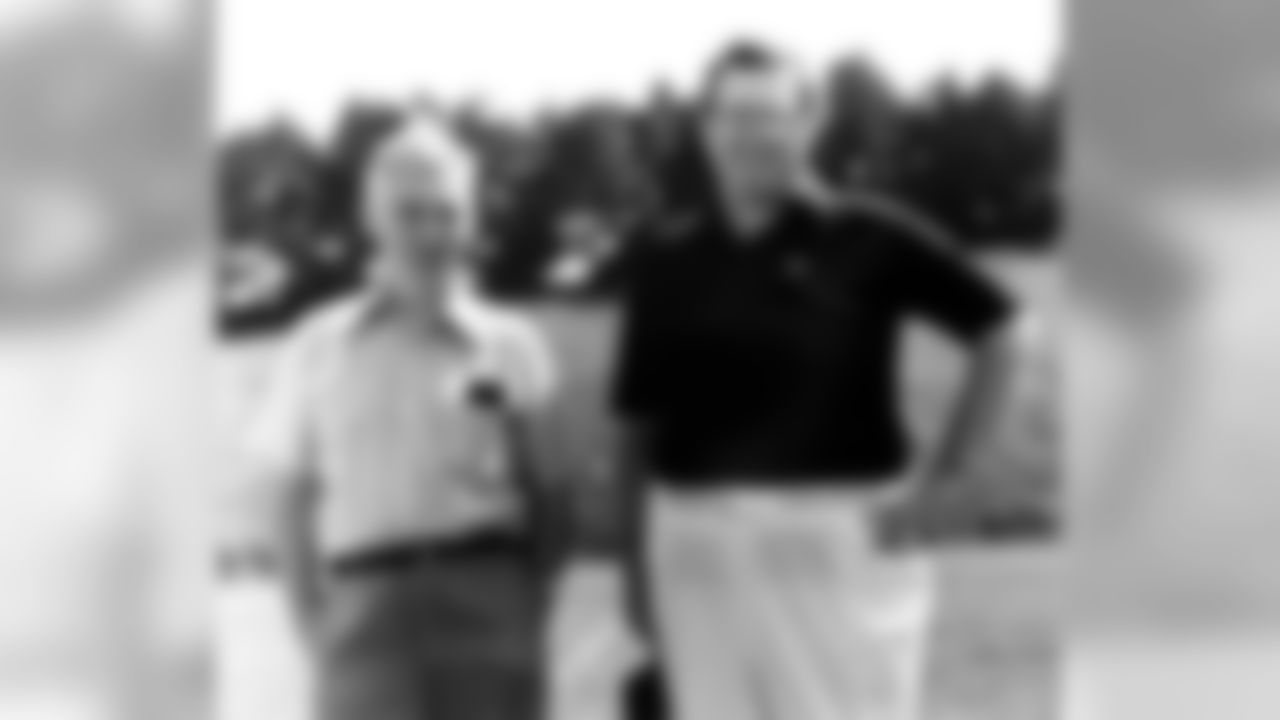
Dan Rooney poses for a photo with his brother Art Rooney Jr.
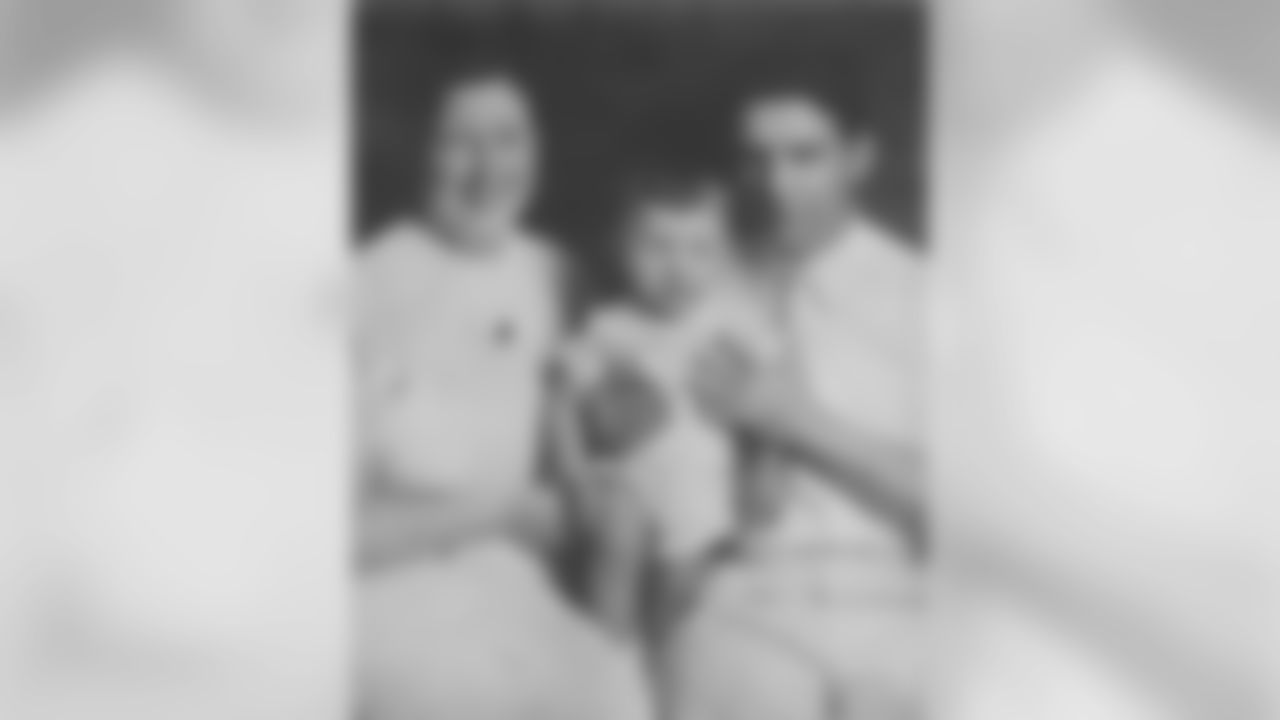
Dan Rooney as a baby with his mother and father.
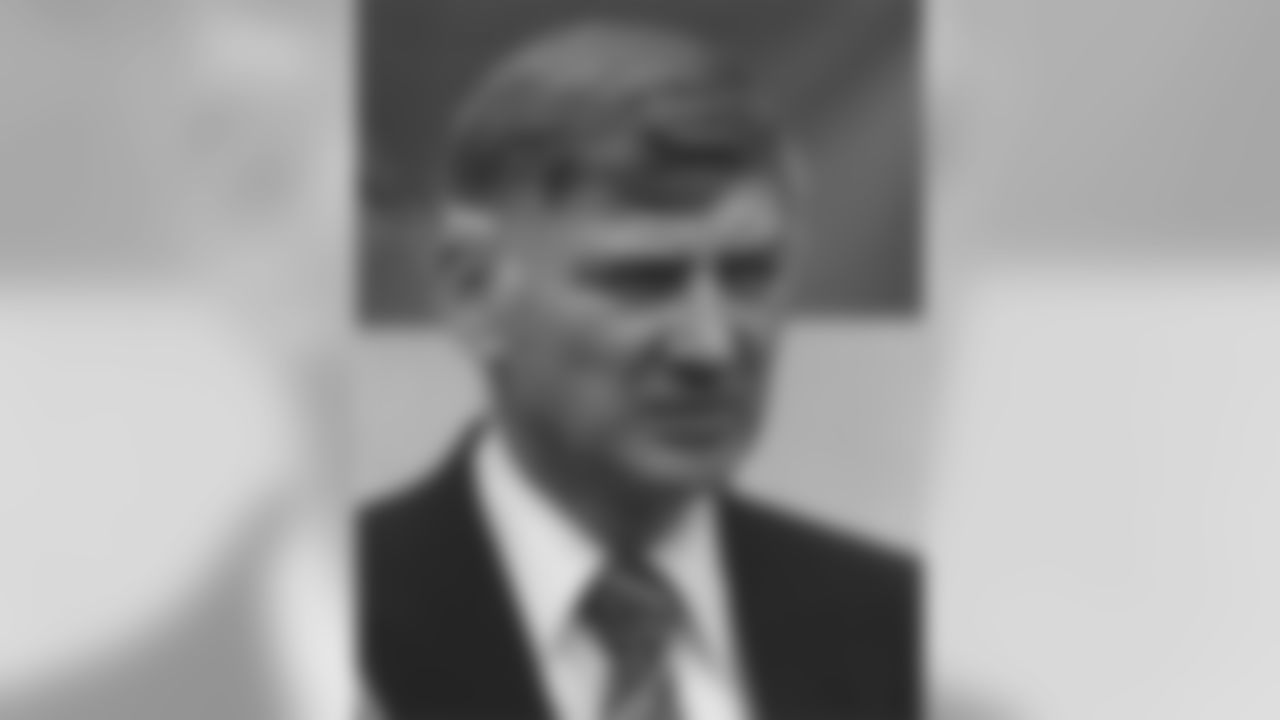
A portrait of Dan Rooney.

Dan Rooney poses for a photo with CB Ike Taylor.
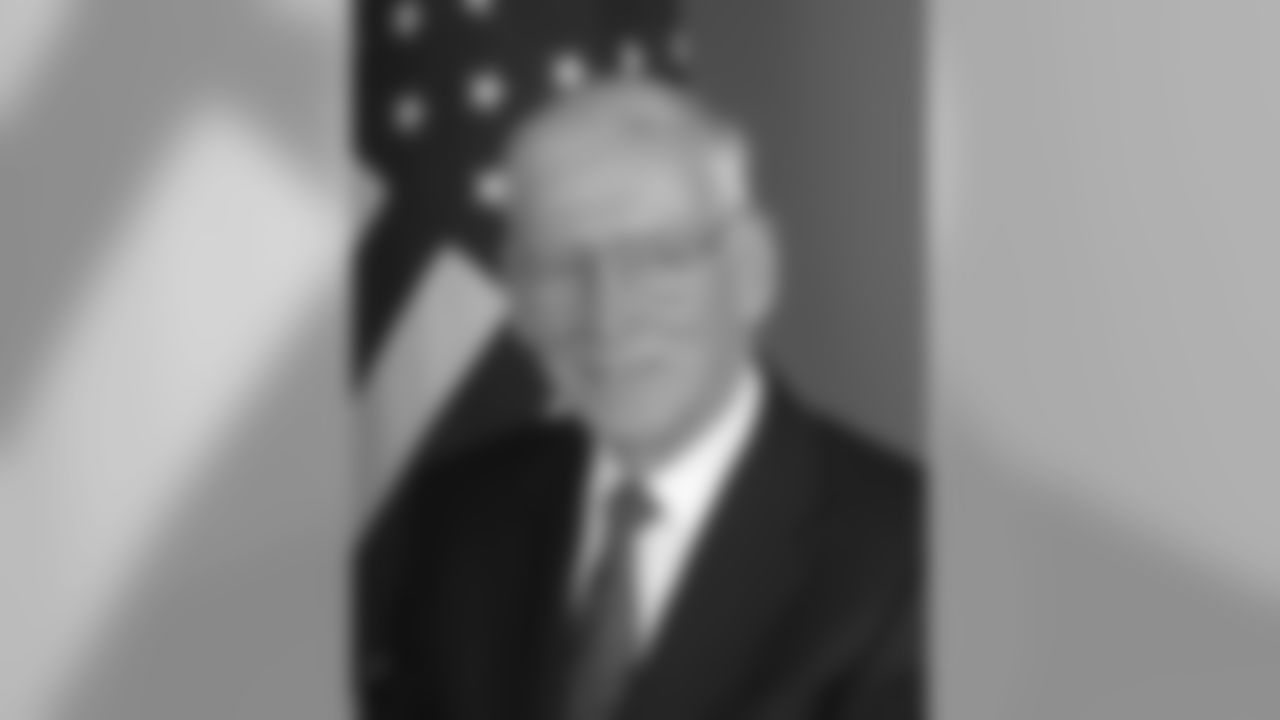
A portrait of Dan Rooney during his time as Ambassador to Ireland.
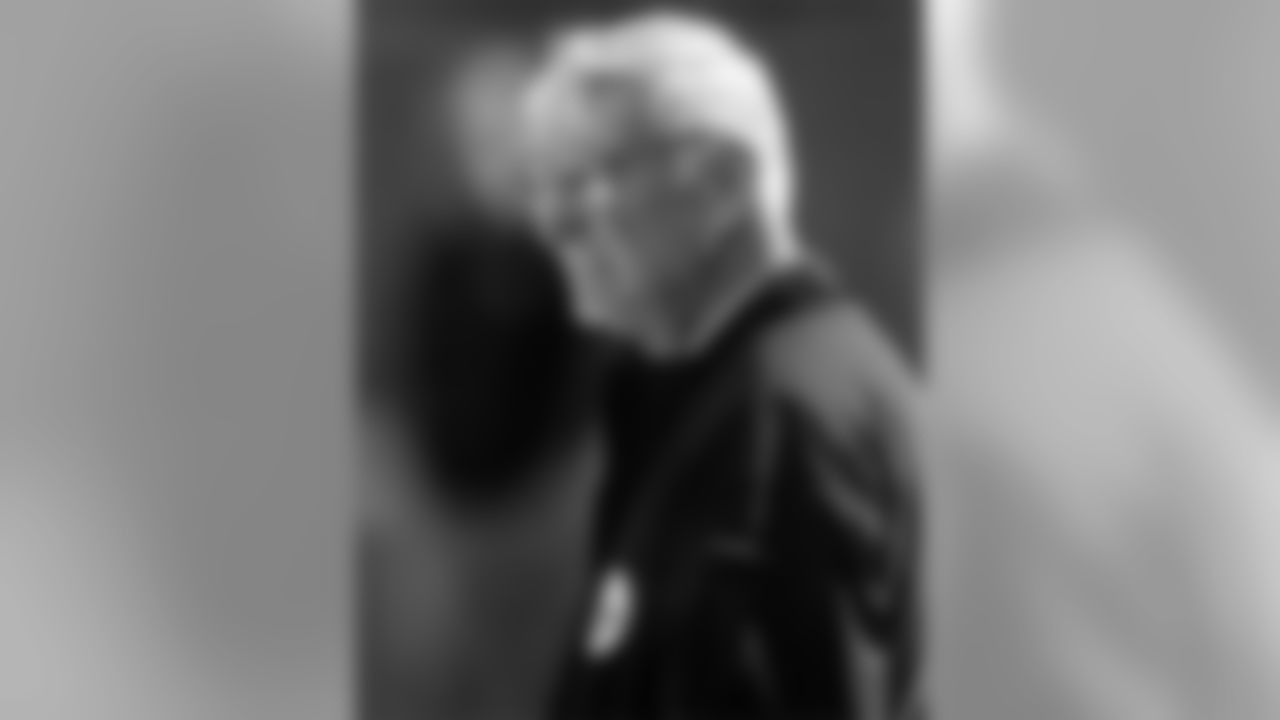
A portrait of Dan Rooney.
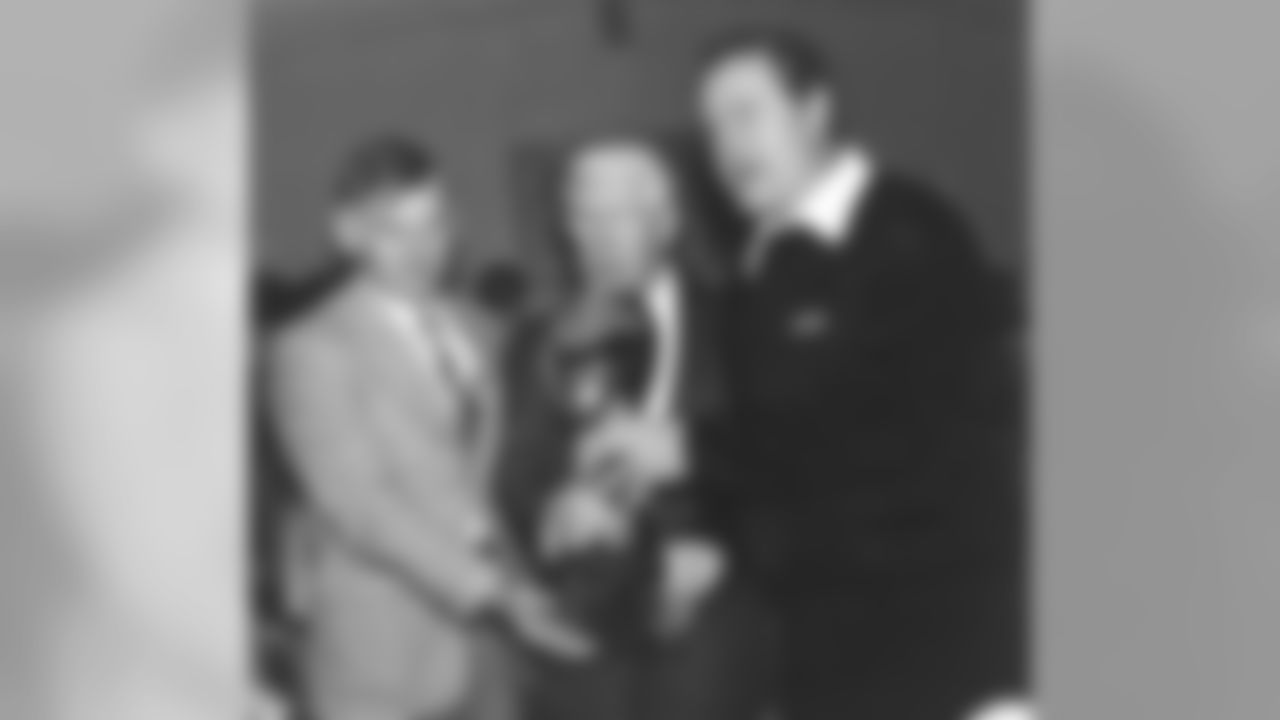
Dan Rooney holds the Lombardi trophy with his father Art Rooney and Chuck Noll after winning Super Bowl XIV.
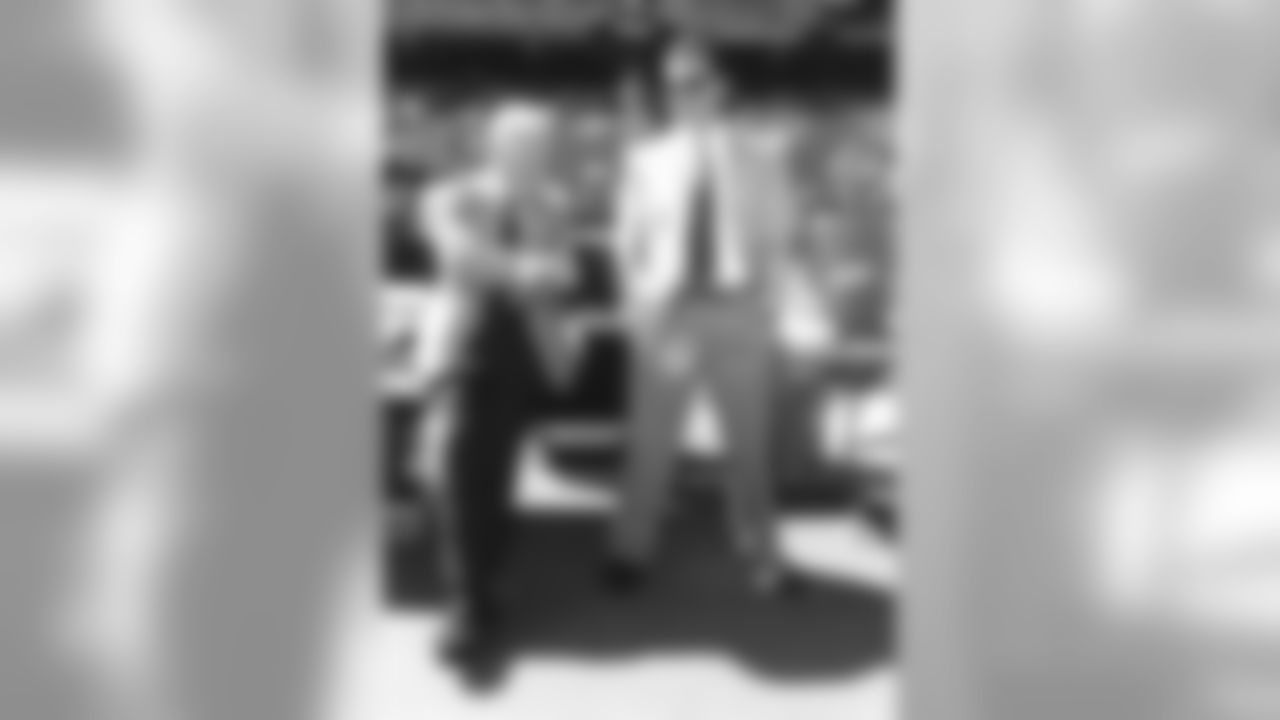
A portrait of Dan Rooney and Art Rooney II.

Dan Rooney and Art Rooney II review plans together for the construction of Heinz Field.
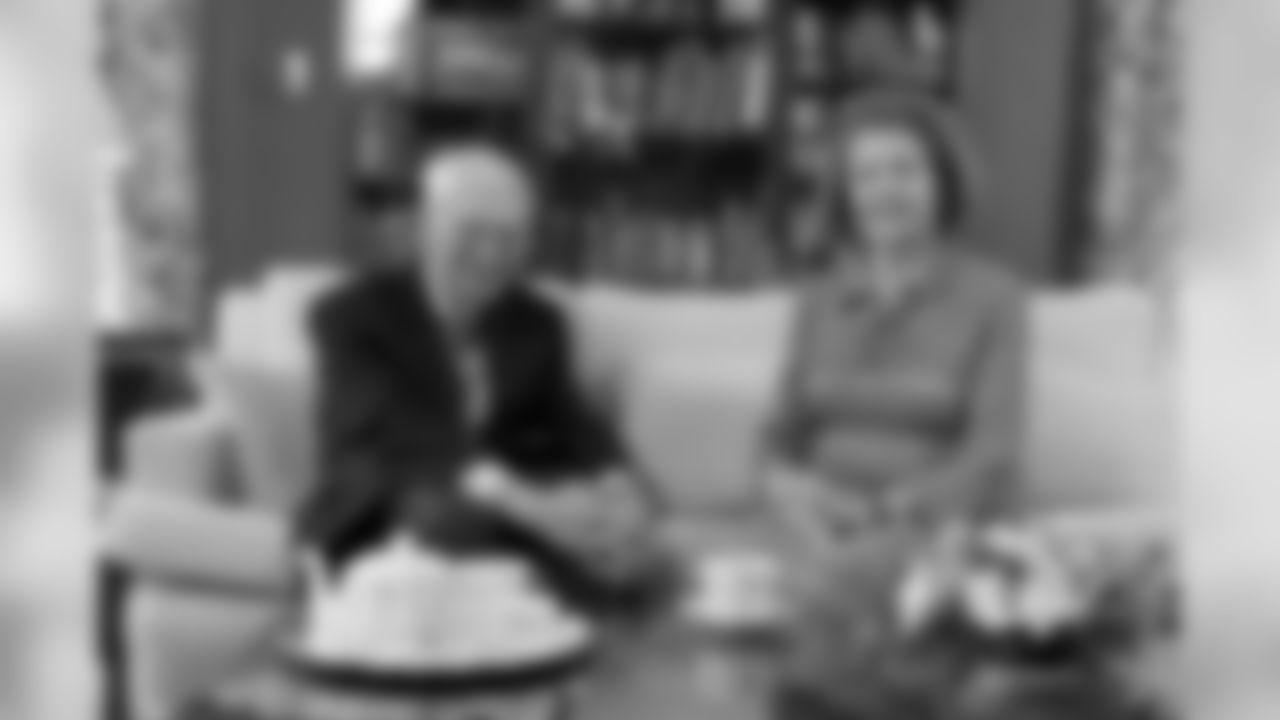
Ambassador Dan Rooney and his wife Patricia at the U.S. Ambassador's residence in Phoenix Park, Dublin.
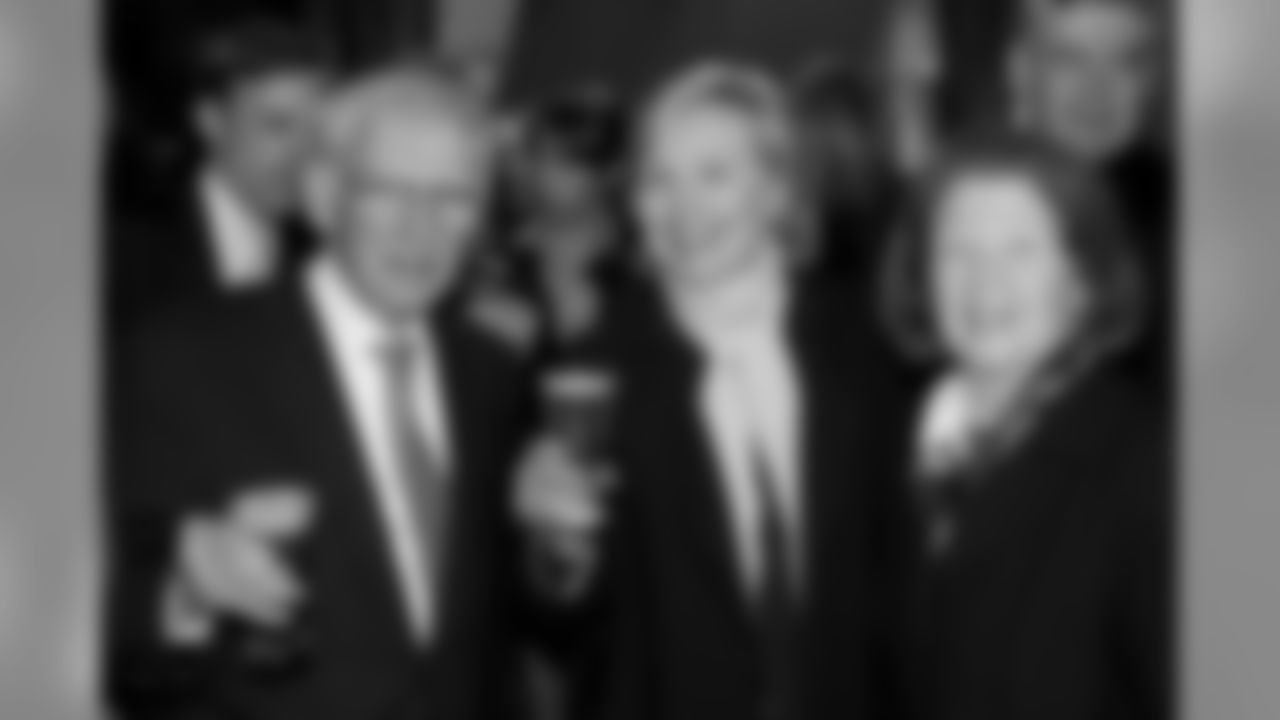
Ambassador Dan Rooney and his wife Patricia Rooney are joined by Secretary of State Hillary Clinton on St. Patrick's Day in Ireland.
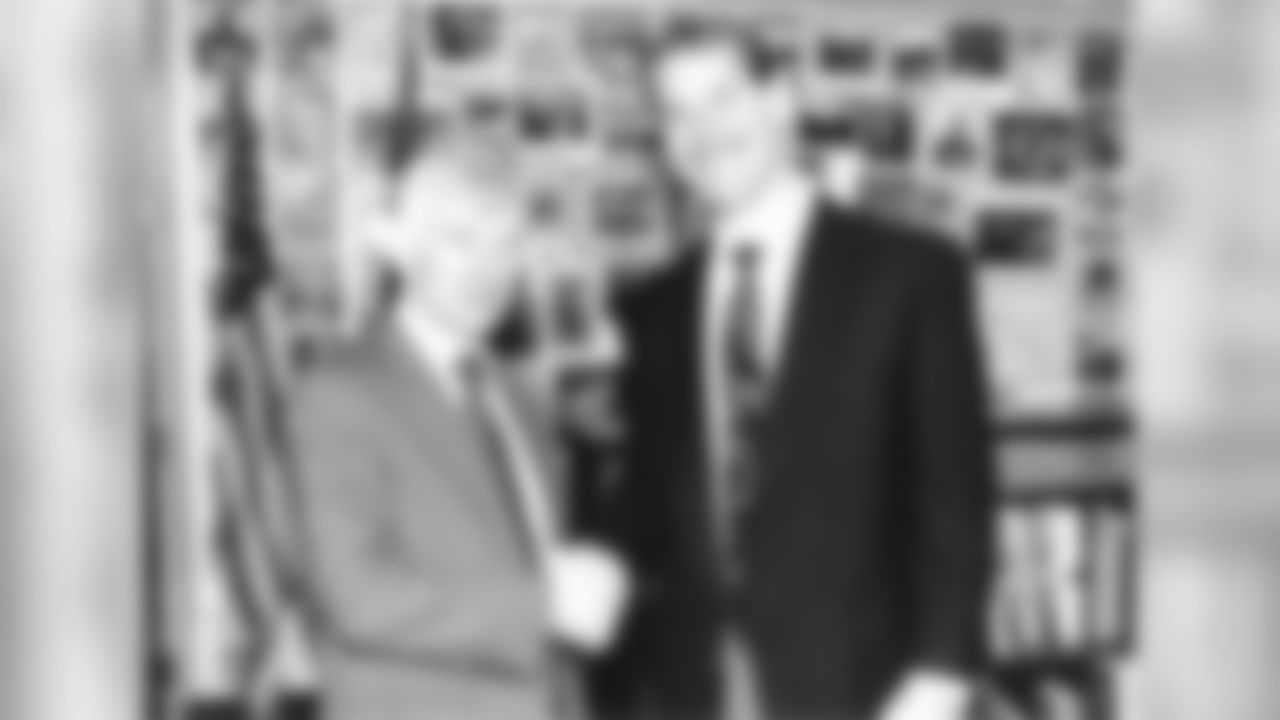
Dan Rooney poses for a photo with Bill Cowher after signing him to the Steelers head coaching position.
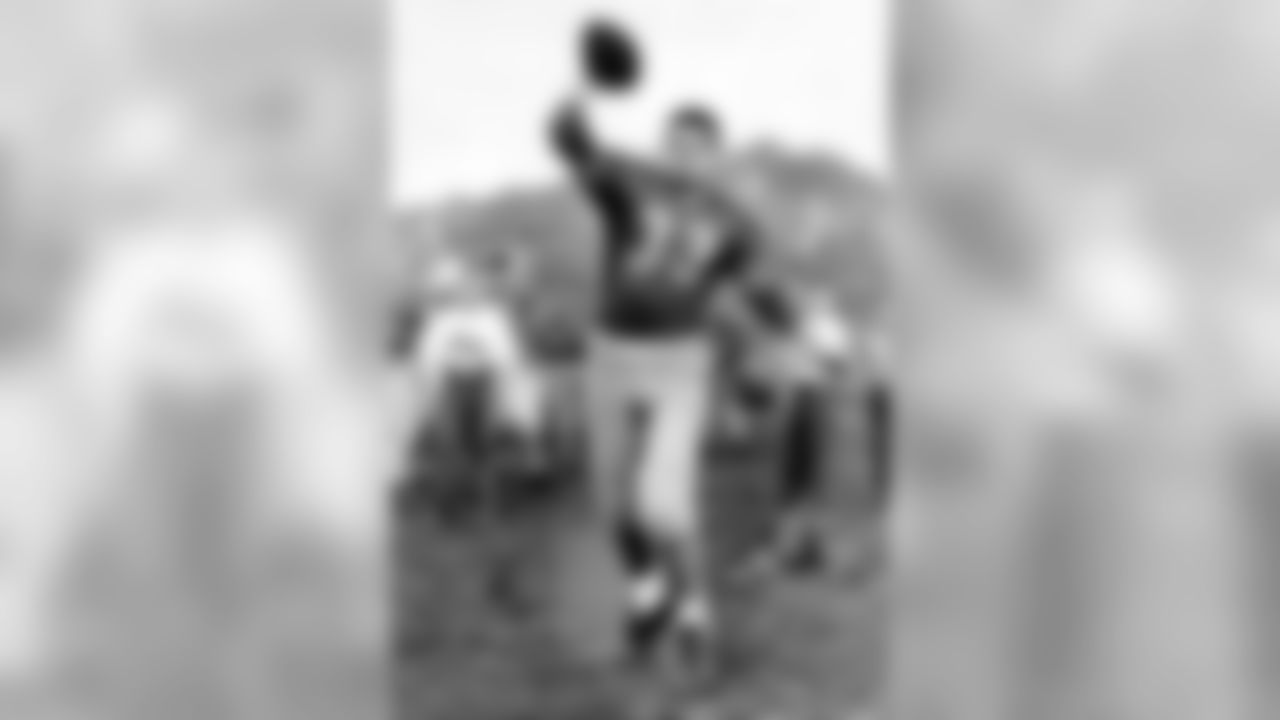
A portrait of Dan Rooney during his years at North Catholic.

A portrait of Dan Rooney during the Pro Football Hall of Fame induction ceremonies.

A portrait of Dan Rooney during the Pro Football Hall of Fame induction ceremonies.
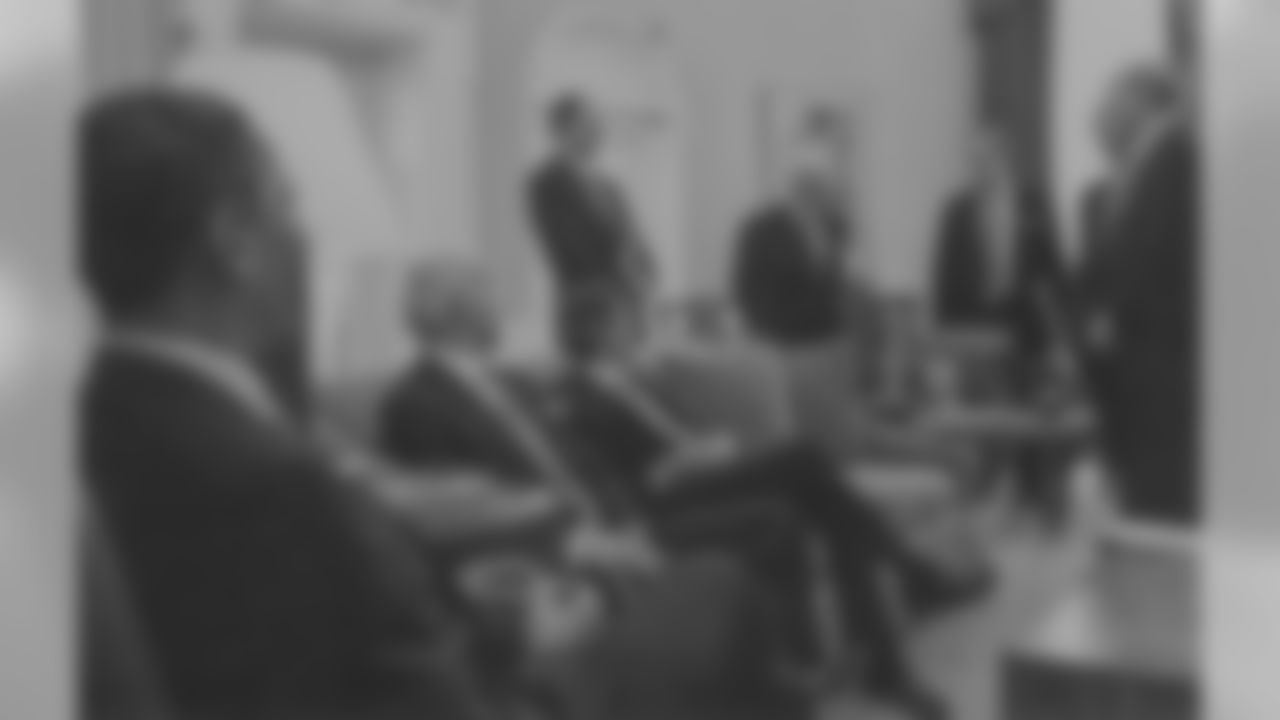
Dan Rooney stands in the oval office with President Barack Obama and Vice President Joe Biden.
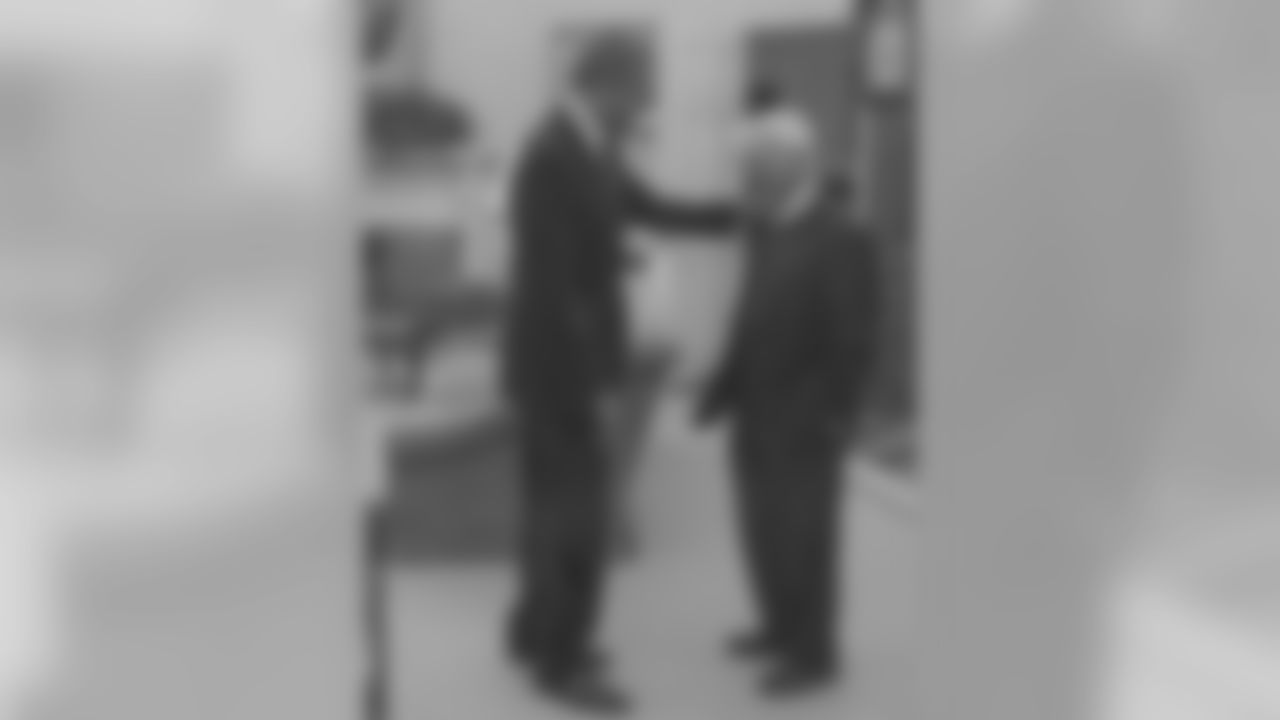
Dan Rooney stands in the oval office with President Barack Obama.
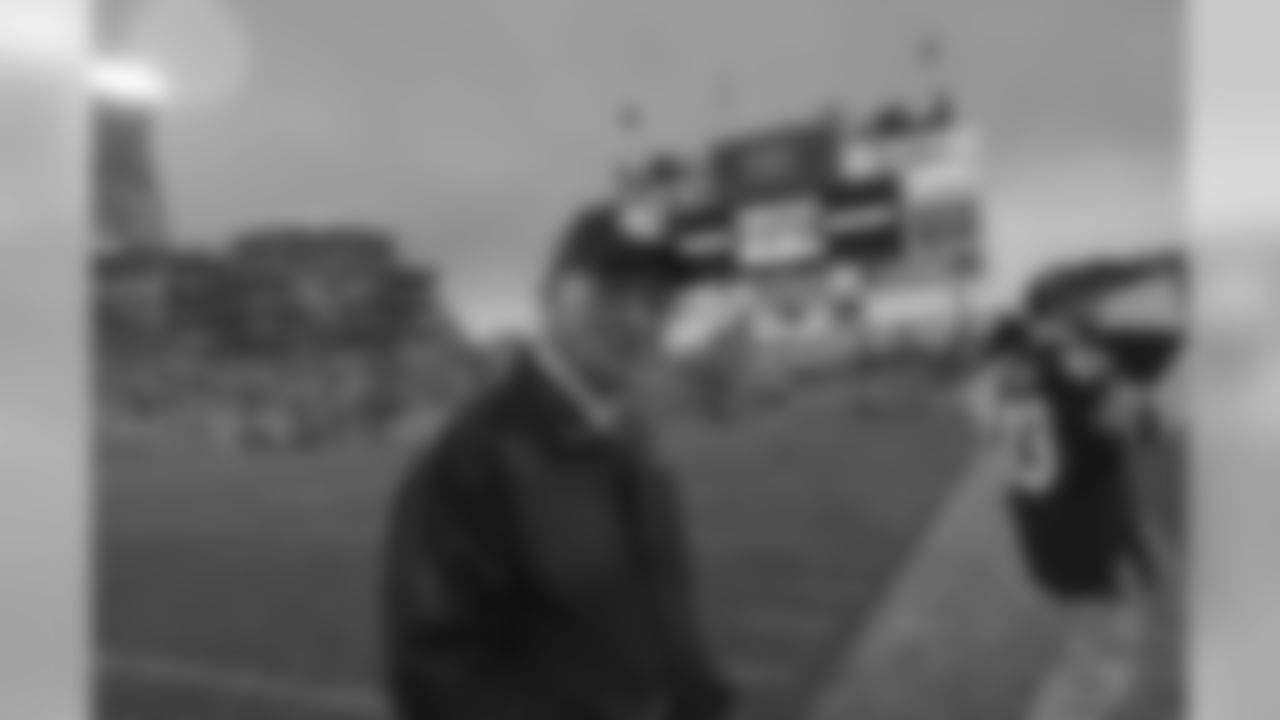
A portrait of Dan Rooney prior to the Steelers 1000th game.
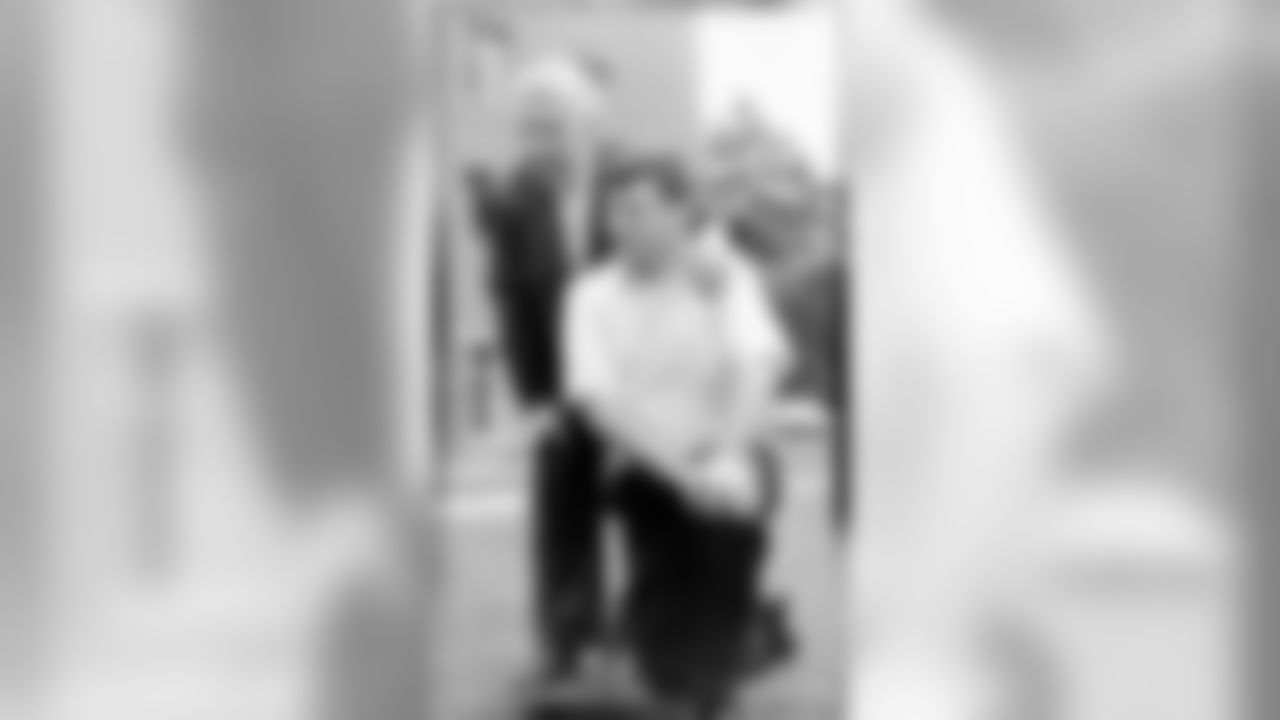
A portrait of Dan Rooney with his father Art Rooney.
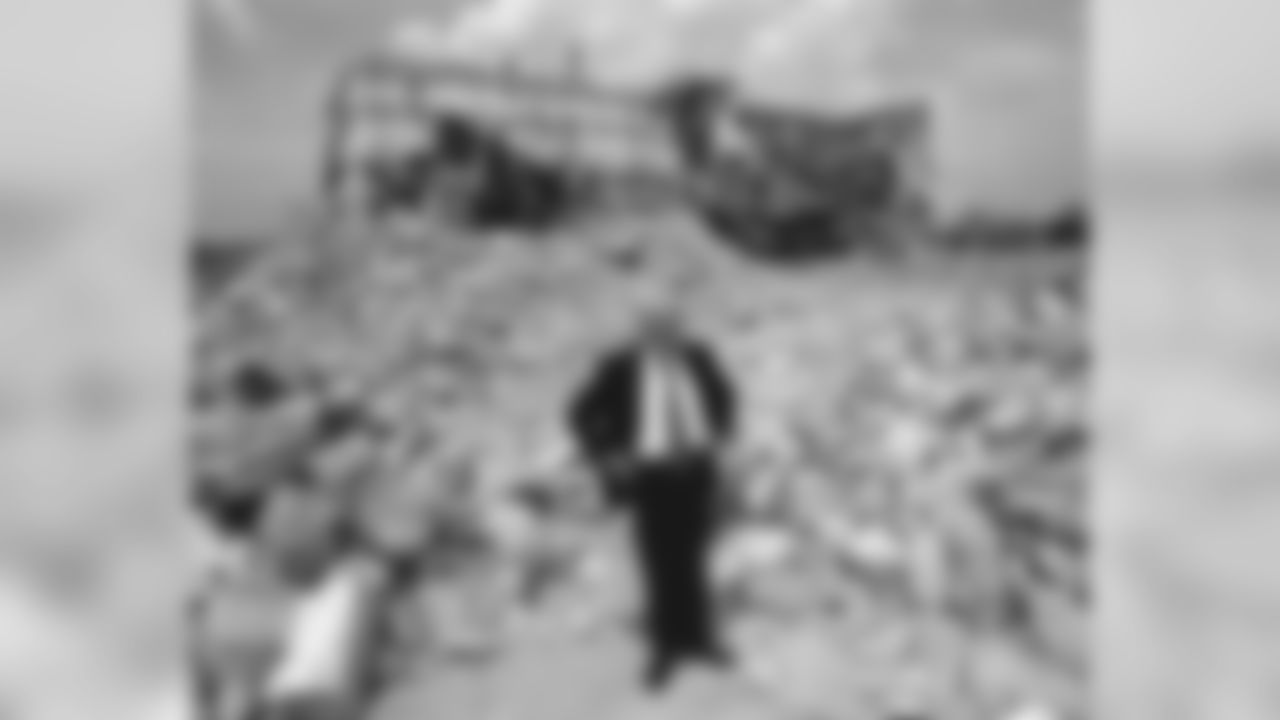
Dan Rooney stands in the rubble of Three Rivers Stadium after it was demolished.
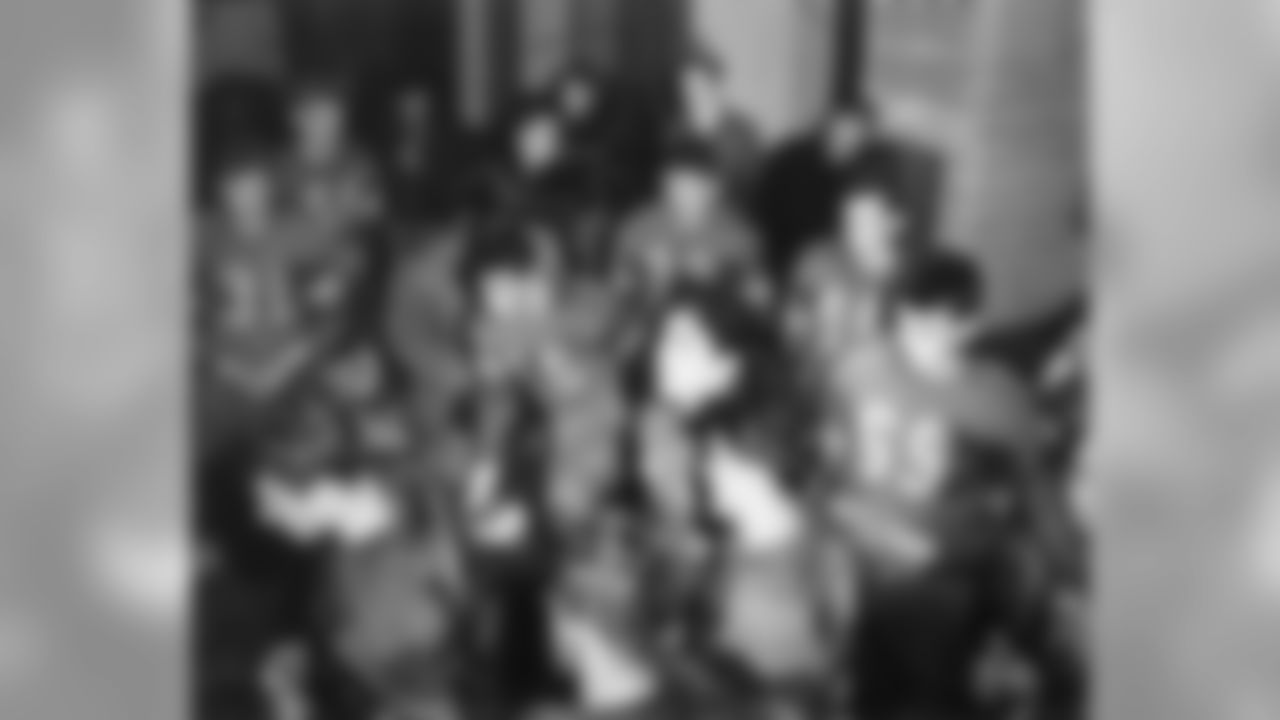
Dan Rooney, No. 33, kneels for prayer in the locker room with his North Catholic team.

Dan Rooney poses for a photo with Commissioner Roger Goodell.
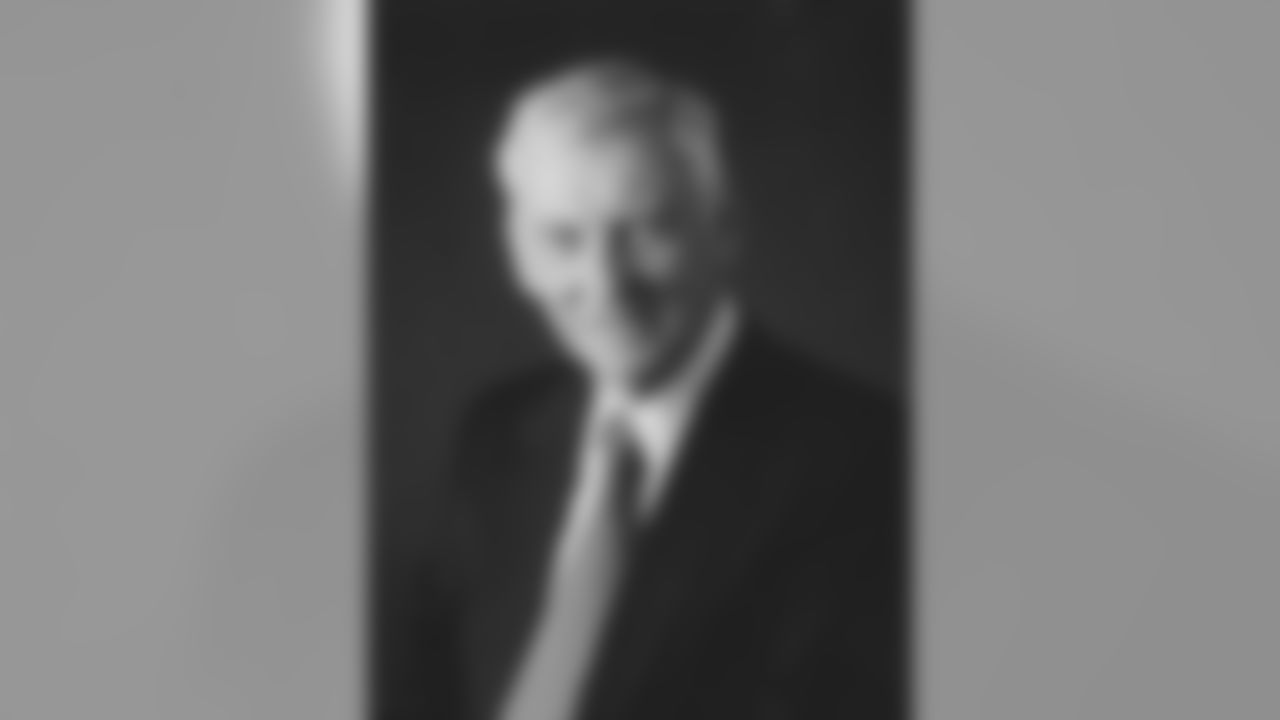
A portrait of Dan Rooney.
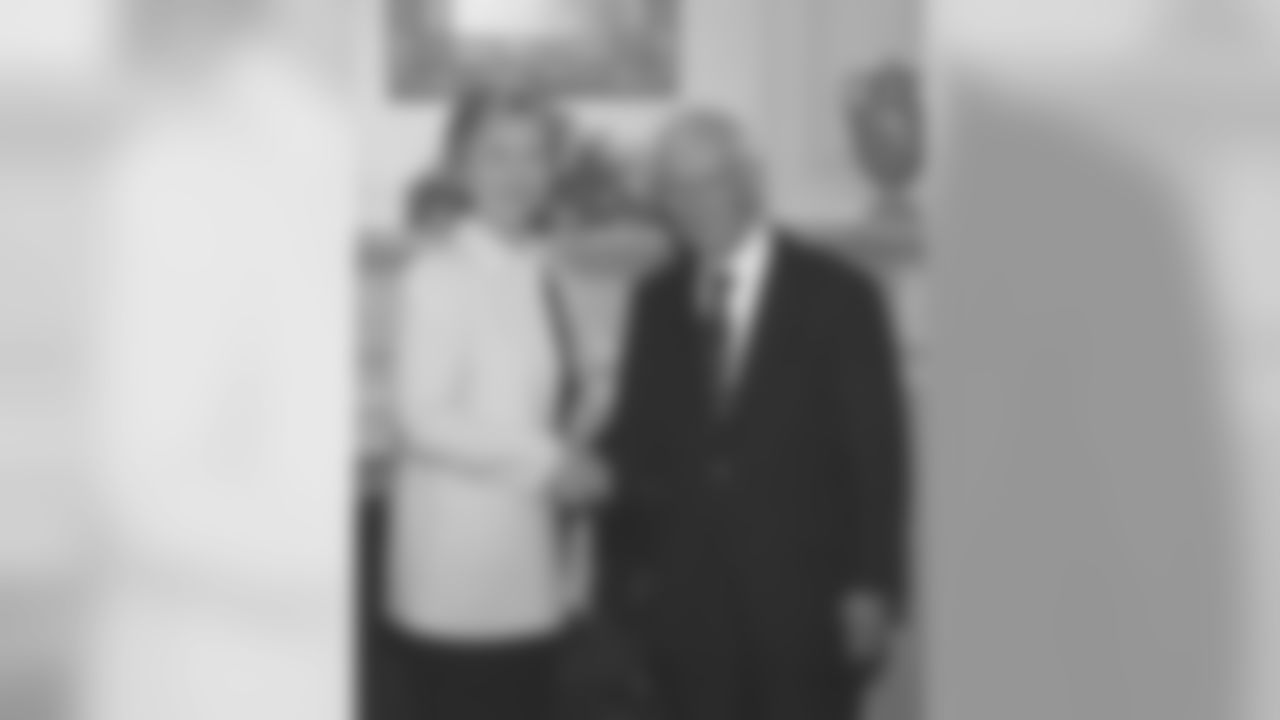
Dan Rooney shakes hands with Secretary of State Hillary Clinton.
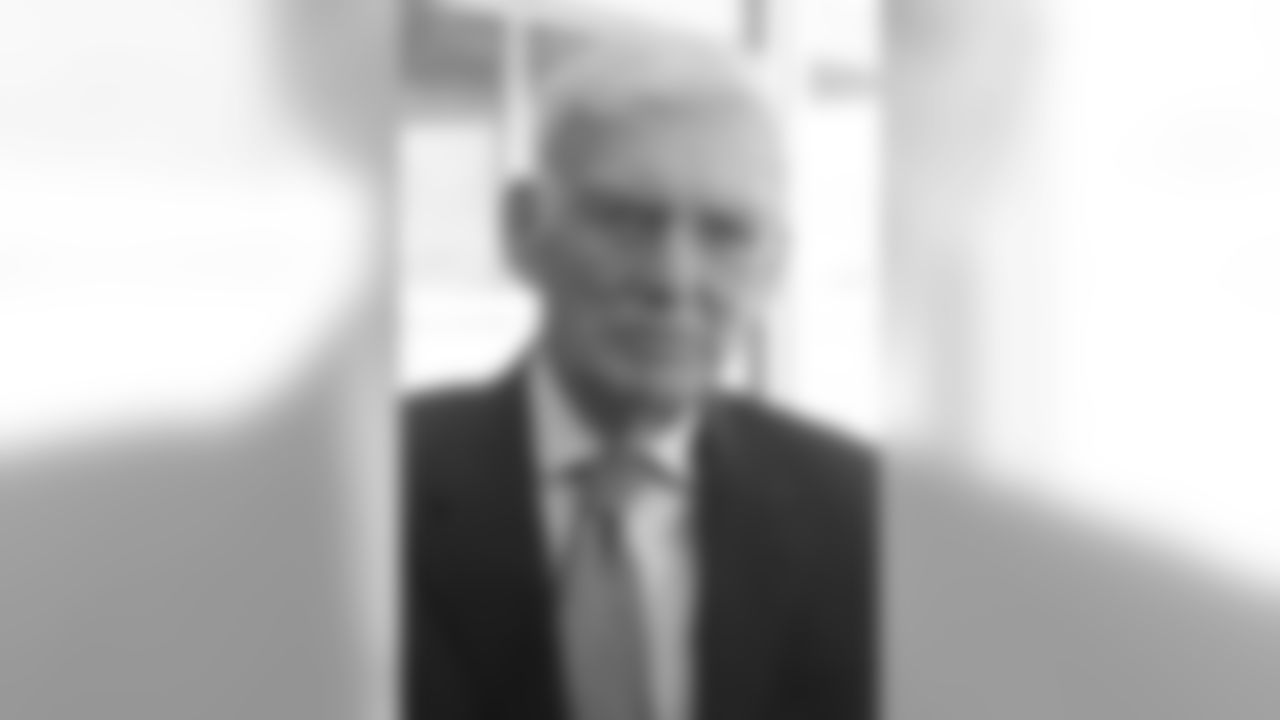
A portrait of Dan Rooney.
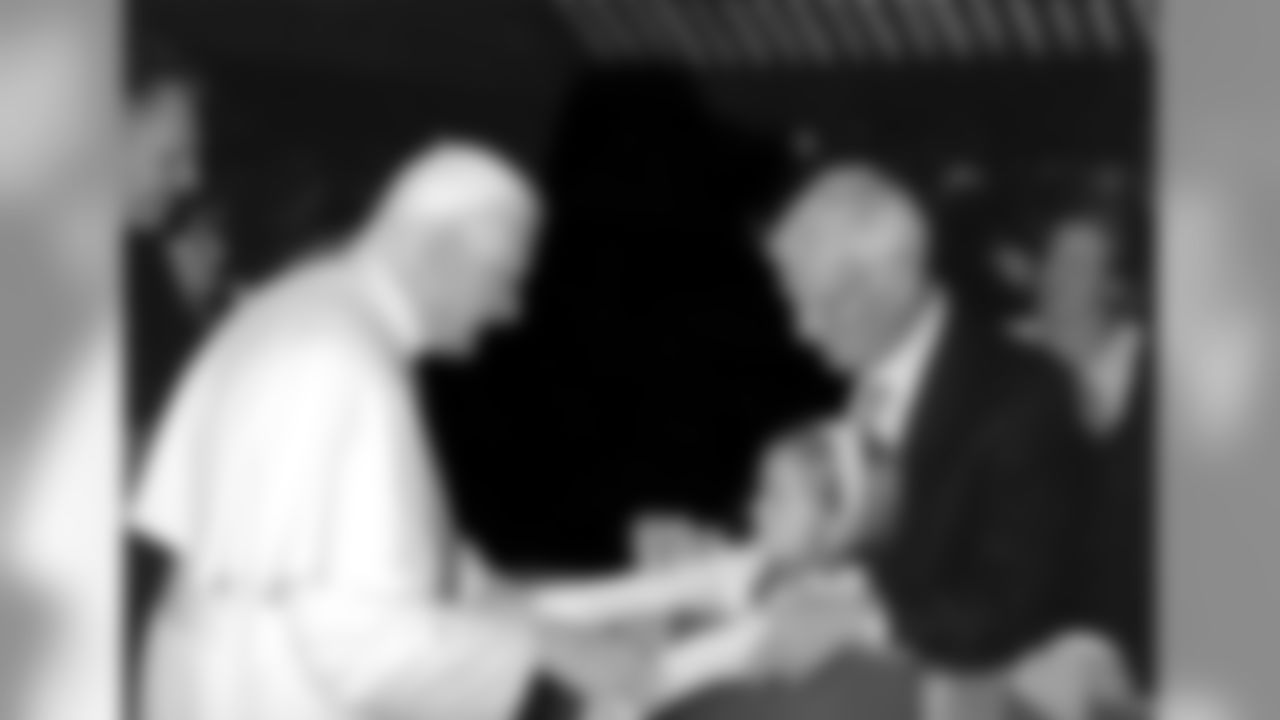
Dan Rooney and Pope Benedict XVI

A portrait of Dan Rooney during a press conference.
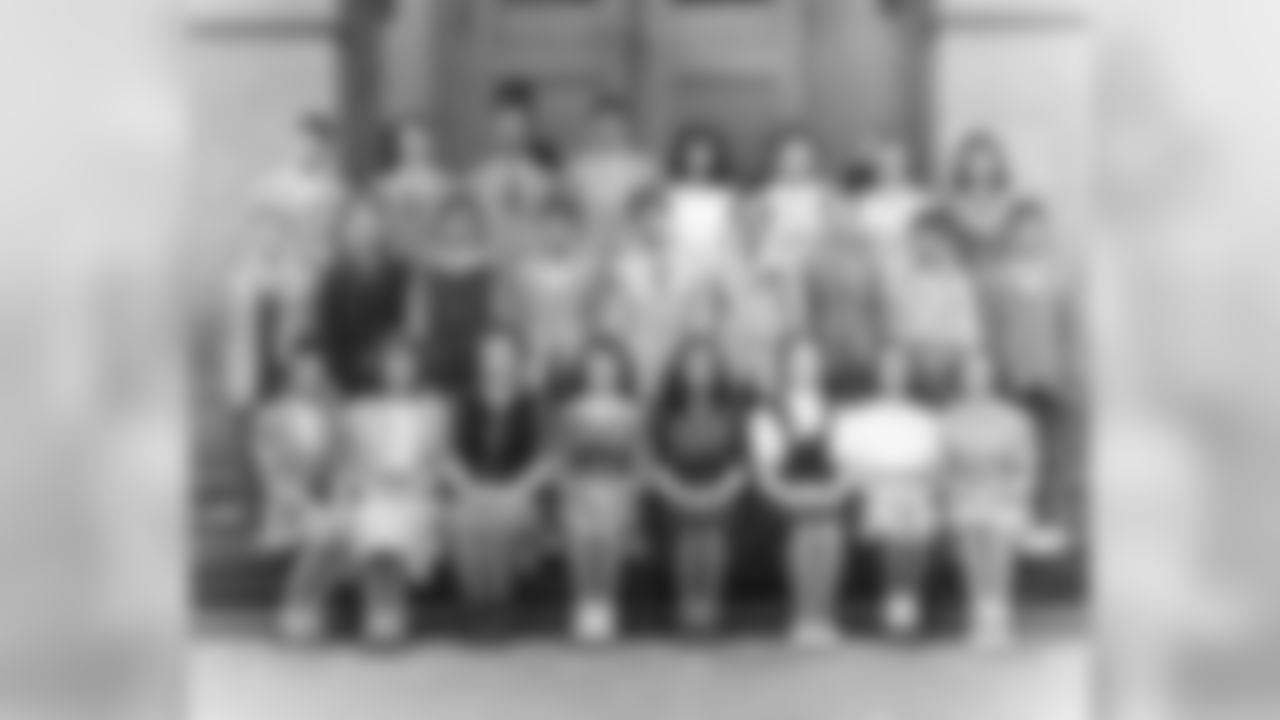
Dan Rooney, top left, pictured with his class mates and Patricia Rooney, front row third from the right.
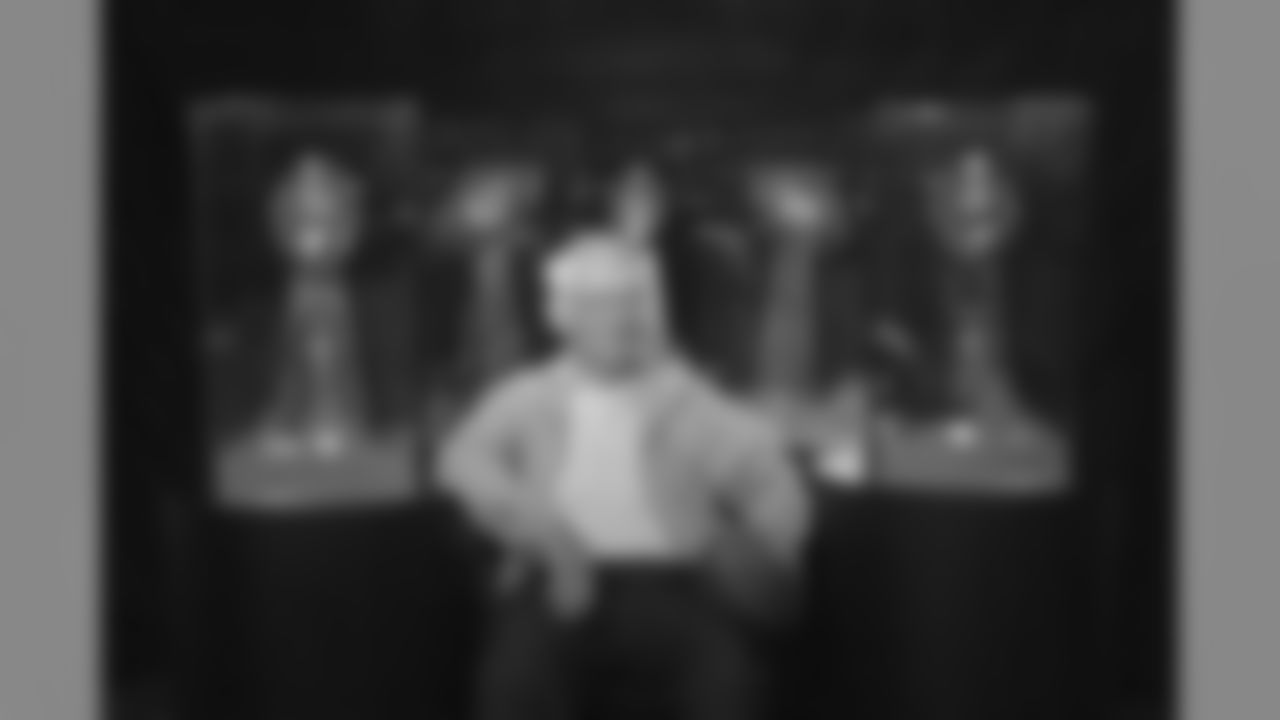
Dan Rooney poses with five Lombardi trophies behind him.

Dan Rooney poses for a photo with his airplane.

Dan Rooney poses for a photo with his airplane.
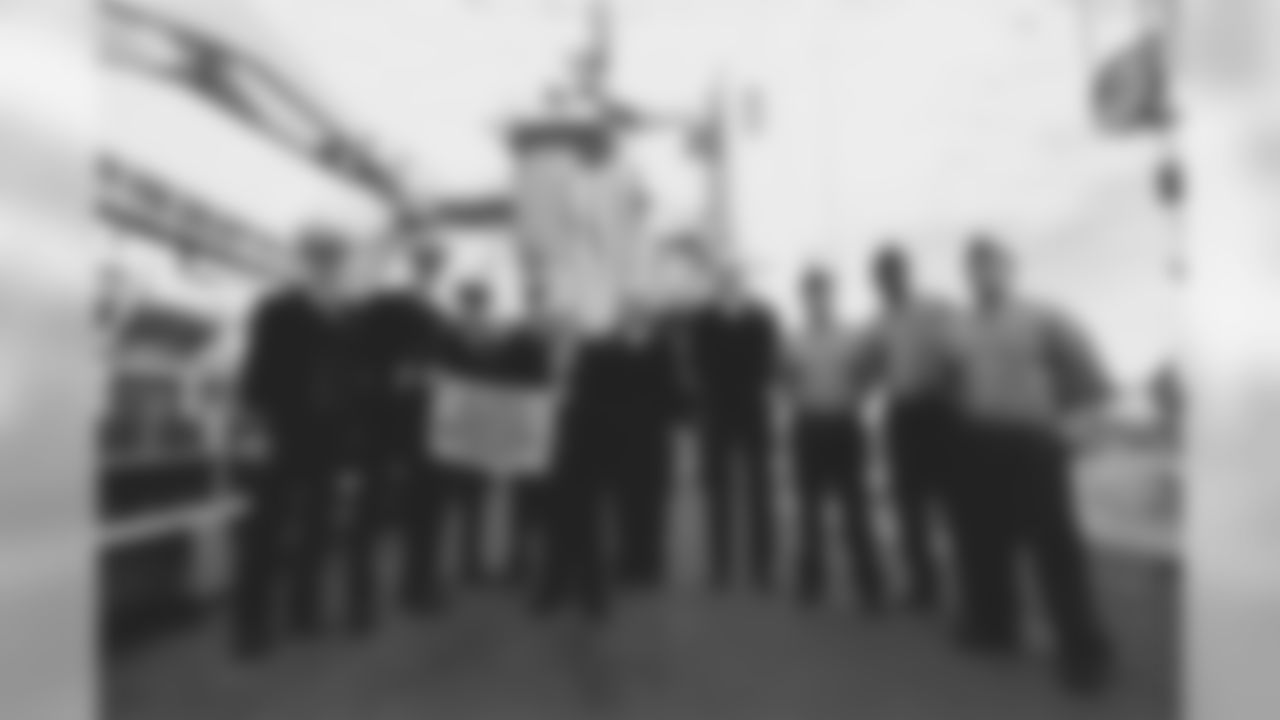
Dan Rooney holding a Terrible Towel with servicemen aboard a Navy vessel.
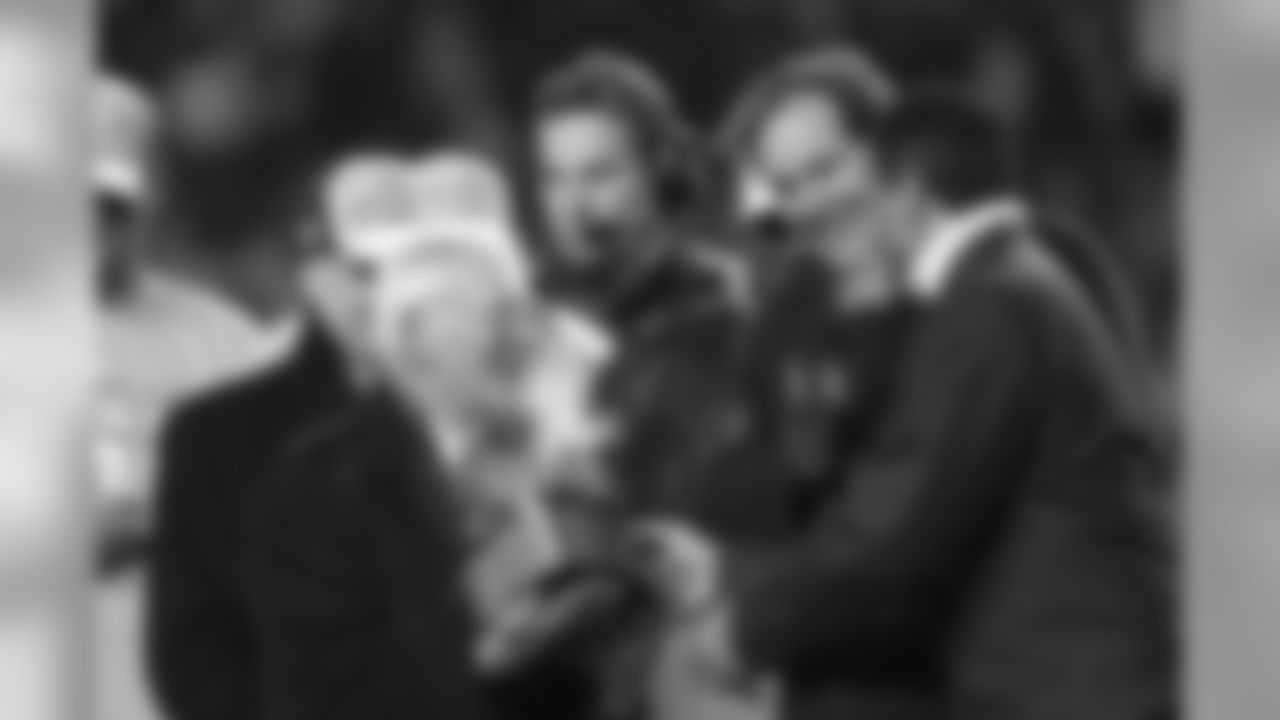
Rod Woodson hands Dan Rooney the Lamar Hunt trophy after the Steelers won the AFC Championship game against the Baltimore Ravens on January 18th, 2009.
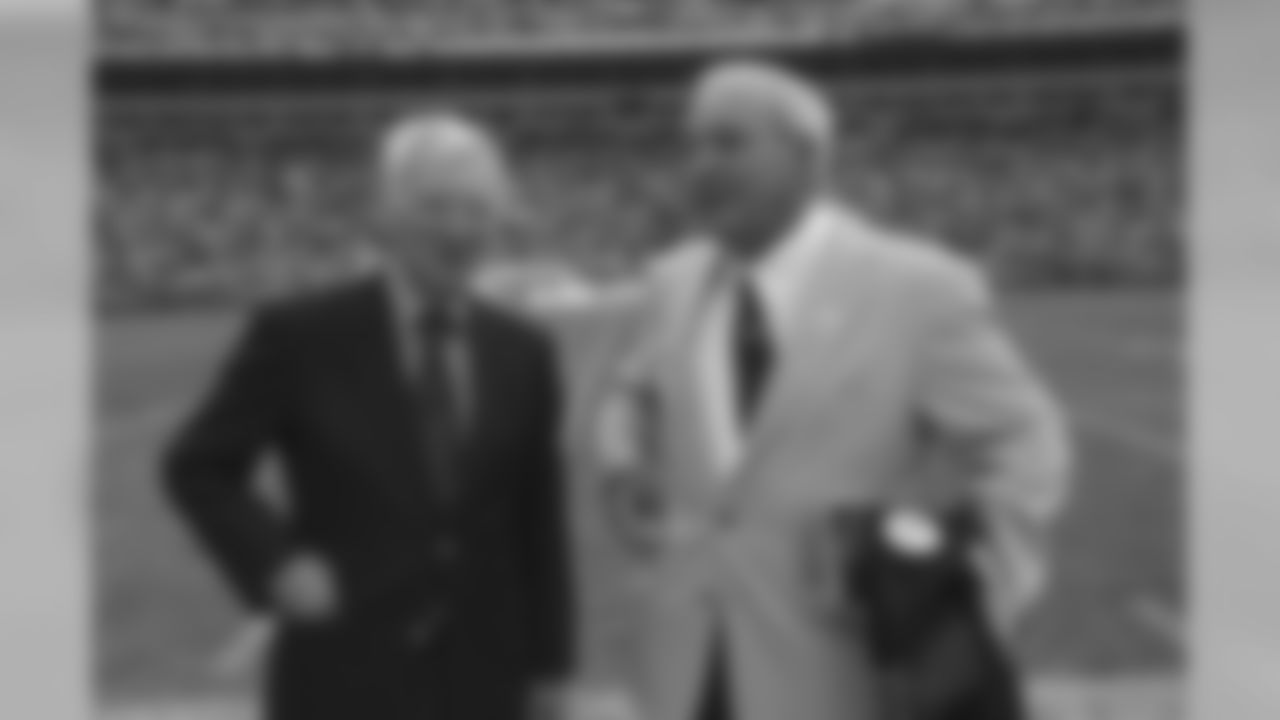
Dan Rooney and the Steelers honor PGA legend Arnold Palmer at Heinz Field on November 10th, 2002.
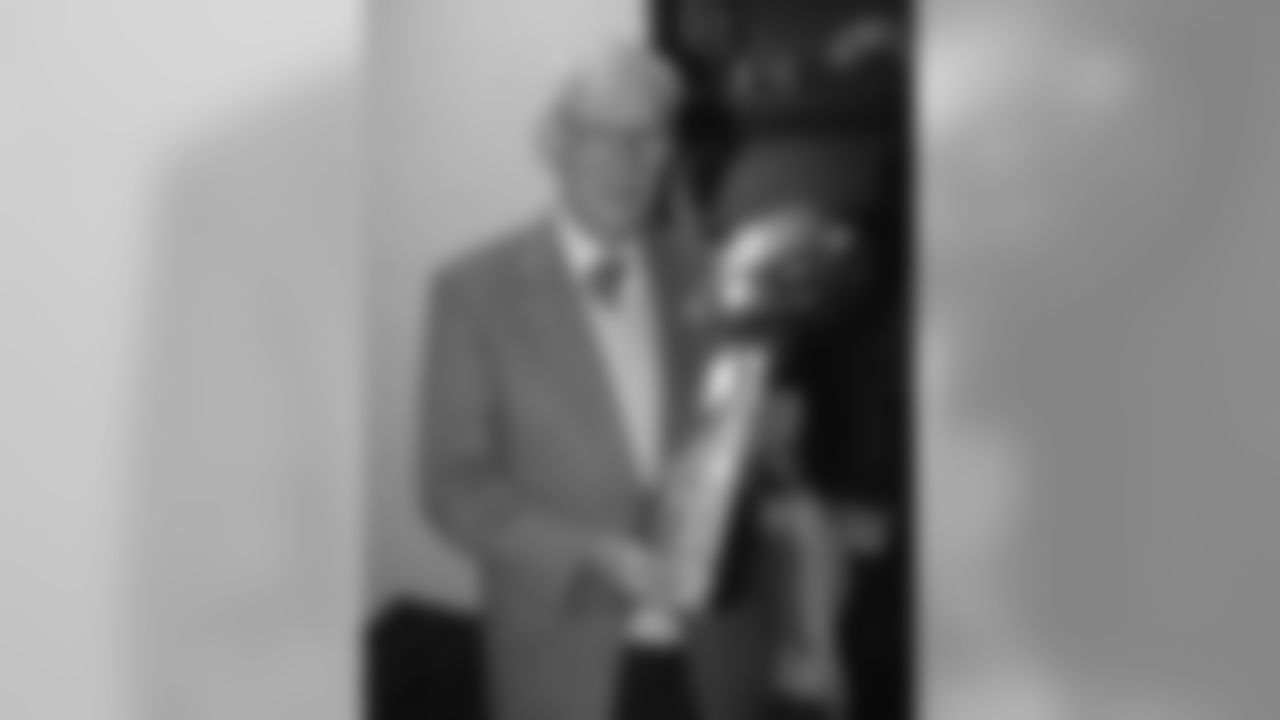
Dan Rooney stands in the locker room with the Lombardi trophy after winning Super Bowl XL.
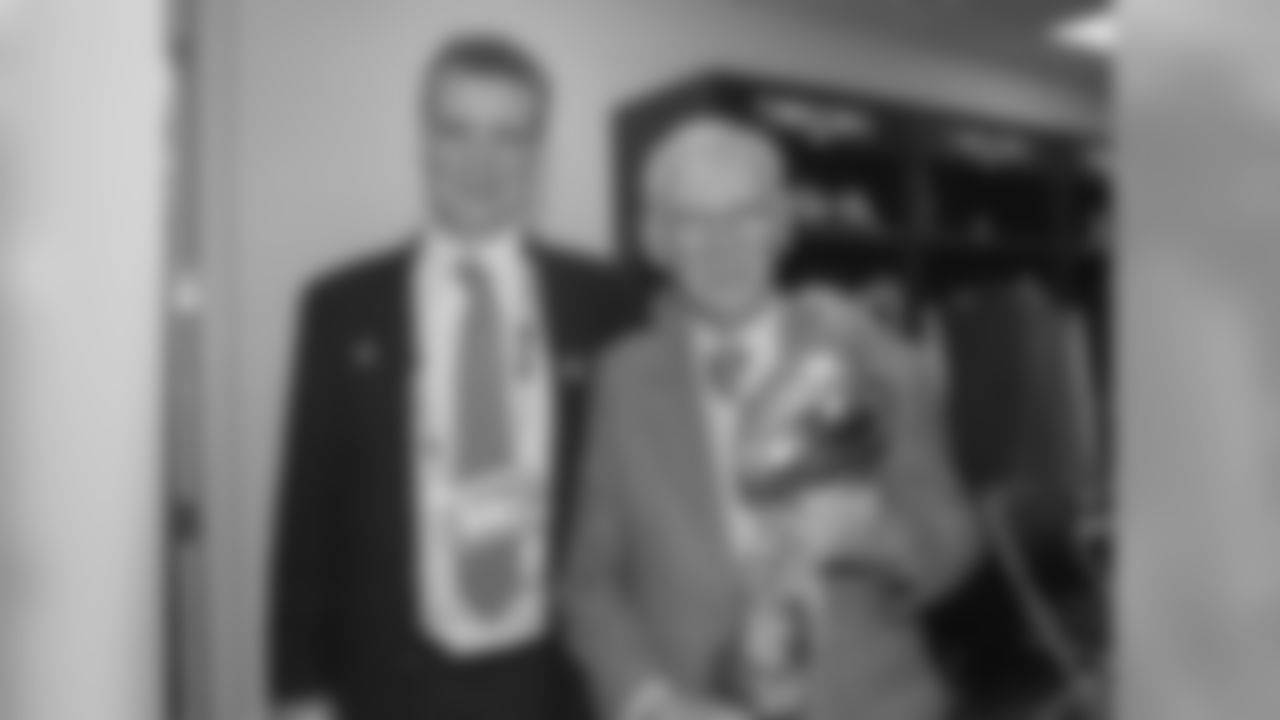
Dan Rooney poses for a photo with his son Art Rooney II in the locker room with the Lombardi trophy after winning Super Bowl XL.
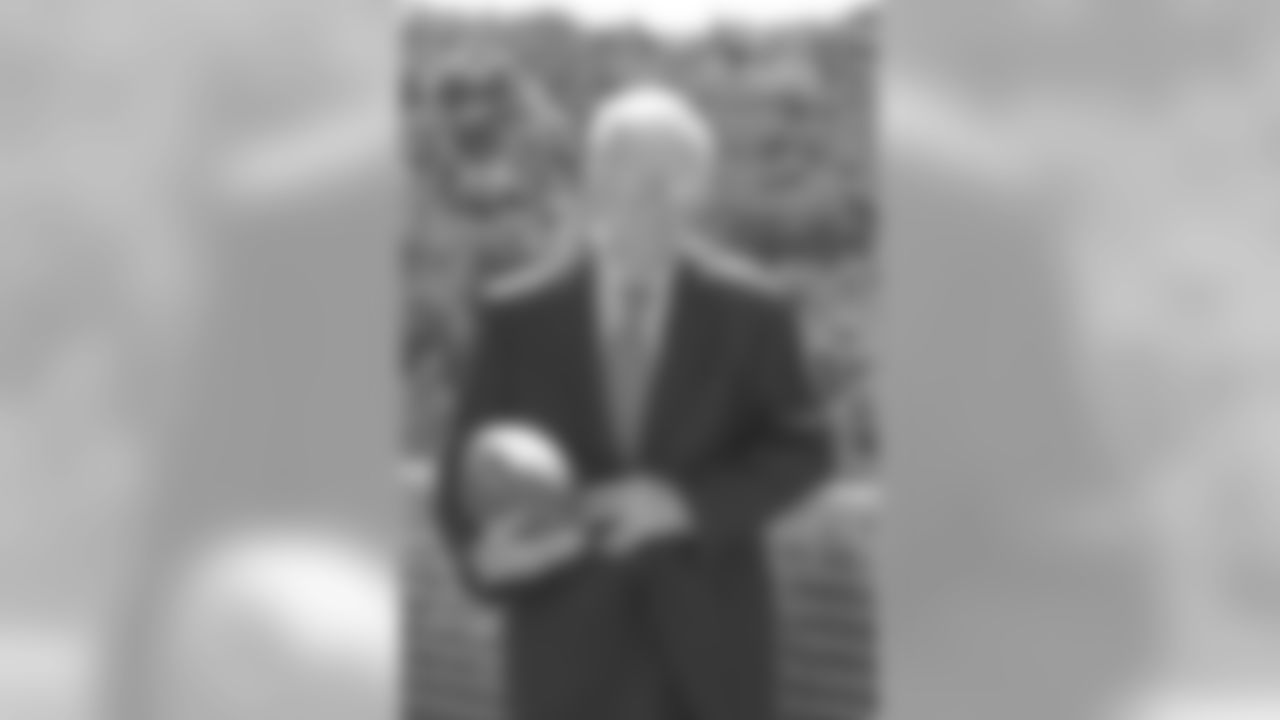
A portrait of Dan Rooney.

Ashley Roethlisberger, Ben Roethlisberger, Patricia Rooney and Dan Rooney stand in front of the Ambassador residence.
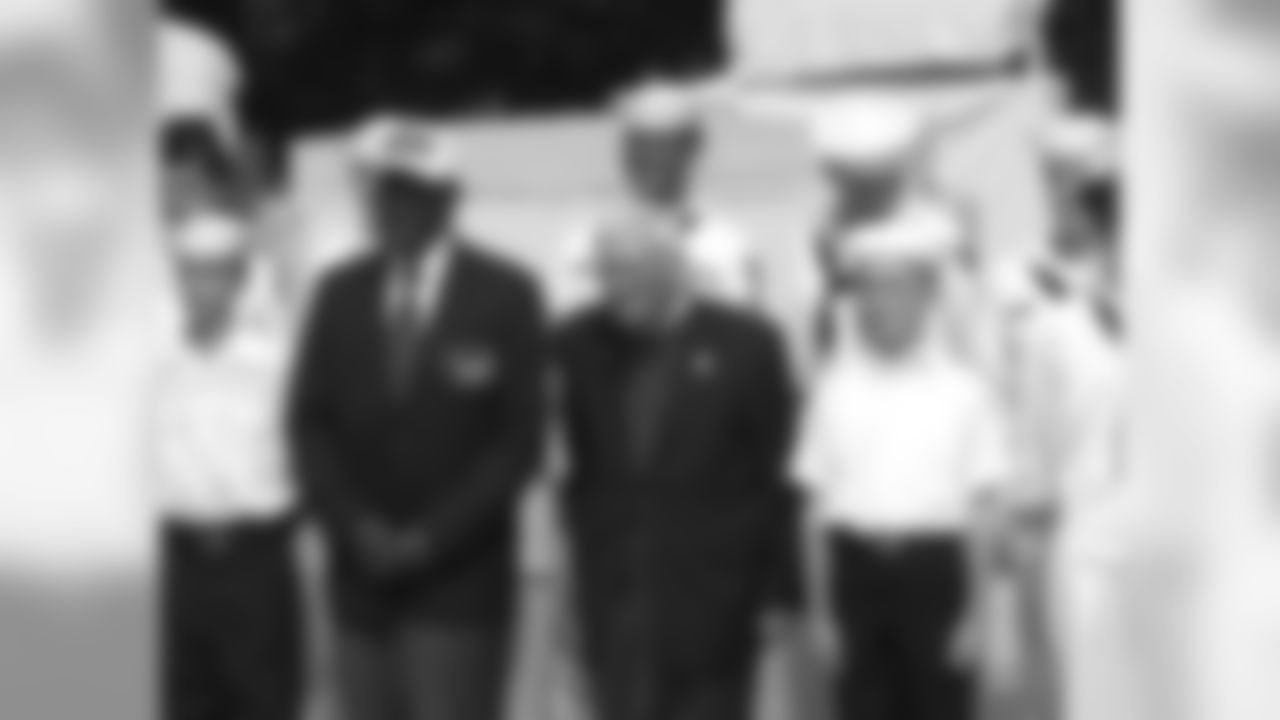
Dan Rooney attends a memorial unveiling, honoring the Tuskegee Airmen.
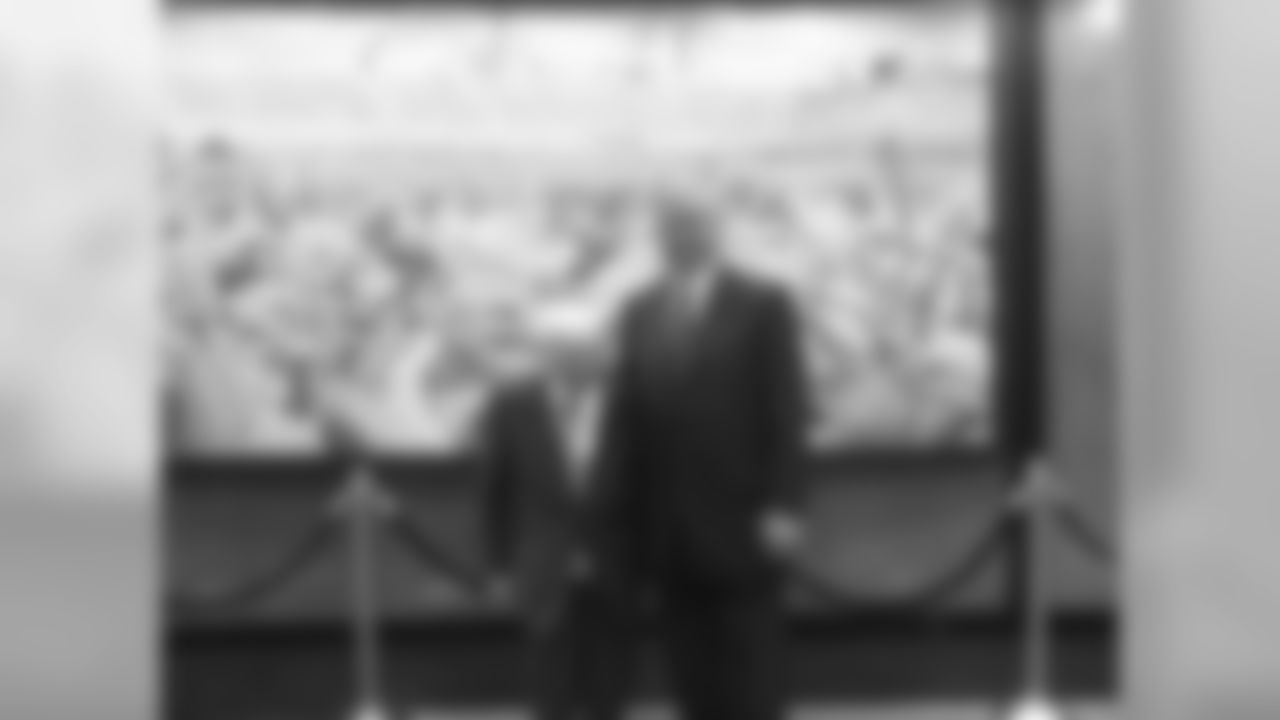
Dan Rooney and Carolina Panthers owner Jerry Richardson.
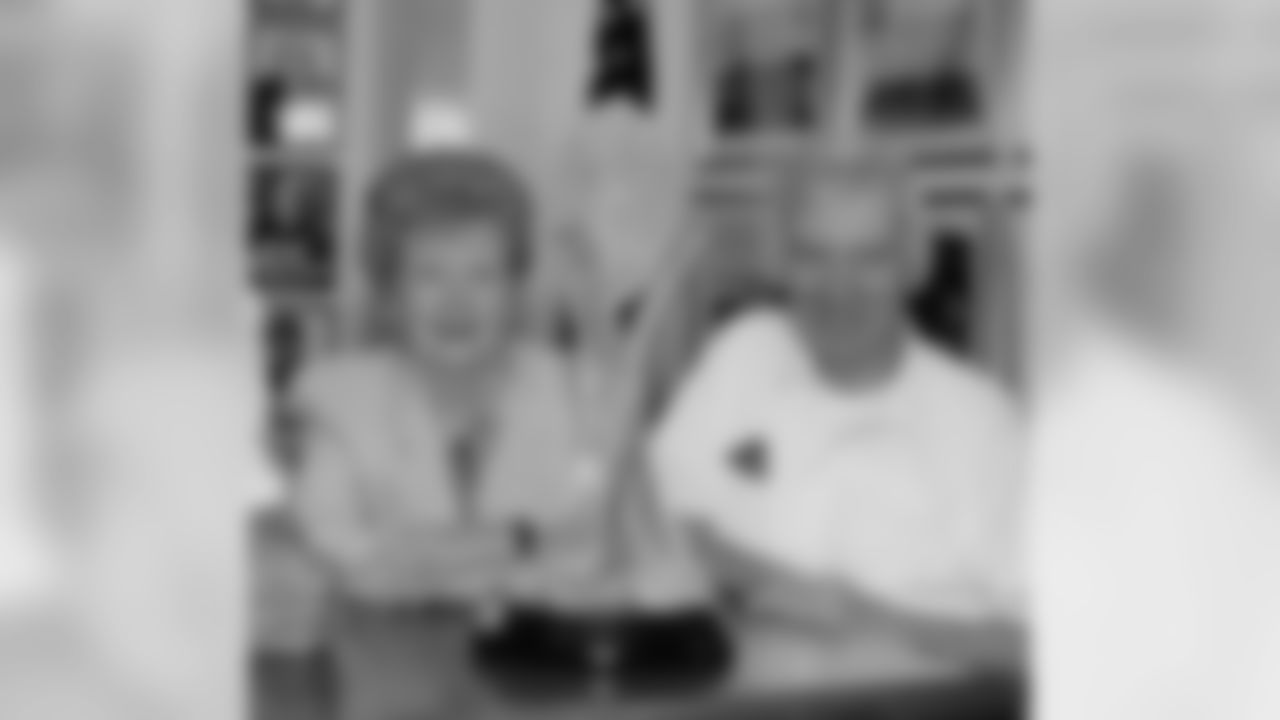
Dan Rooney and his wife Patricia Rooney pose for a photo with the American Bowl trophy.
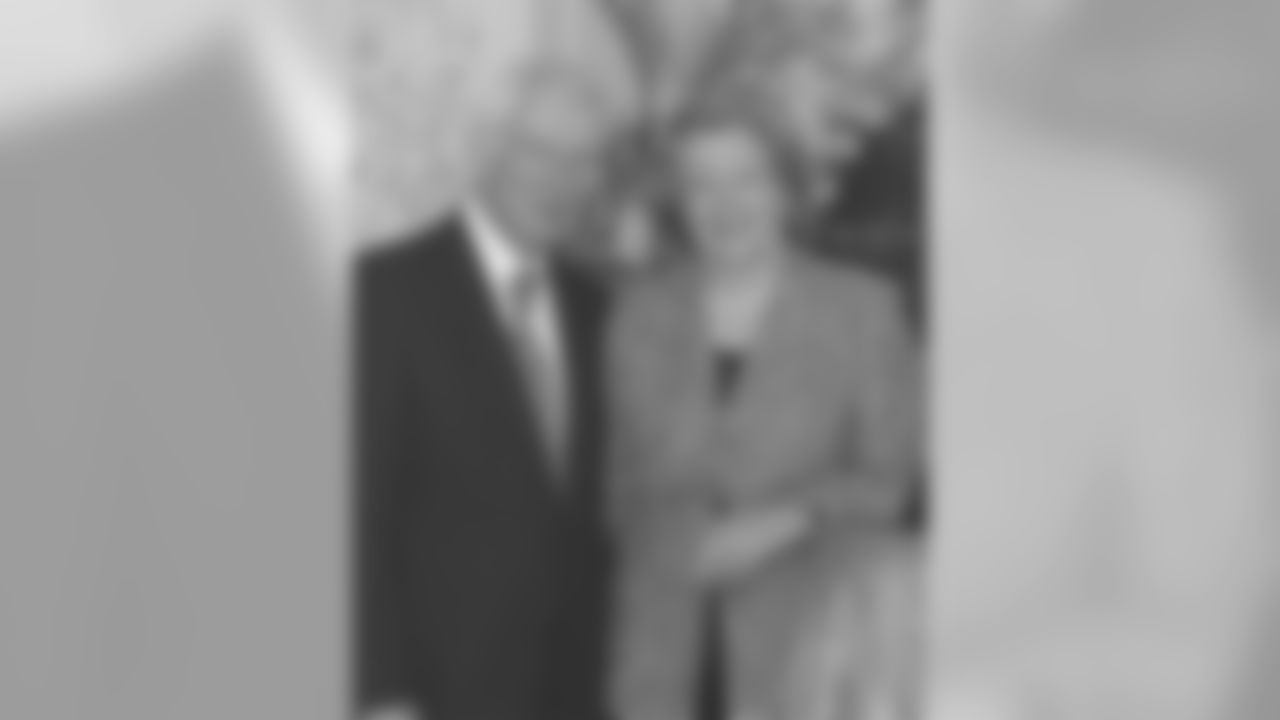
A portrait of Dan and Patricia Rooney.
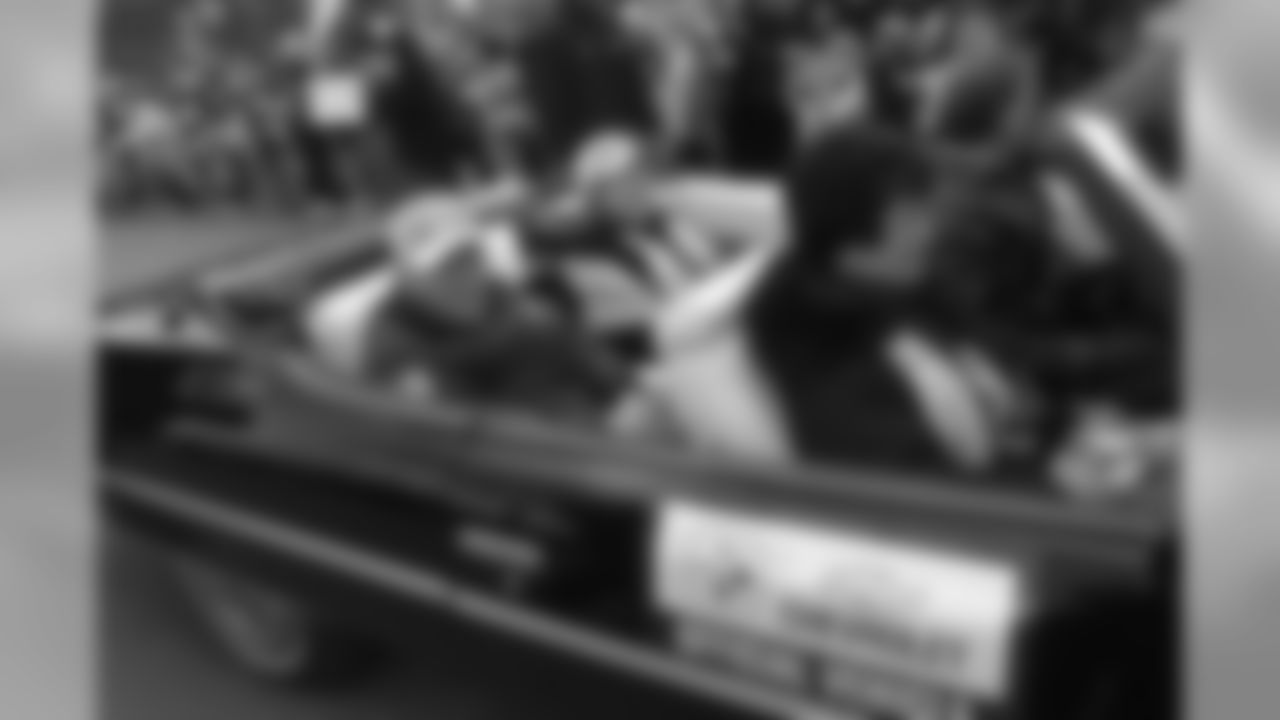
Dan and Patricia Rooney ride in a car during the Steelers parade following their Super Bowl XL victory.
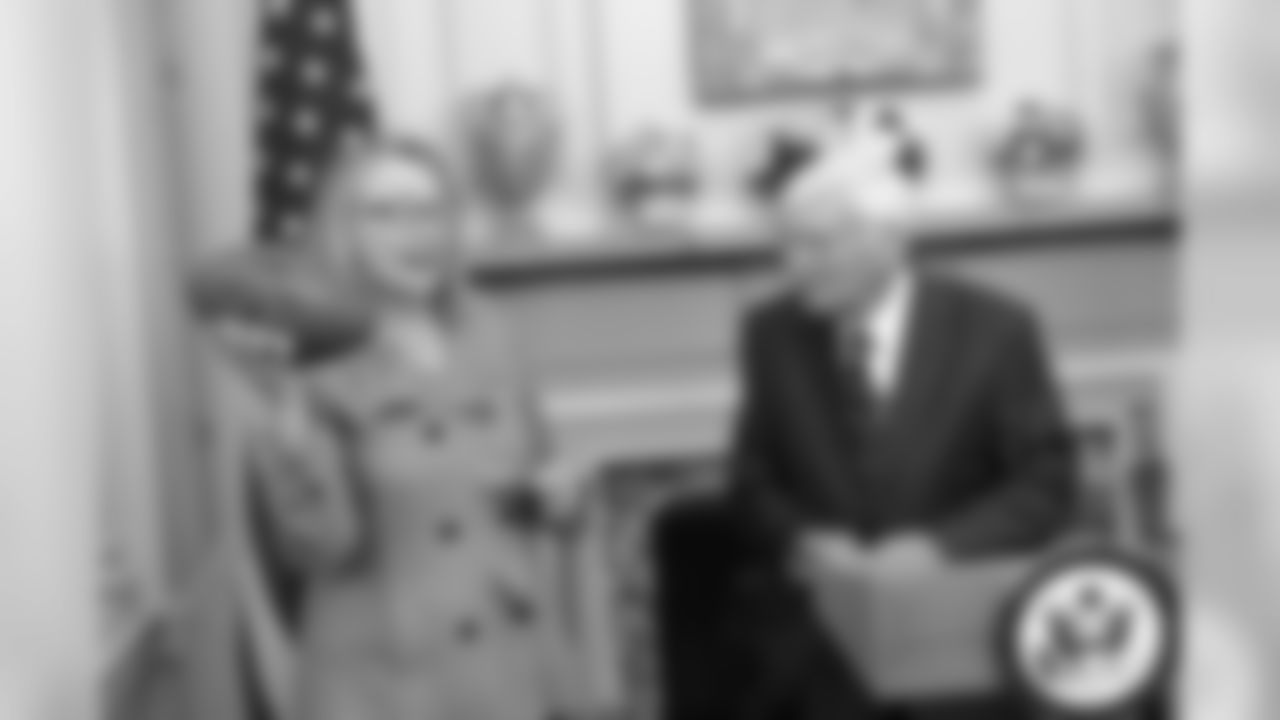
Dan Rooney stands with Secretary of State Hillary Clinton during a flag ceremony in 2013.
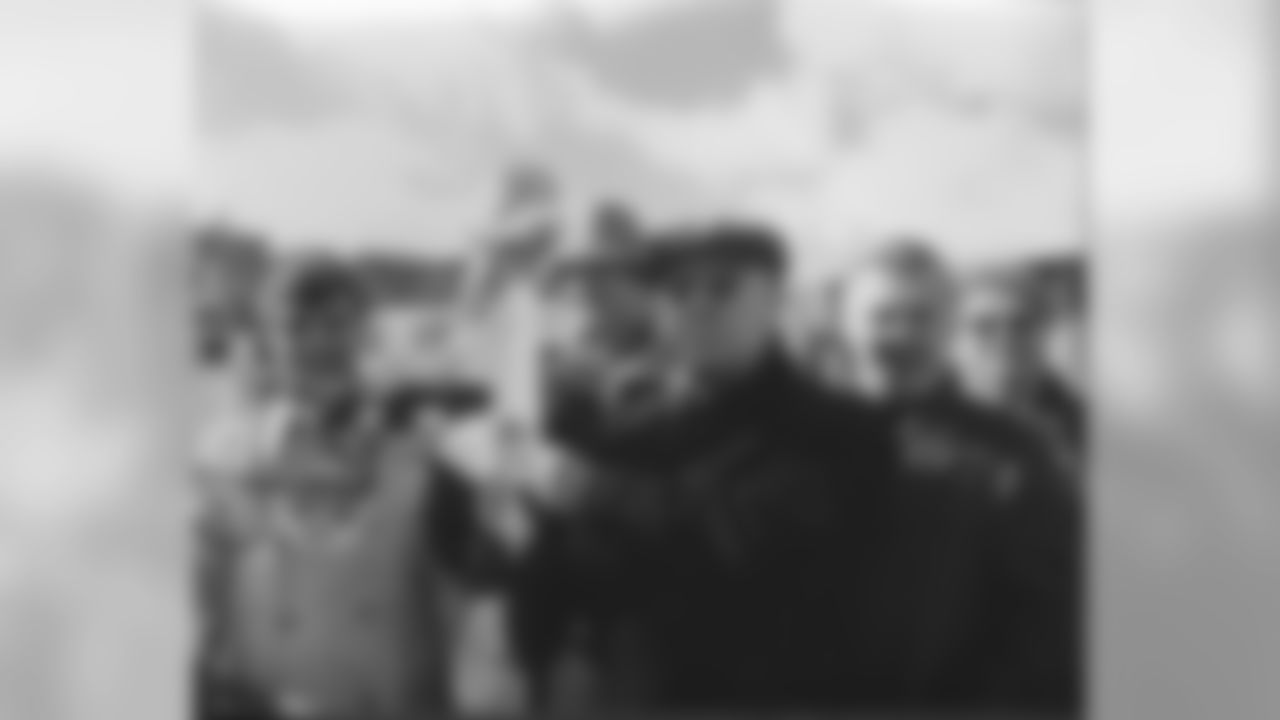
Dan Rooney stands on stage behind his father Art Rooney following a parade celebrating their victory in Super Bowl XIV.

Dan Rooney and his father, Art Rooney.
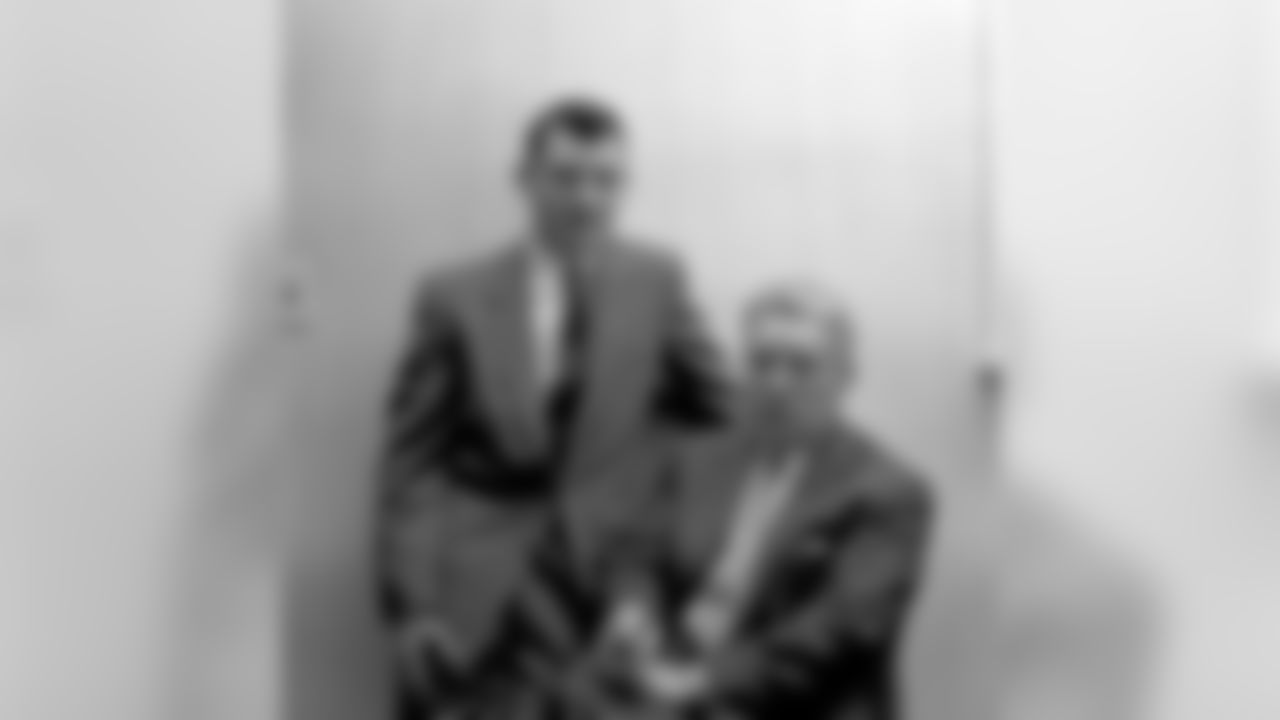
Dan Rooney and his father, Art Rooney.
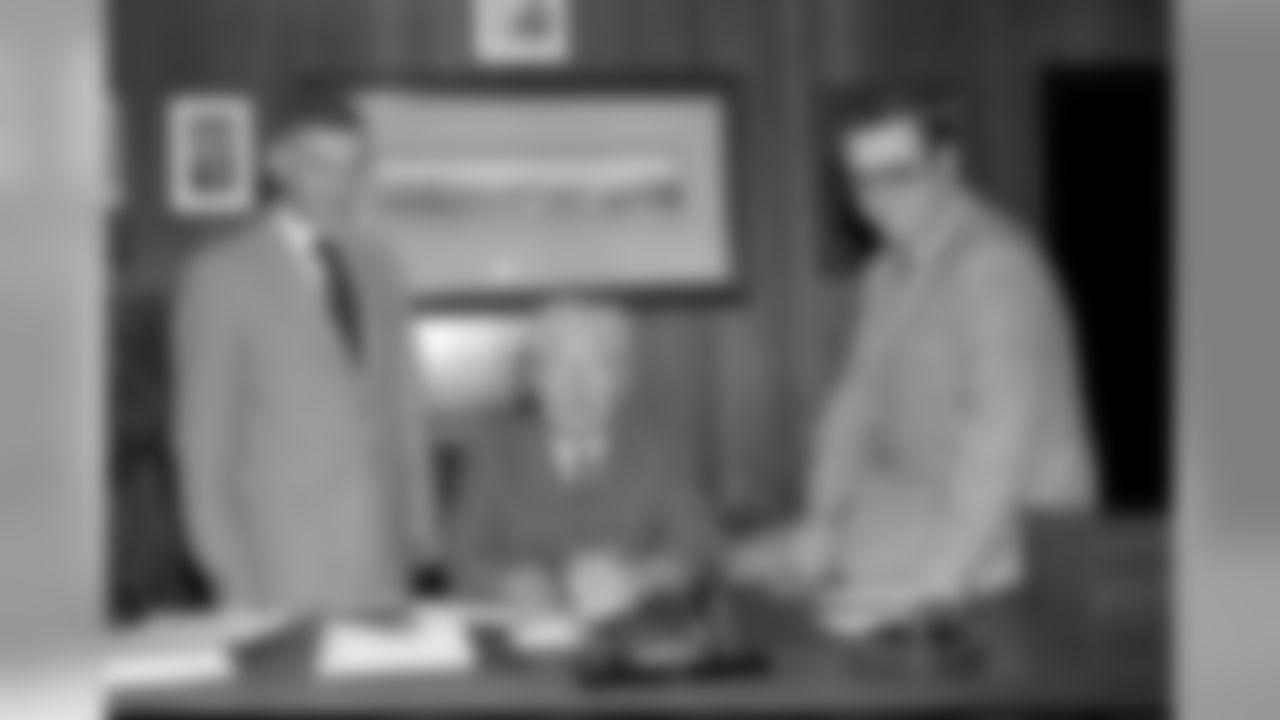
Dan Rooney with his father Art Rooney and brother Art Rooney Jr.
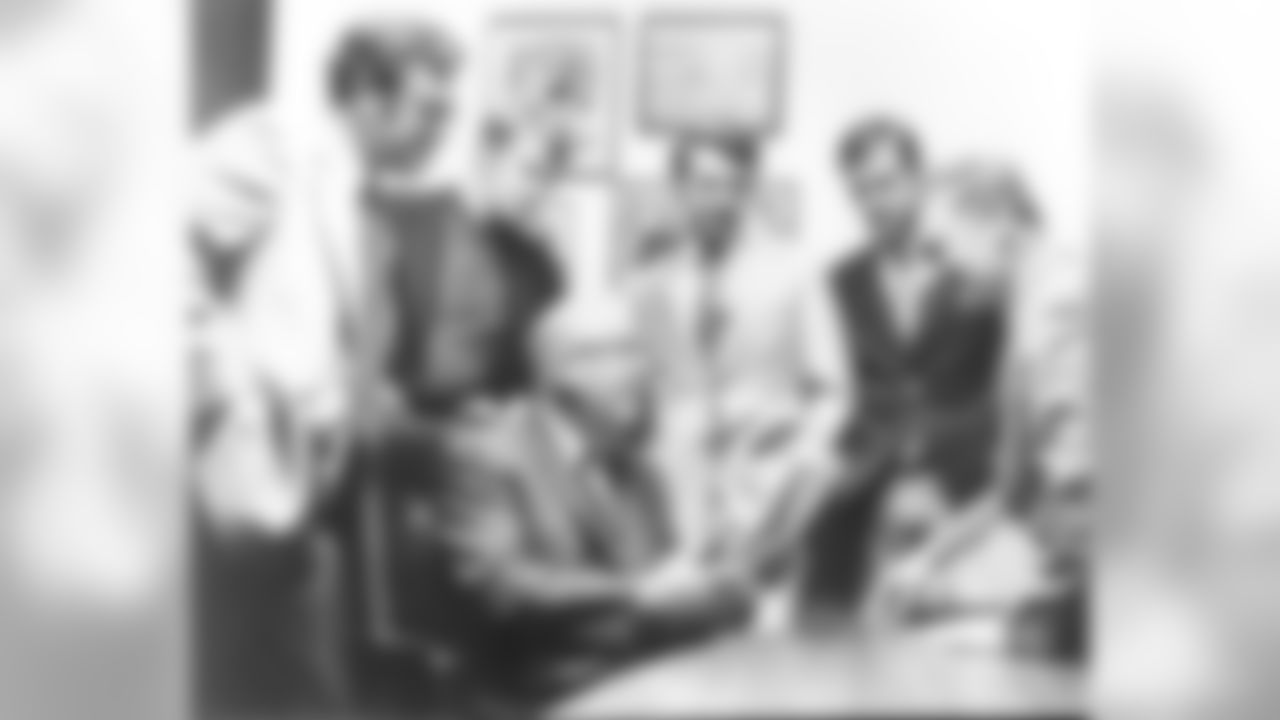
Art Rooney Jr., John Rooney, Art Rooney (The Chief), Tim Rooney, Pat Rooney and Dan Rooney.
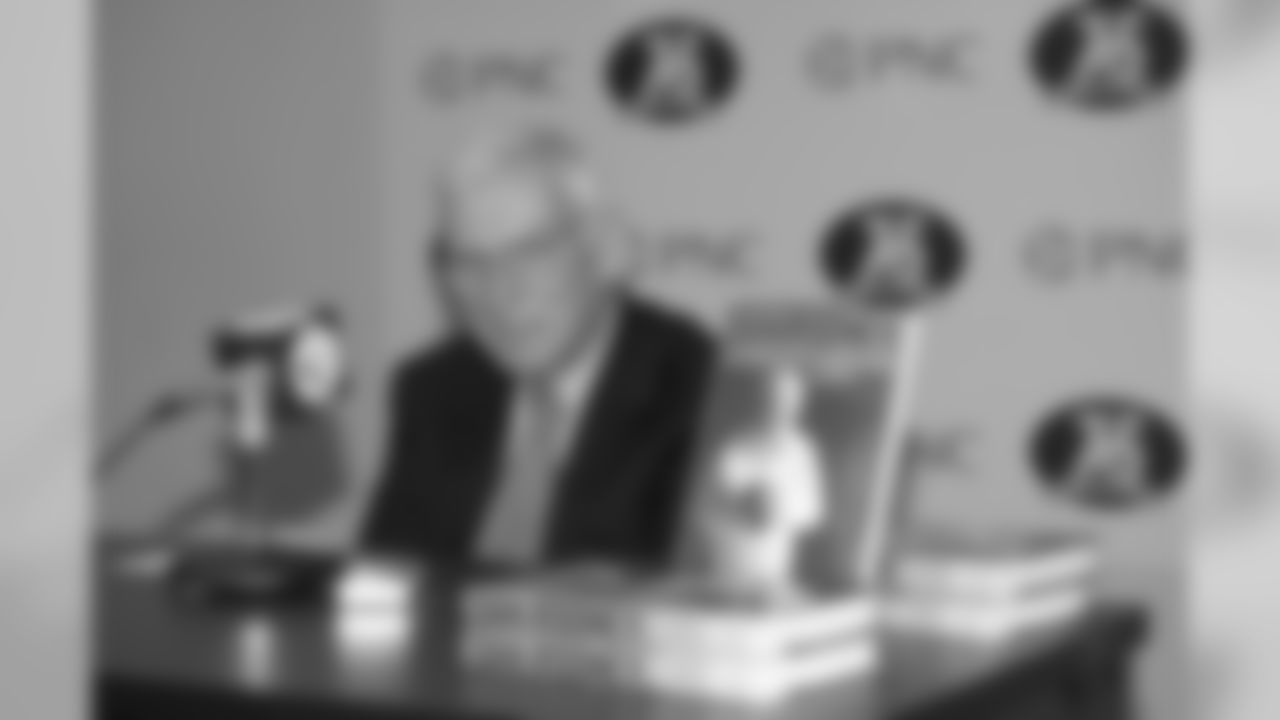
Dan Rooney during a press conference announcing the release of his autobiography.

Dan Rooney shakes hands with a group of Navy Seals before a game against the Baltimore Ravens, November 6, 2011.

Dan Rooney stands with Dermontti Dawson, Jack Butler and Art Rooney II during a locker unveiling for the newest members to the Pro Football Hall of Fame.
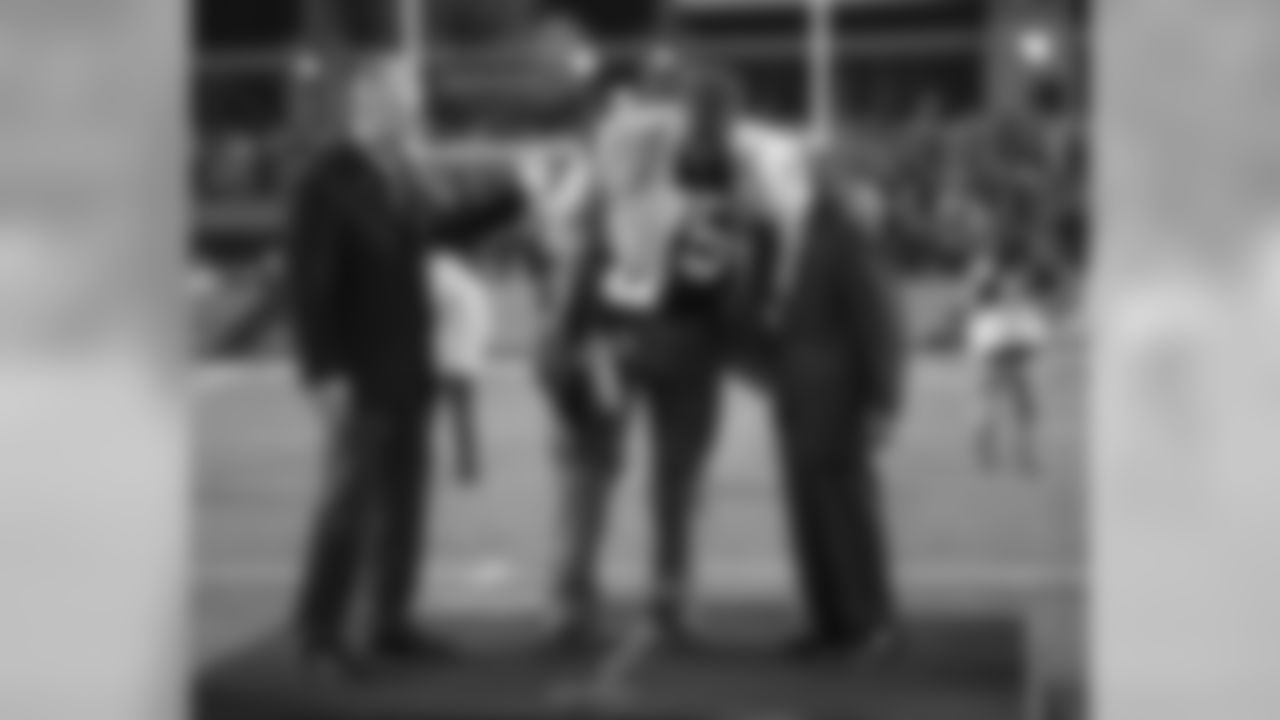
Joe Greene gives Dan Rooney a hug during his jersey retirement at Heinz Field.
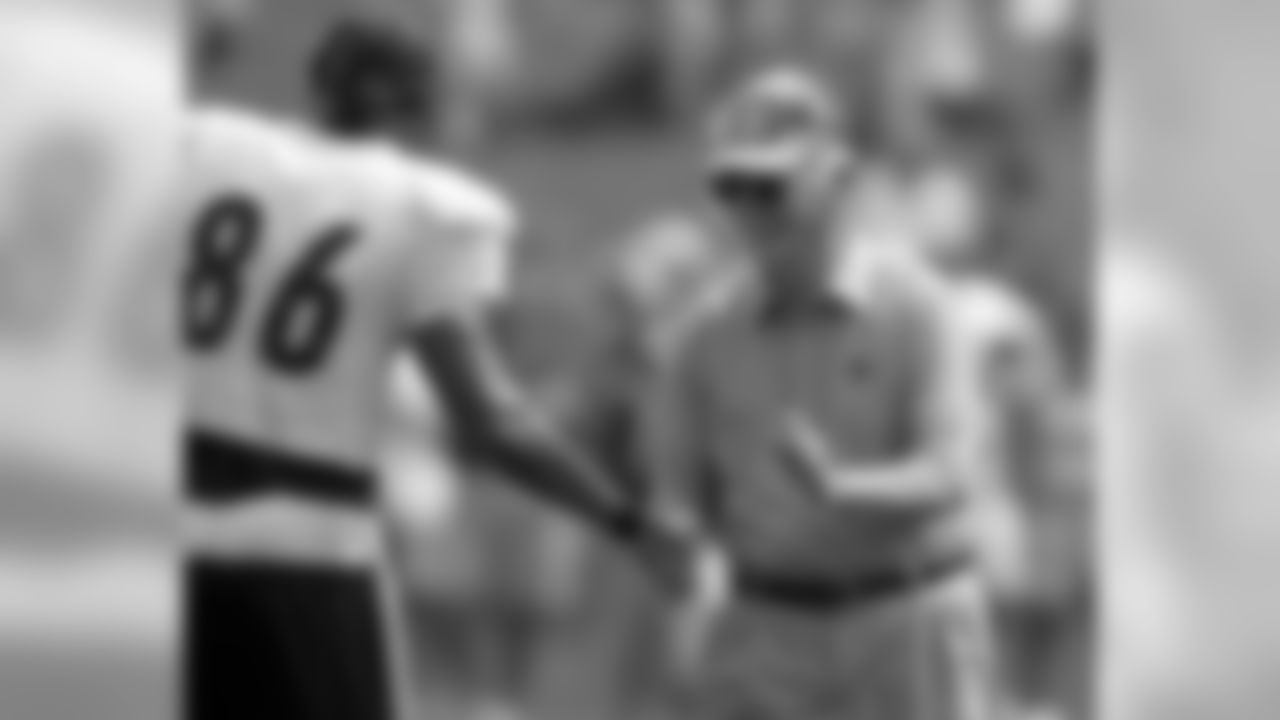
Dan Rooney Shakes hands with Hines Ward.
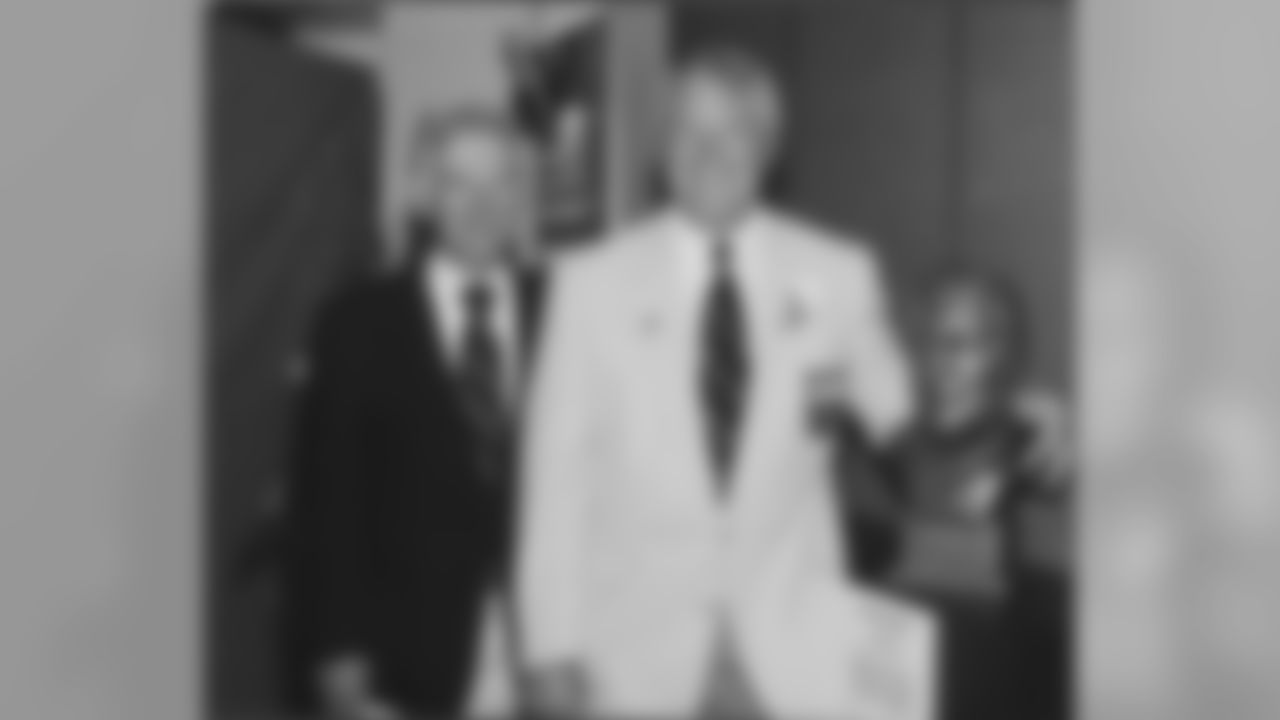
Dan Rooney stands along side Chuck Noll and his bust during the Hall of Fame induction ceremonies in 1993.
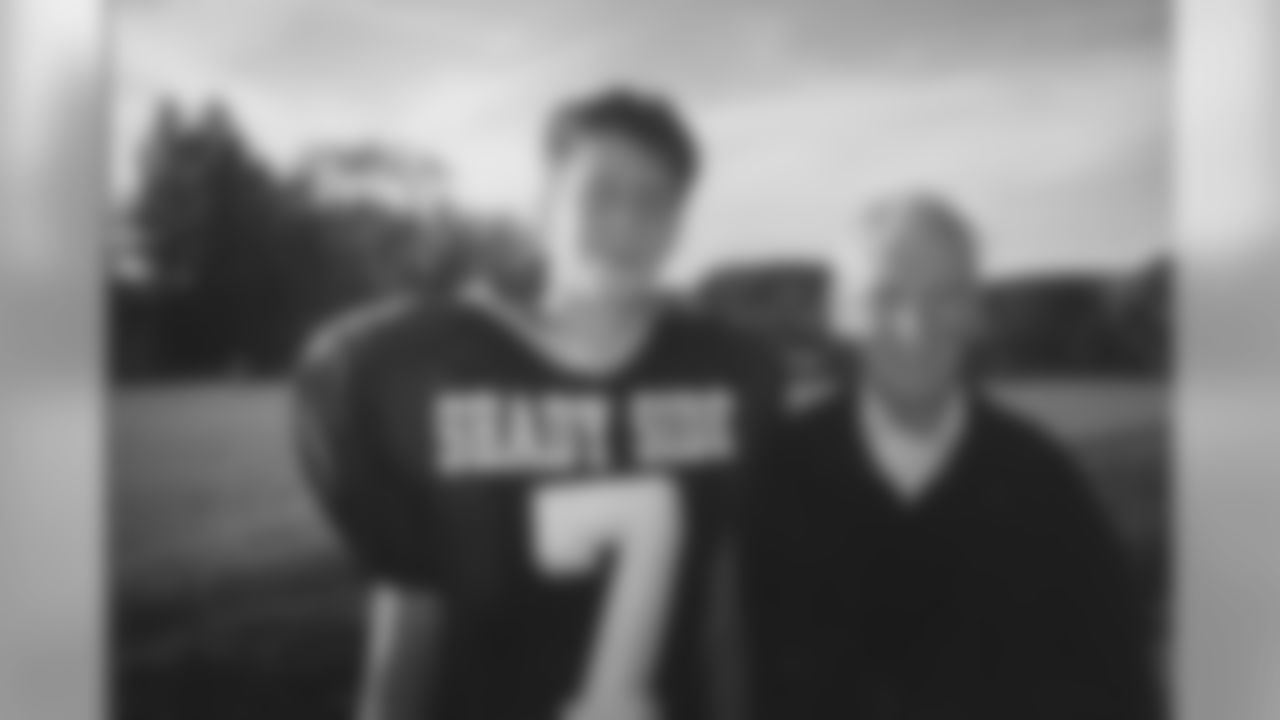
Dan Rooney poses for a photo with his grandson Dan Rooney.

Dan Rooney stands with his bust during the Pro Football Hall of Fame induction ceremony.
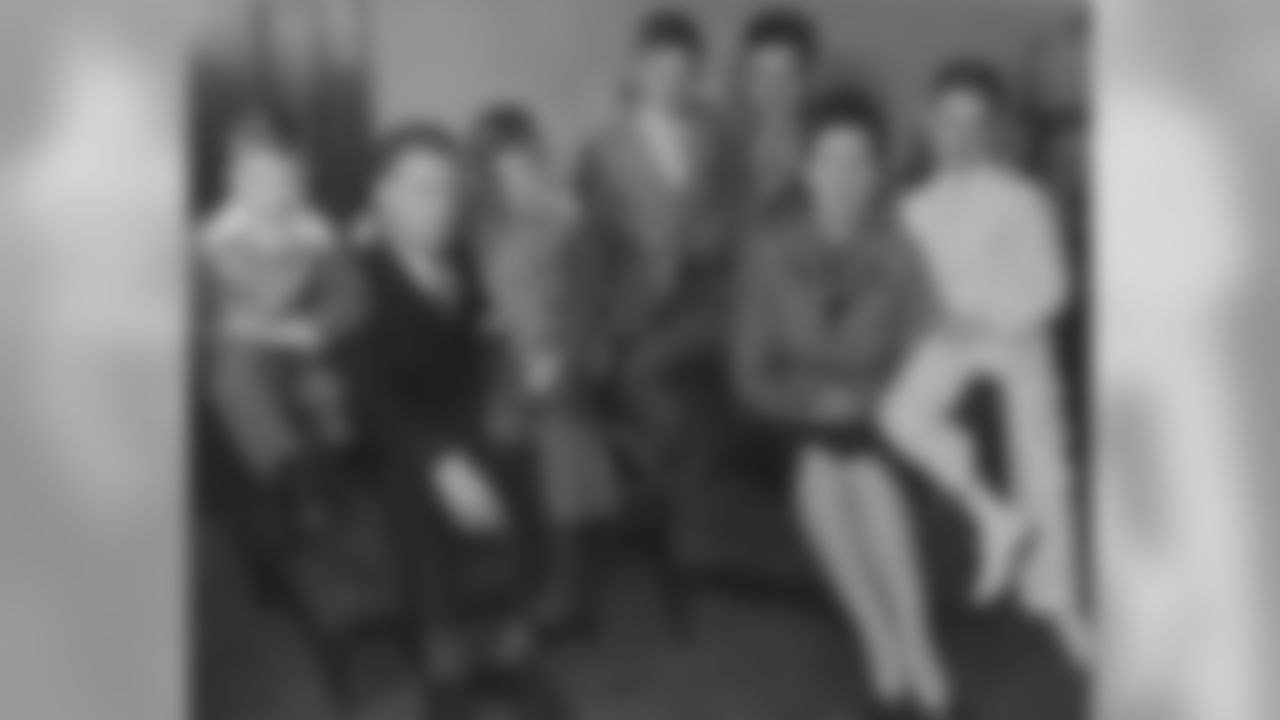
Dan Rooney with his four brothers, his father Art Rooney and mother Kathleen Rooney.
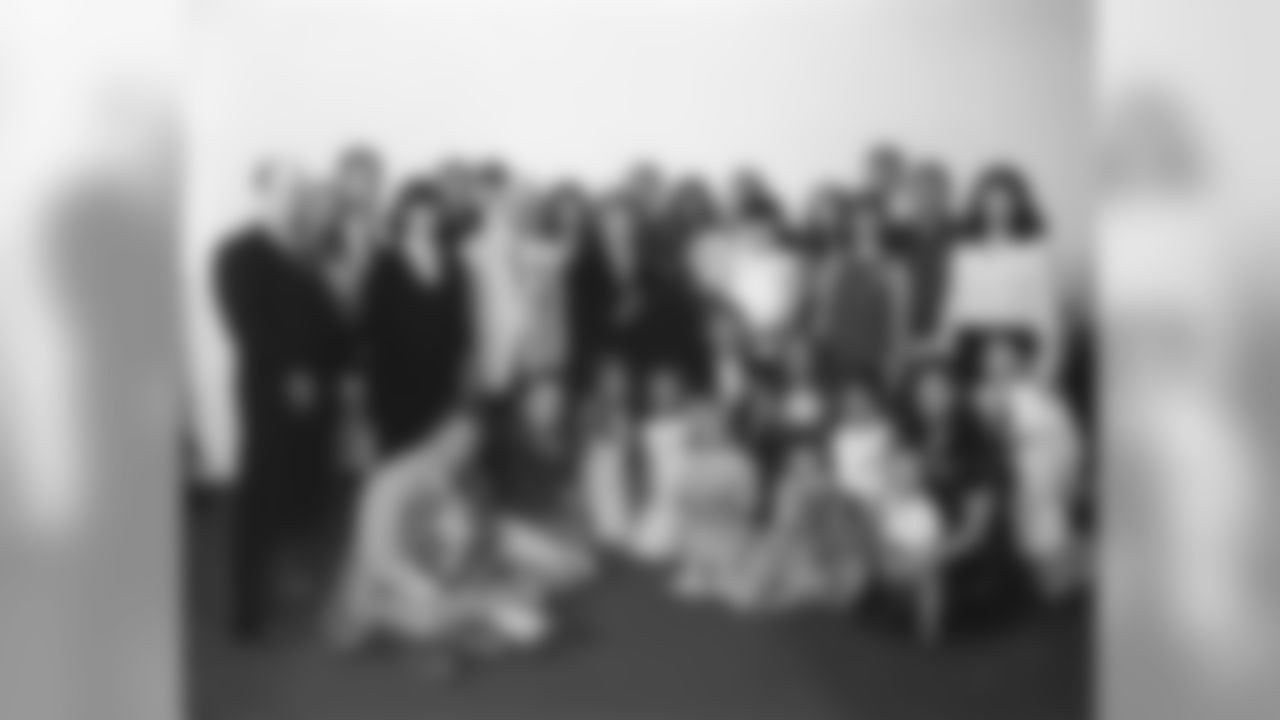
Dan Rooney takes a picture with his family and his Hall of Fame bust.
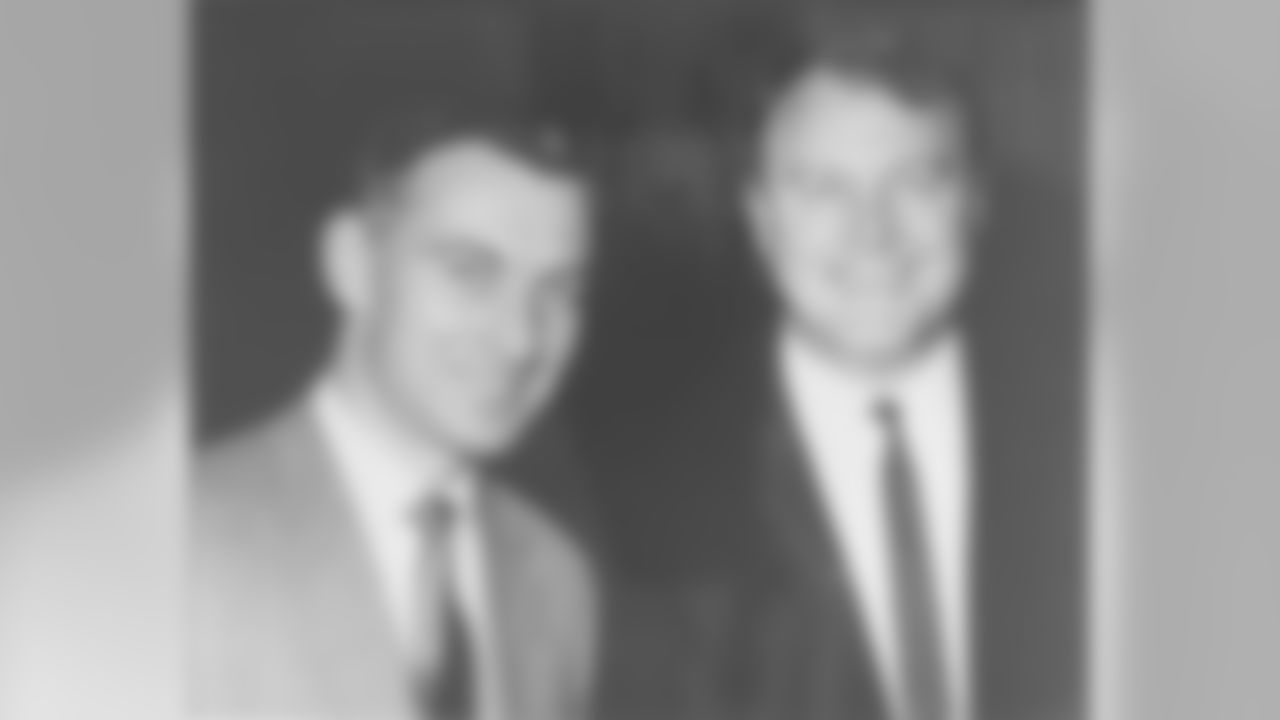
Dan Rooney poses for a photo with Chuck Noll after signing him to the Steelers head coaching position.
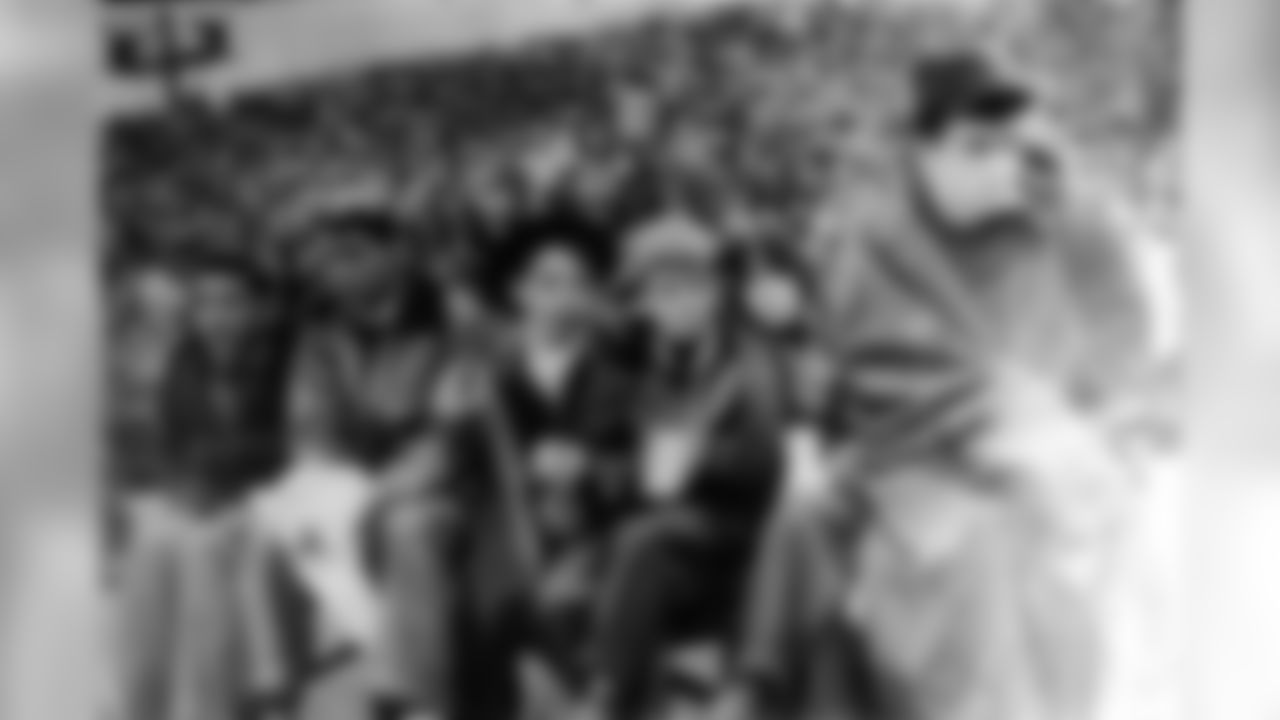
Dan Rooney, pictured far right, sits on the bench as a ball boy.
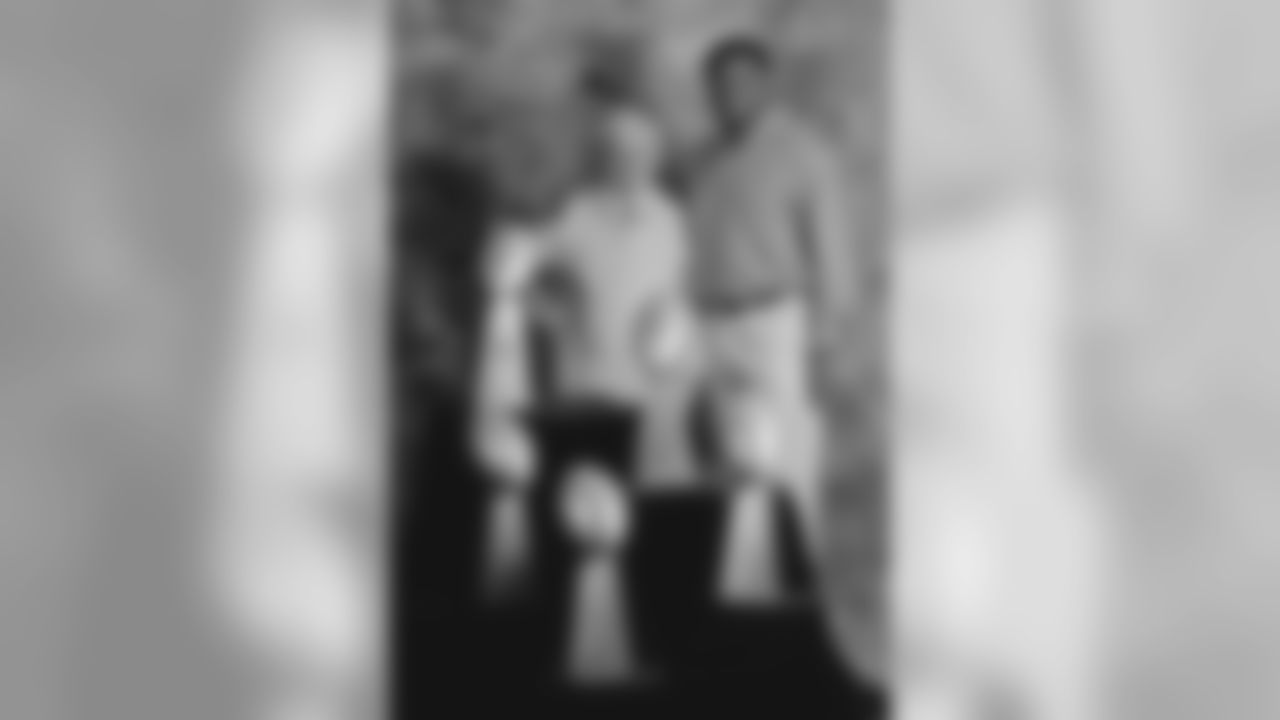
Dan Rooney poses for a photo with Coach Mike Tomlin.
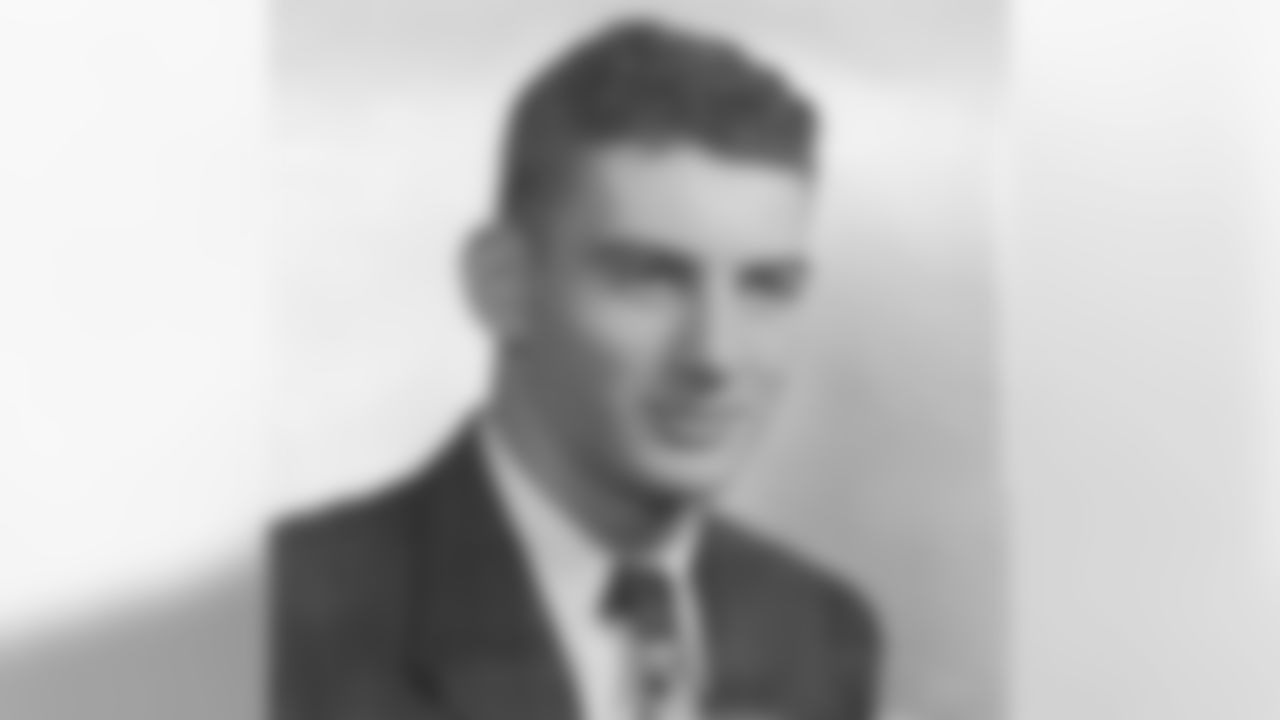
A portrait of Dan Rooney.
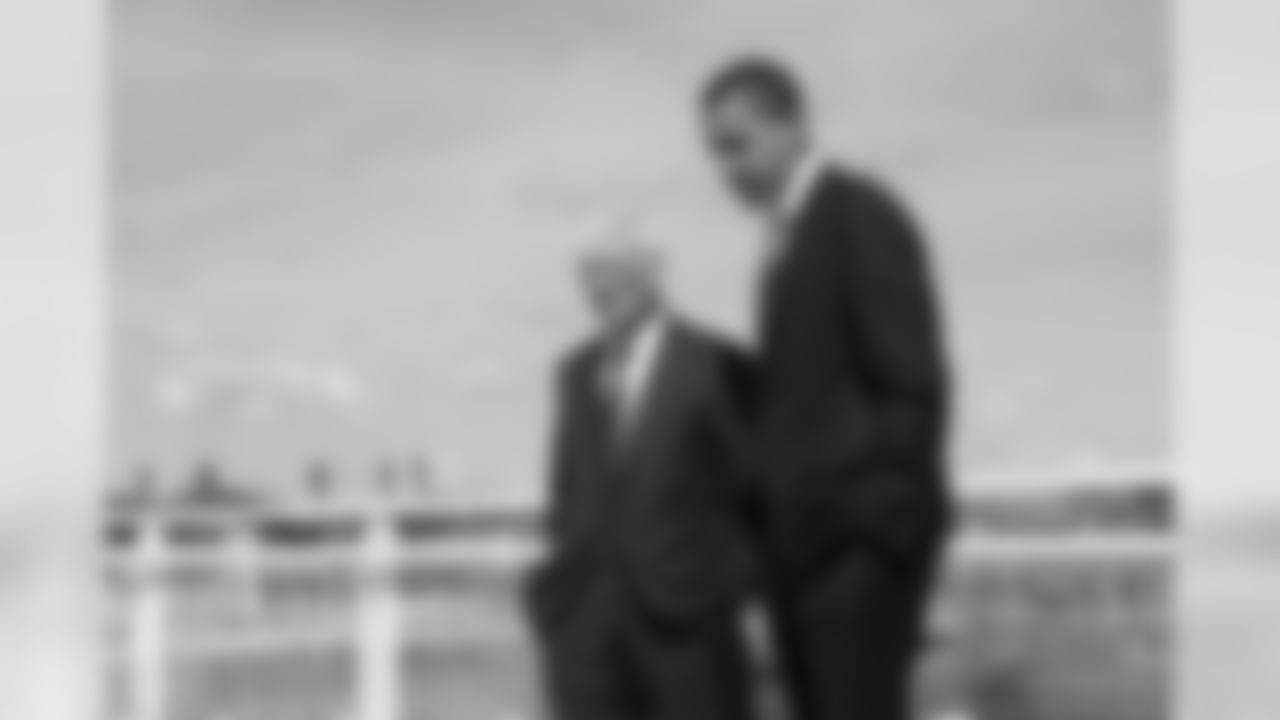
Dan Rooney talks with Senator Barack Obama.
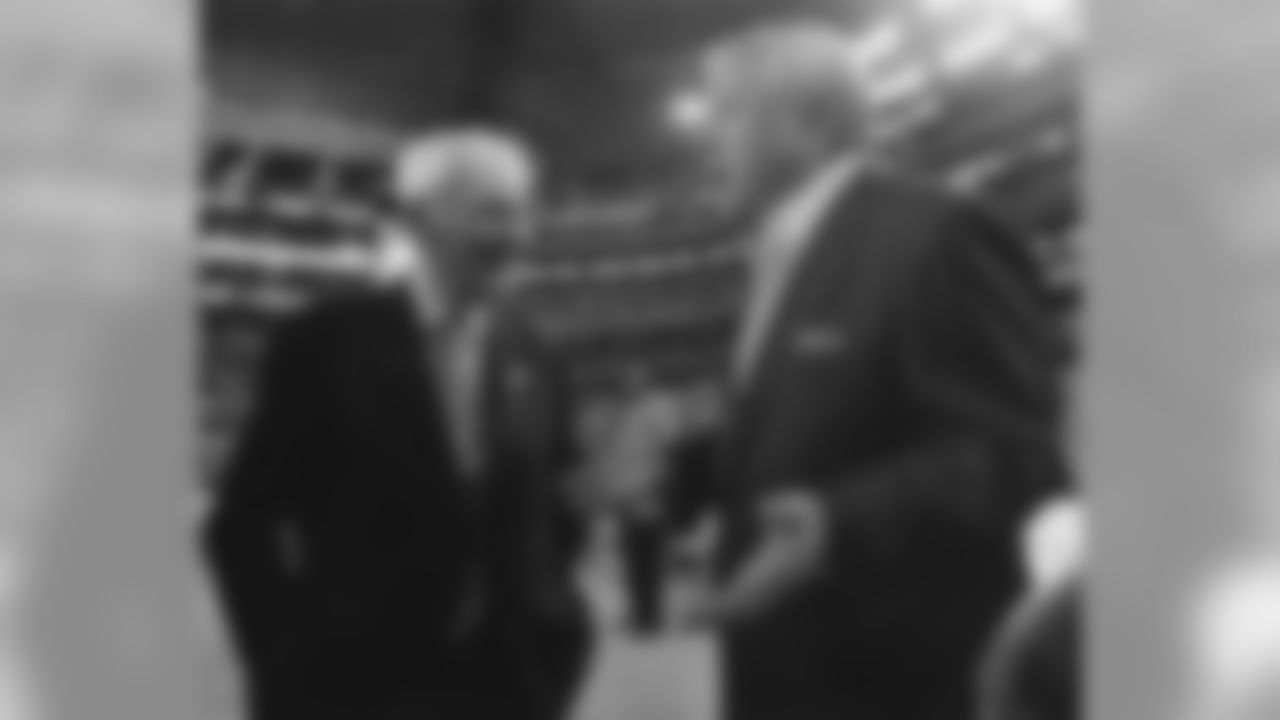
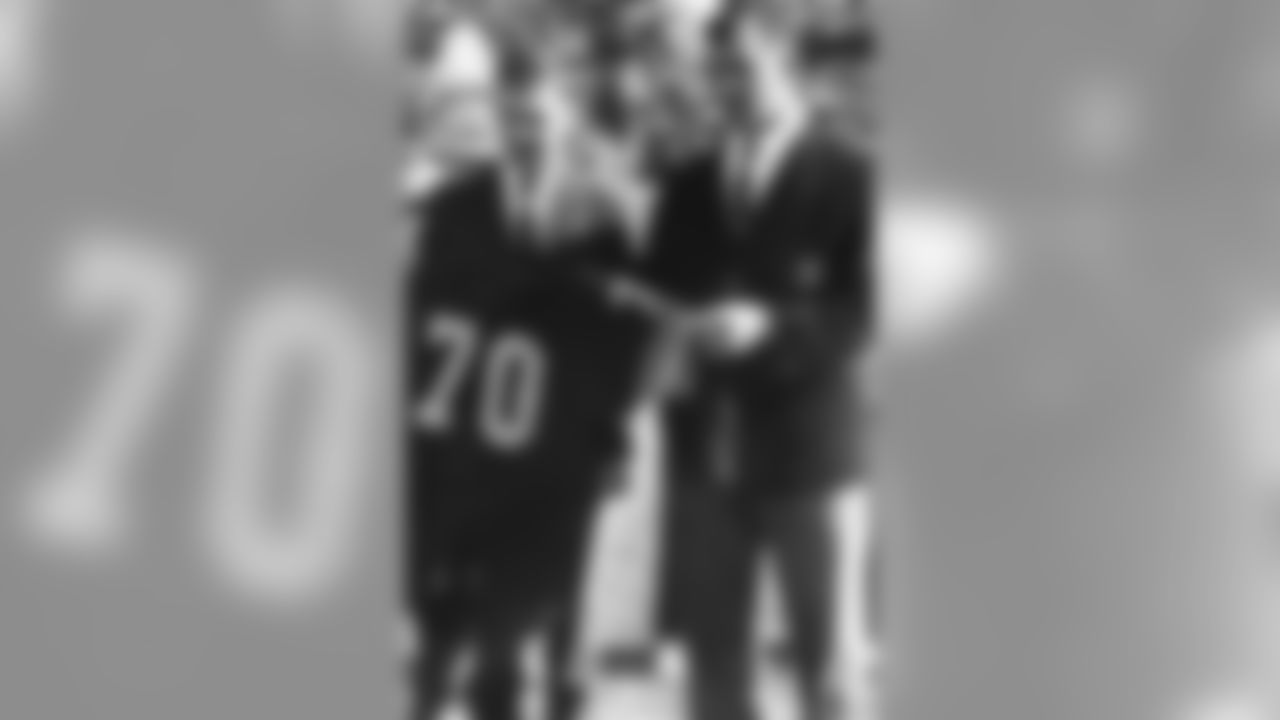
Dan Rooney stands with Ernie Stautner during a jersey retirement ceremony.
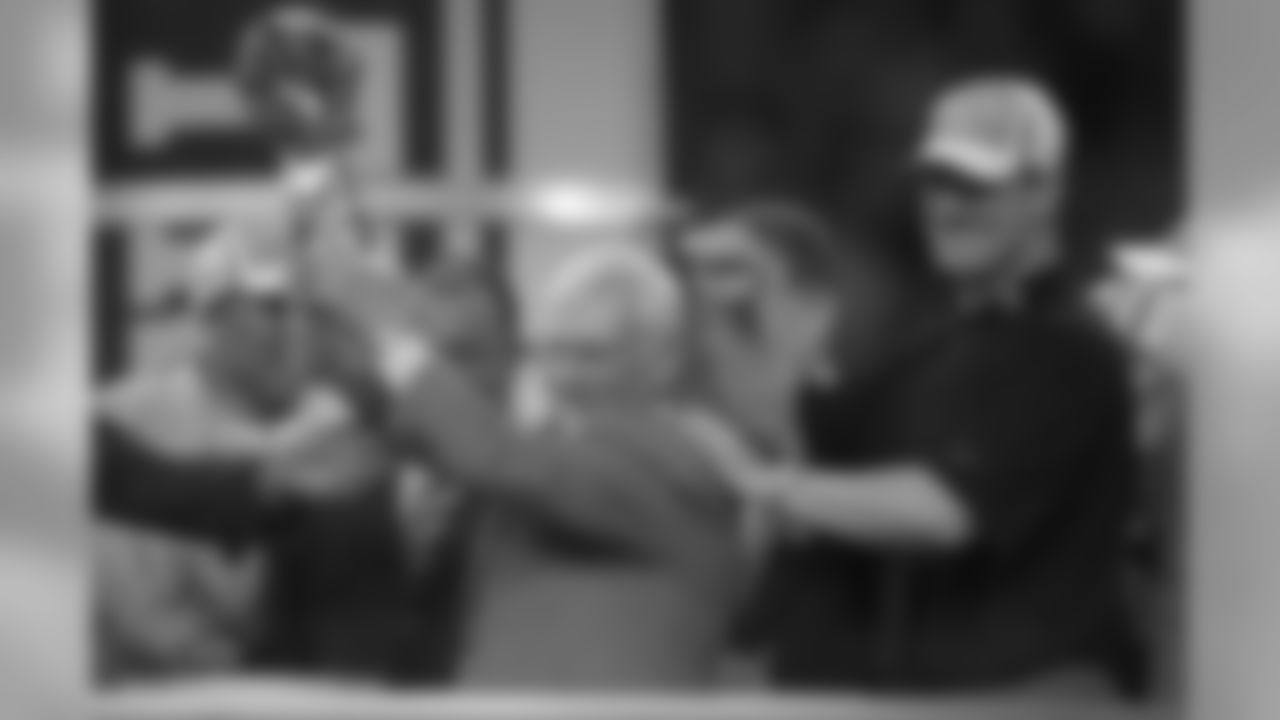
Dan Rooney holds up the Lombardi trophy after winning Super Bowl XL.

Dan Rooney waves to fans as he walks off the field after Super Bowl XL.

Dan Rooney shakes hands with Alan Faneca in the locker room after winning Super Bowl XL.
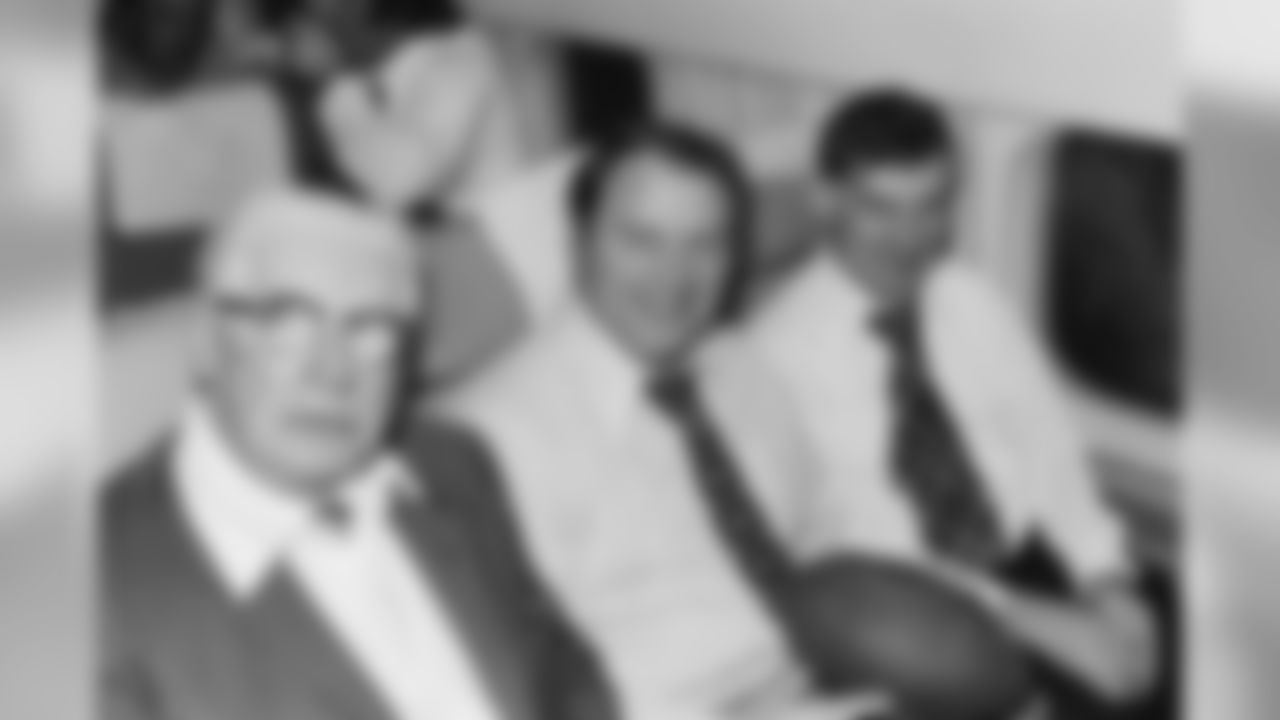
Art Rooney, Chuck Noll and Dan Rooney sitting on the team plane heading for Super Bowl IX.
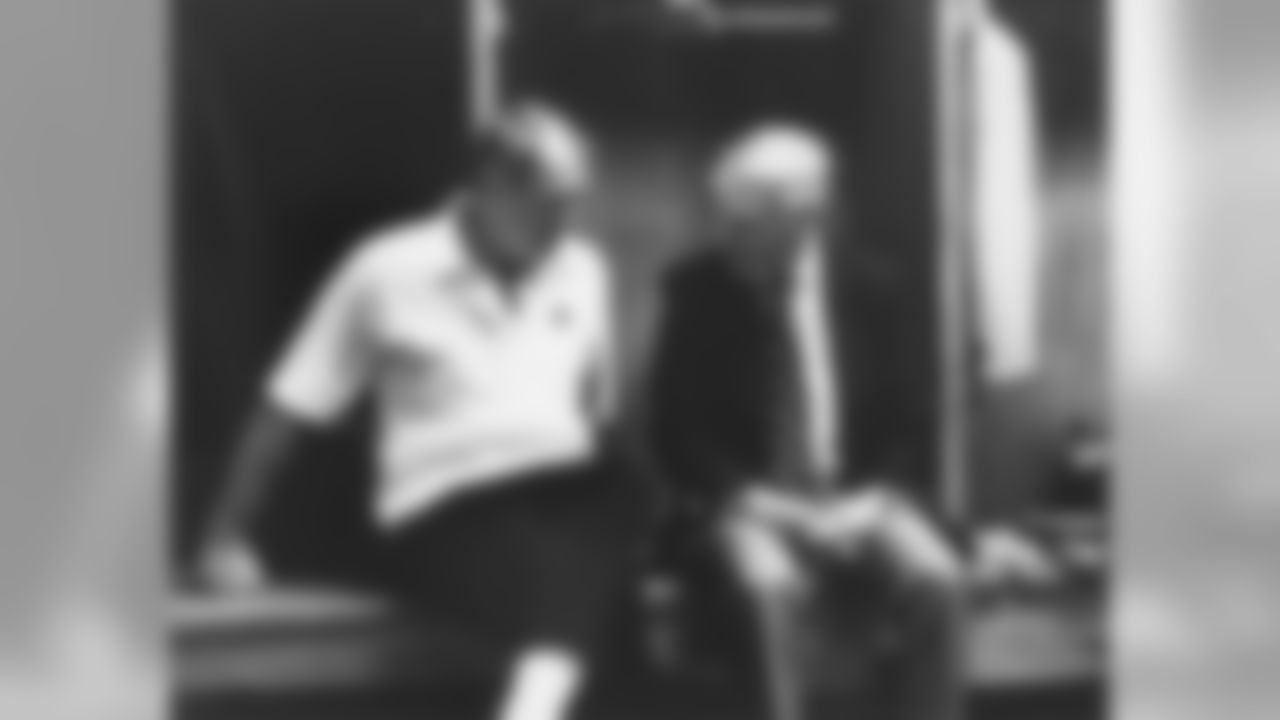
Candid shot of Steelers owner Dan Rooney sitting with Steelers head coach Chuck Noll in the locker room after the Dallas Cowboys defeated the Steelers.
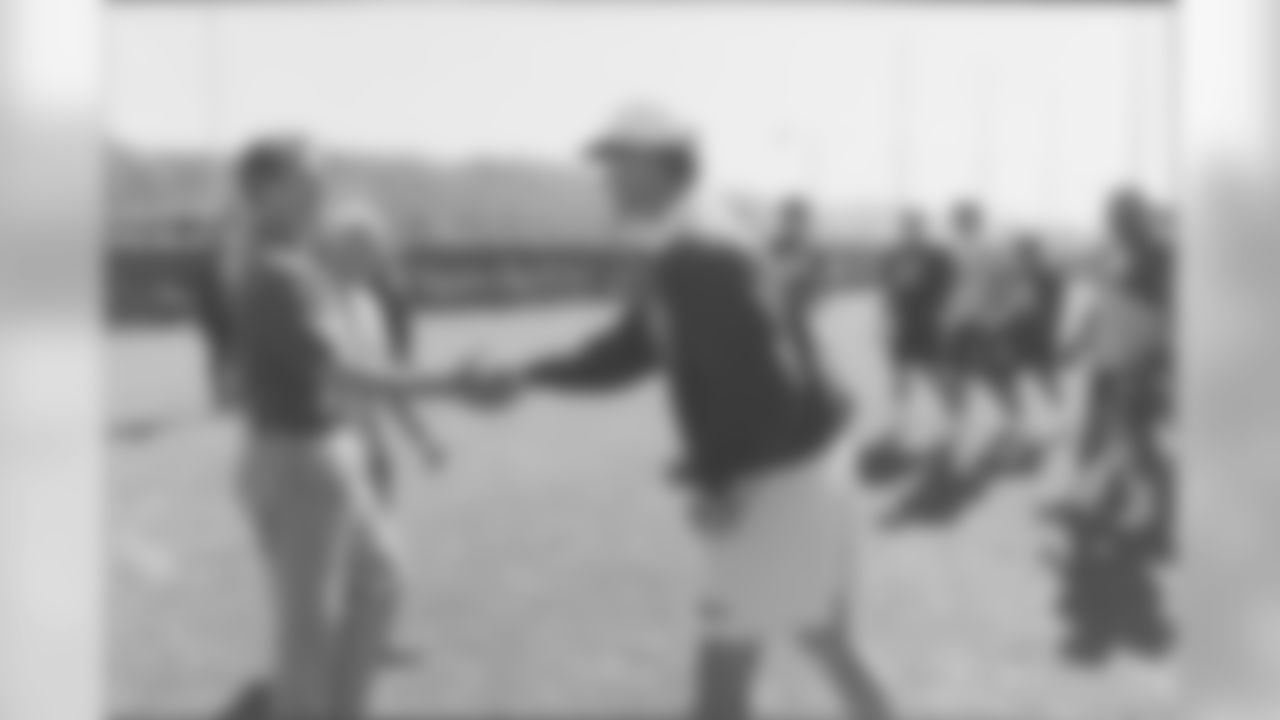
Dan Rooney introduces Vice President Al Gore to Coach Bill Cowher.
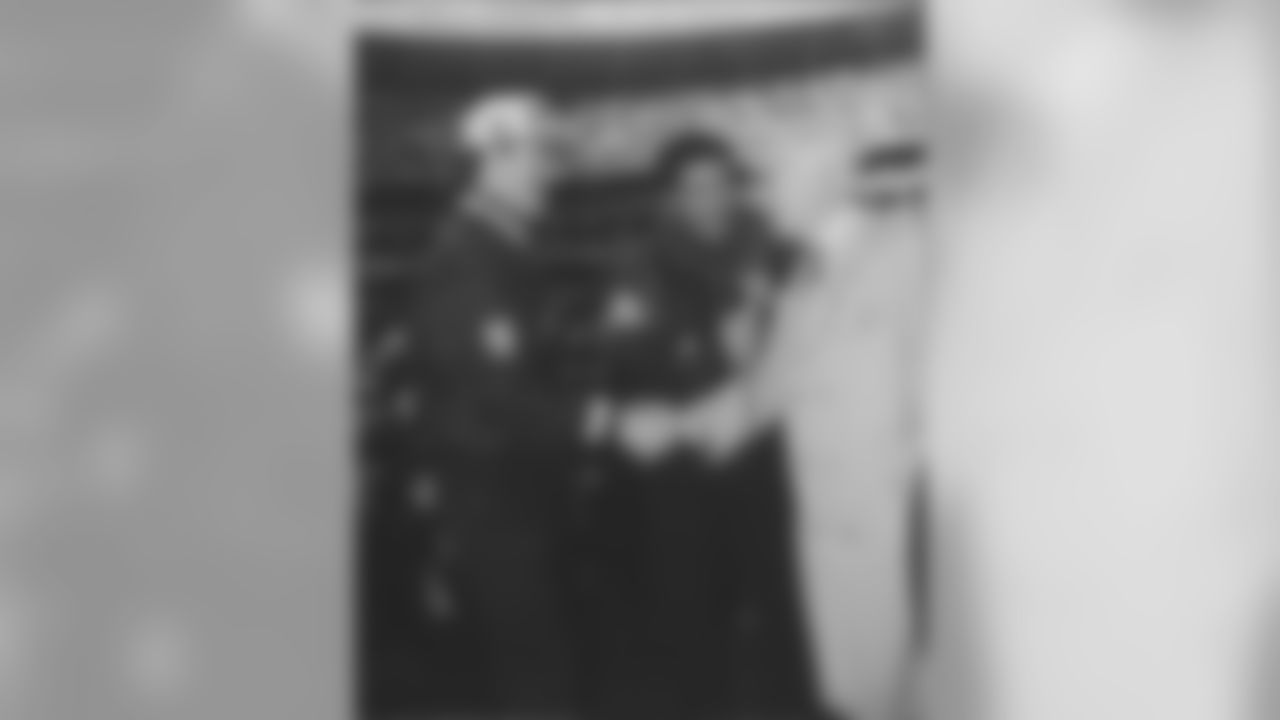
Dan Rooney shakes hands with Coach Bill Cowher after winning the AFC Championship game against the Indianapolis Colts on January 14th, 1996.
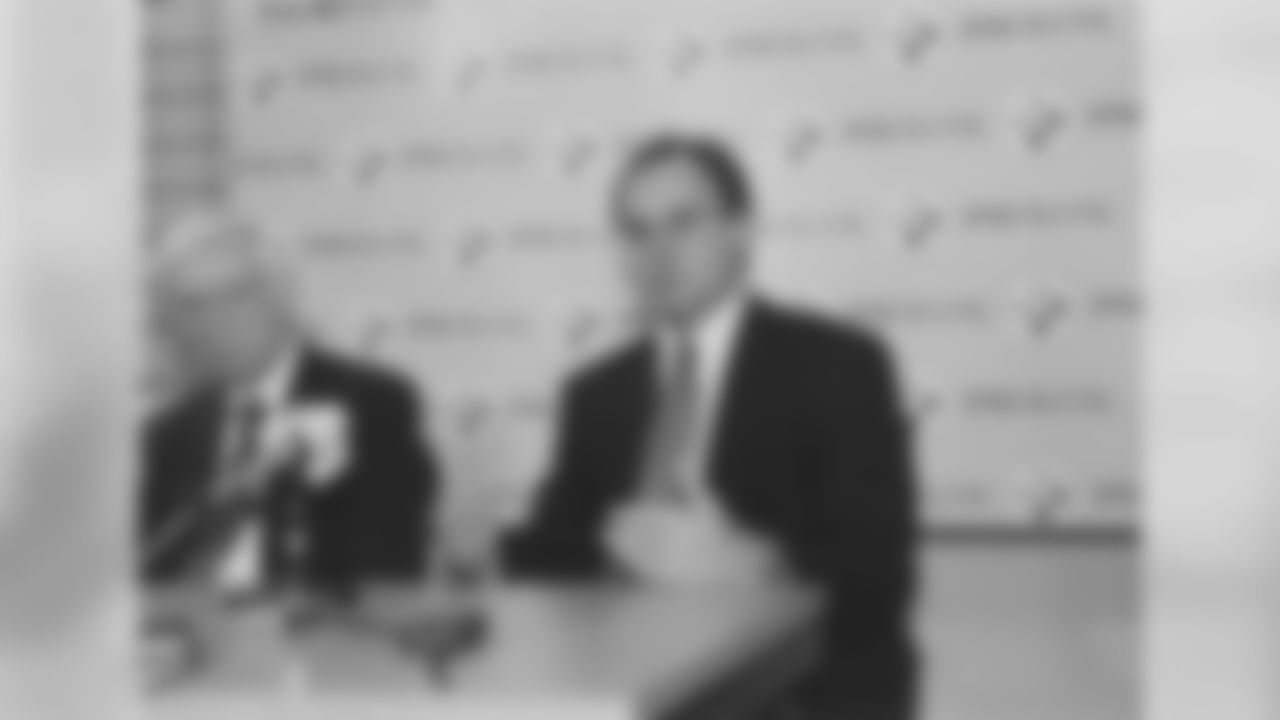
Dan Rooney and Kevin Colbert during a press conference in 2000.

A photograph of Dan Rooney and Kevin Colbert.

Dan Rooney talks with Coach Bill Cowher, Tom Modrak and Tom Donahoe in the Draft Room.
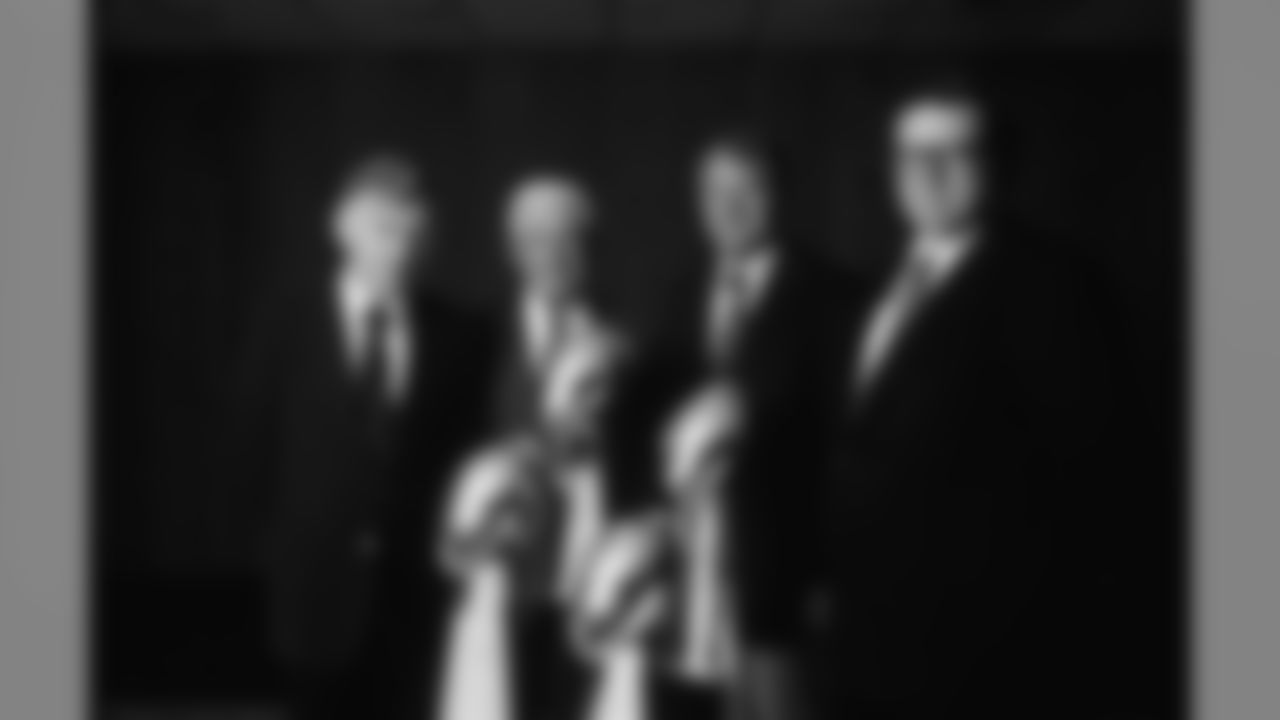
Dan Rooney, Art Rooney, Chuck Noll and Art Rooney Jr. pose for a photo with four Lombardi trophies.
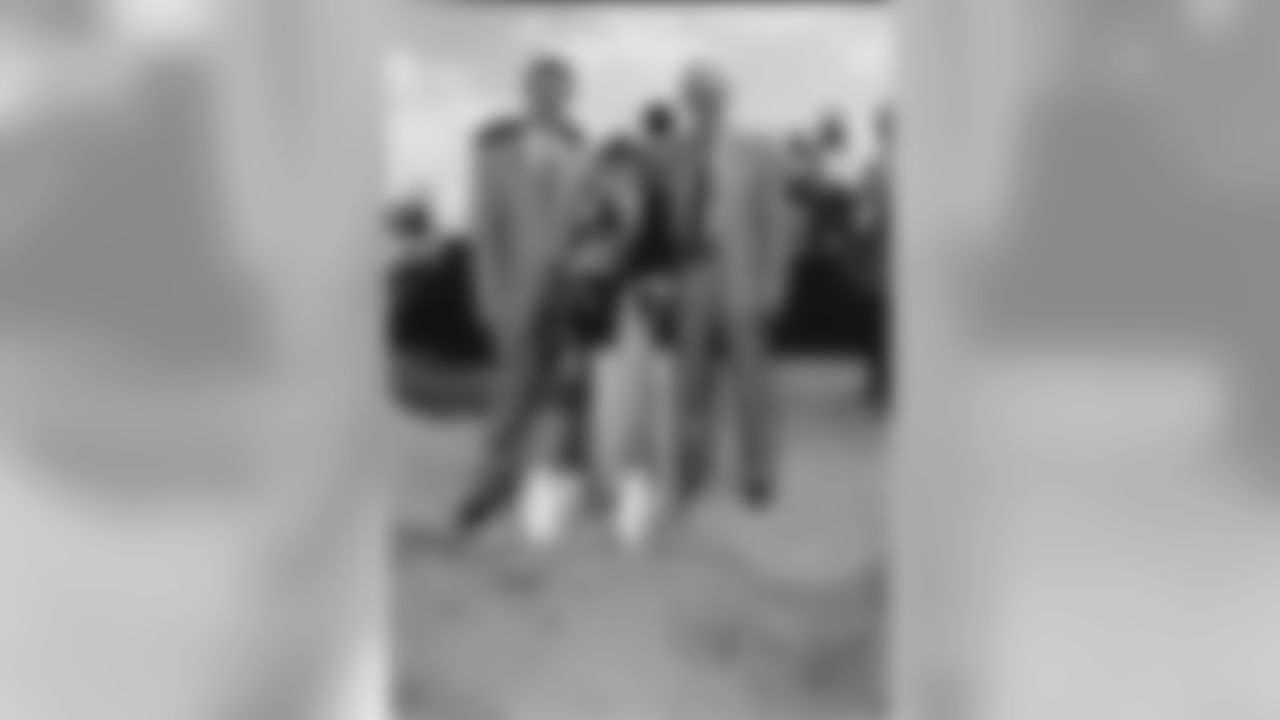
Dan Rooney and his son Art Rooney II and grandson Dan Rooney pose for photographs during a groundbreaking ceremony for Heinz Field.
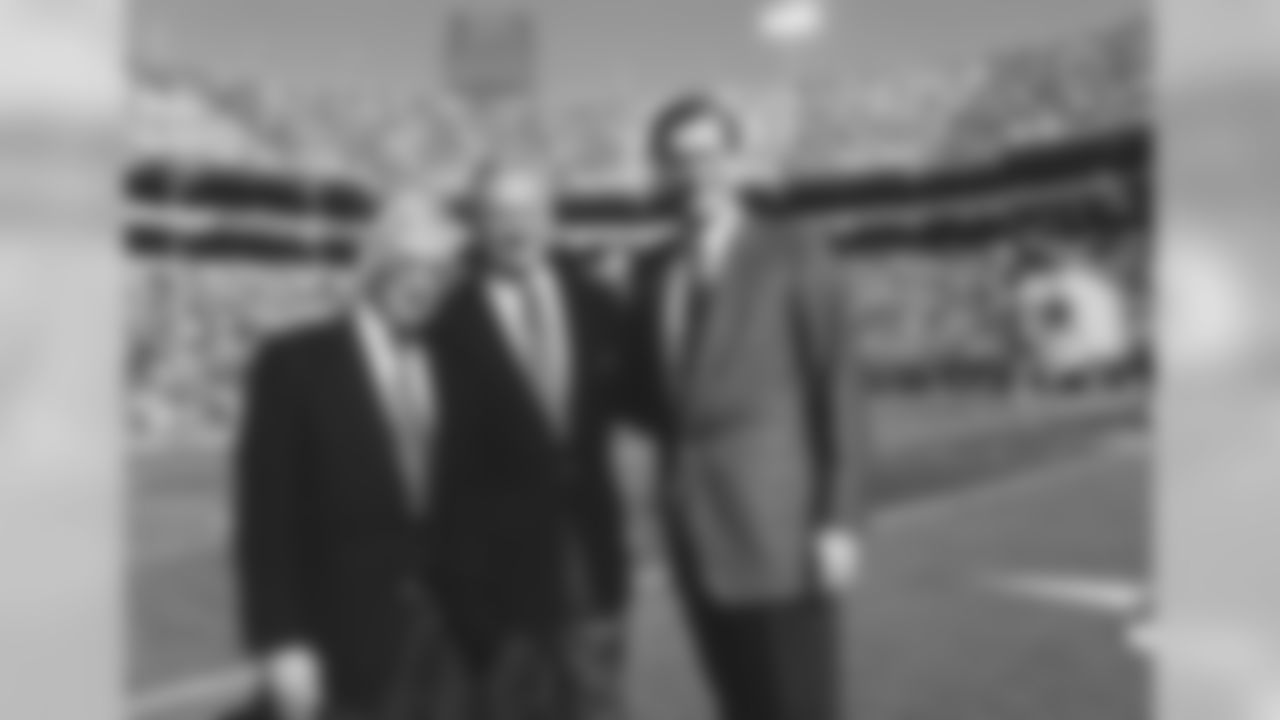
Dan Rooney poses for a photo with Jerry Jones, owner of the Dallas Cowboys, and Commissioner Paul Tagliabue prior to Super Bowl XXX.
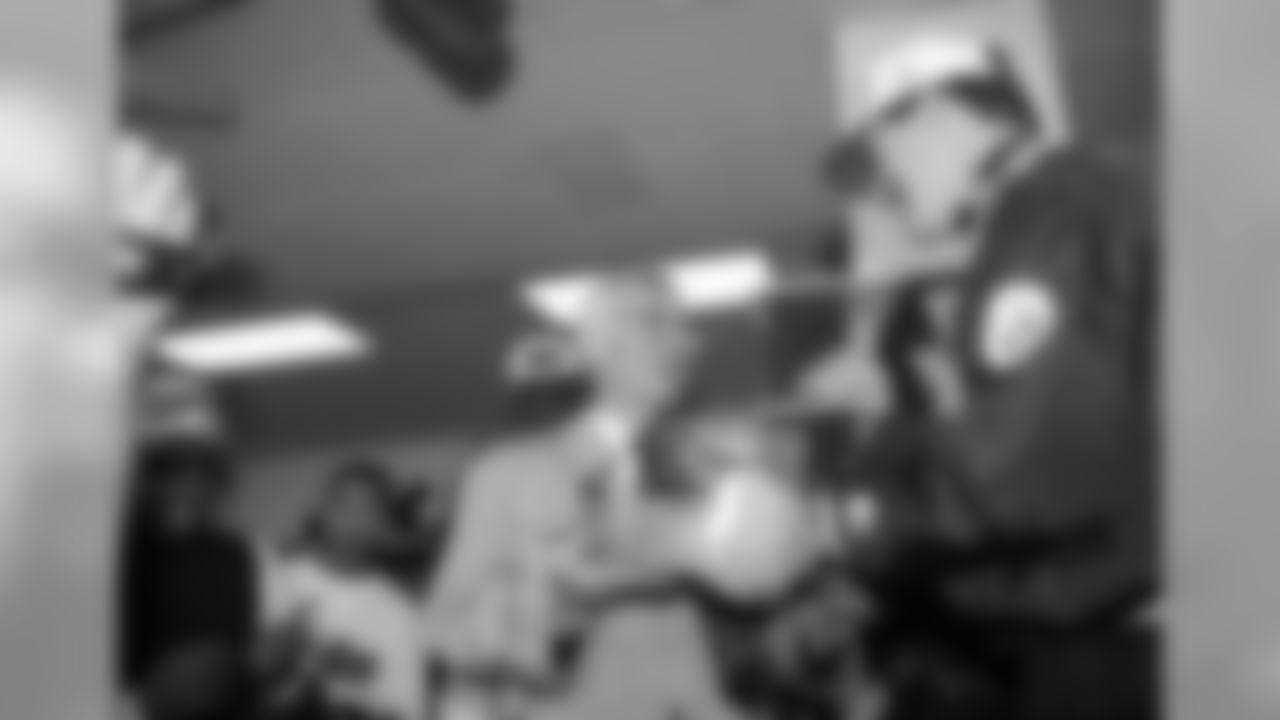
Dan Rooney receiveds the Lamar Hunt trophy from Coach Bill Cowher after winning the AFC Championship game against the Indianapolis Colts on January 14th, 1996.
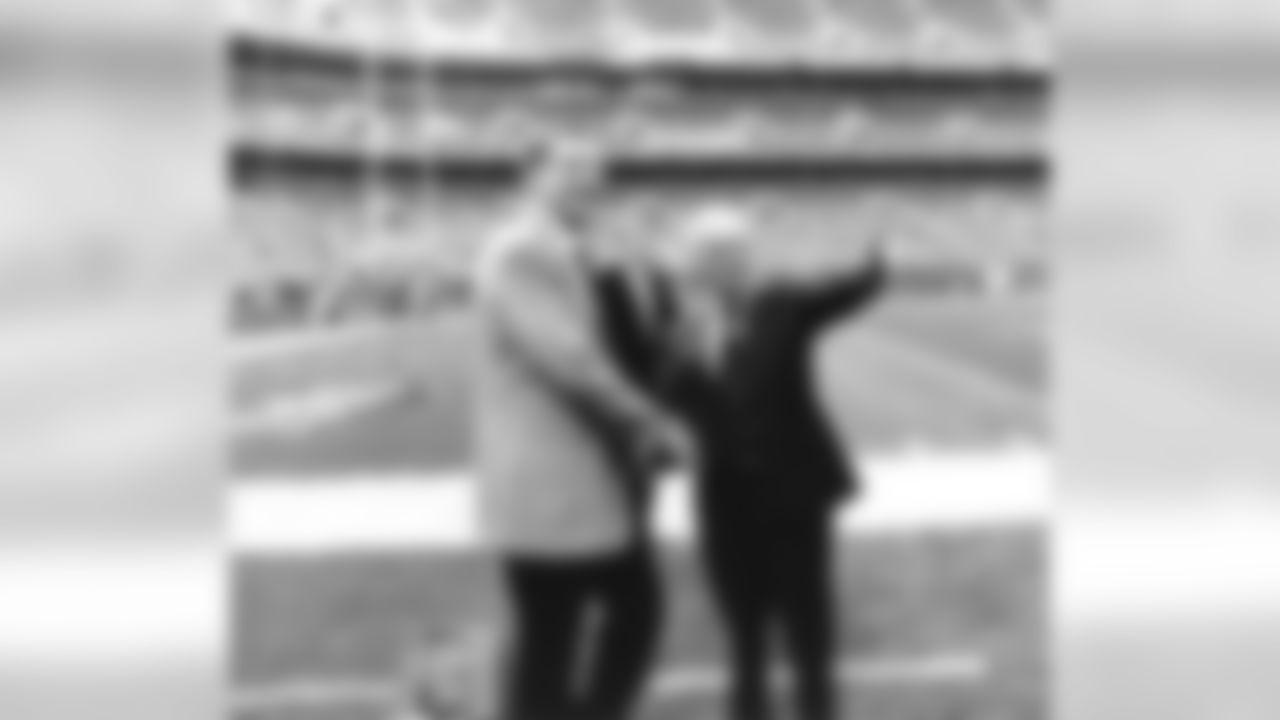
Dan Rooney, Paul Tagliabue and Roger Goodell.
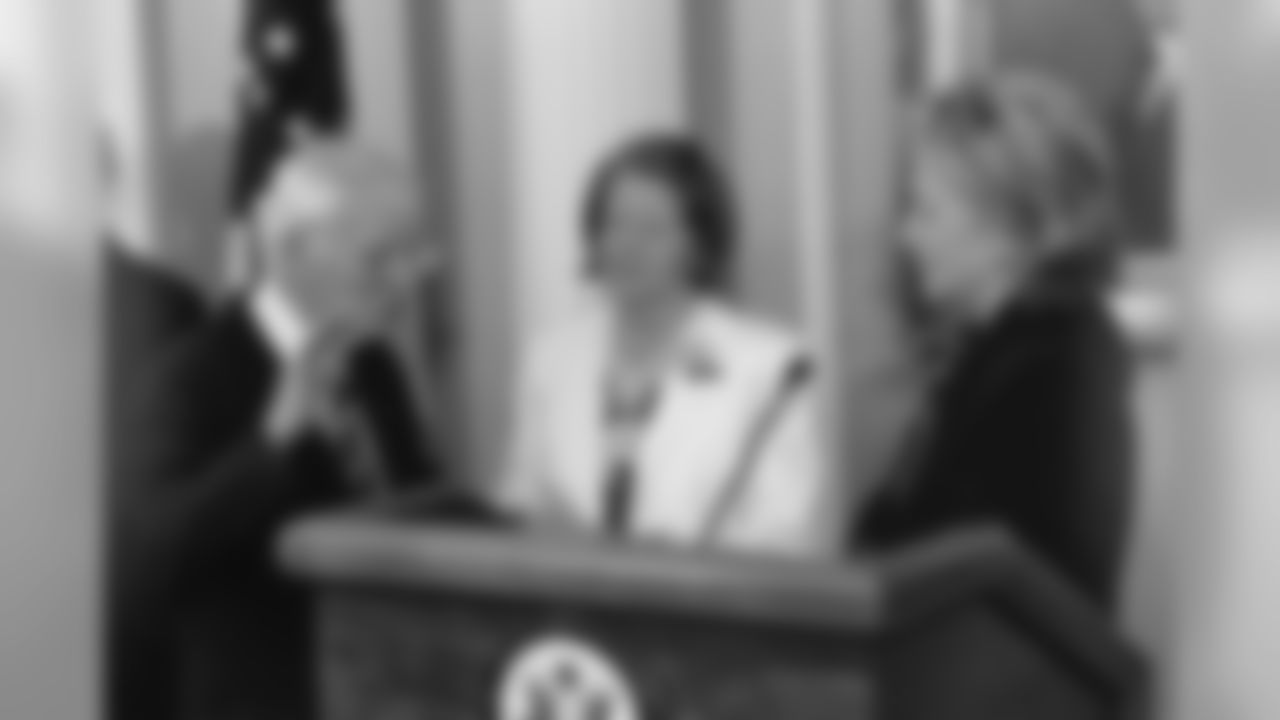
Dan Rooney is sworn into office as Ambassador to Ireland by Hillary Clinton.
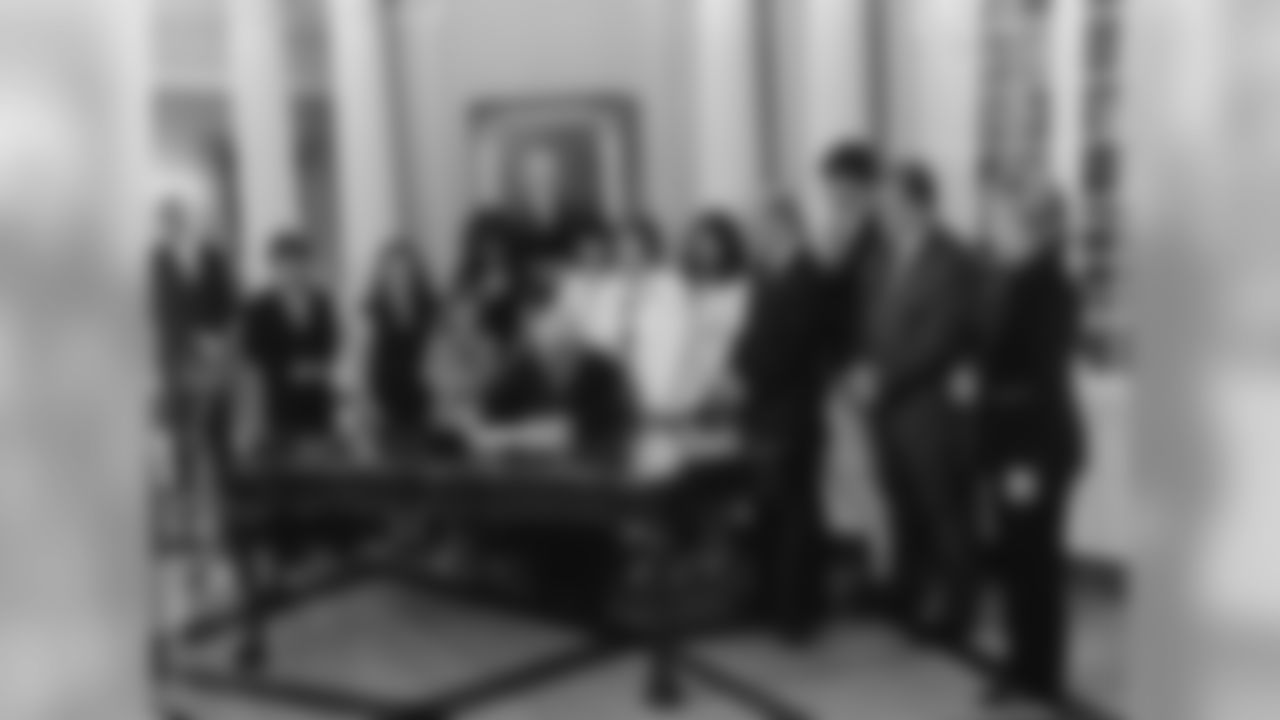
Dan Rooney is sworn into office as Ambassador to Ireland by Hillary Clinton.

Dan Rooney talks with John Stallworth.
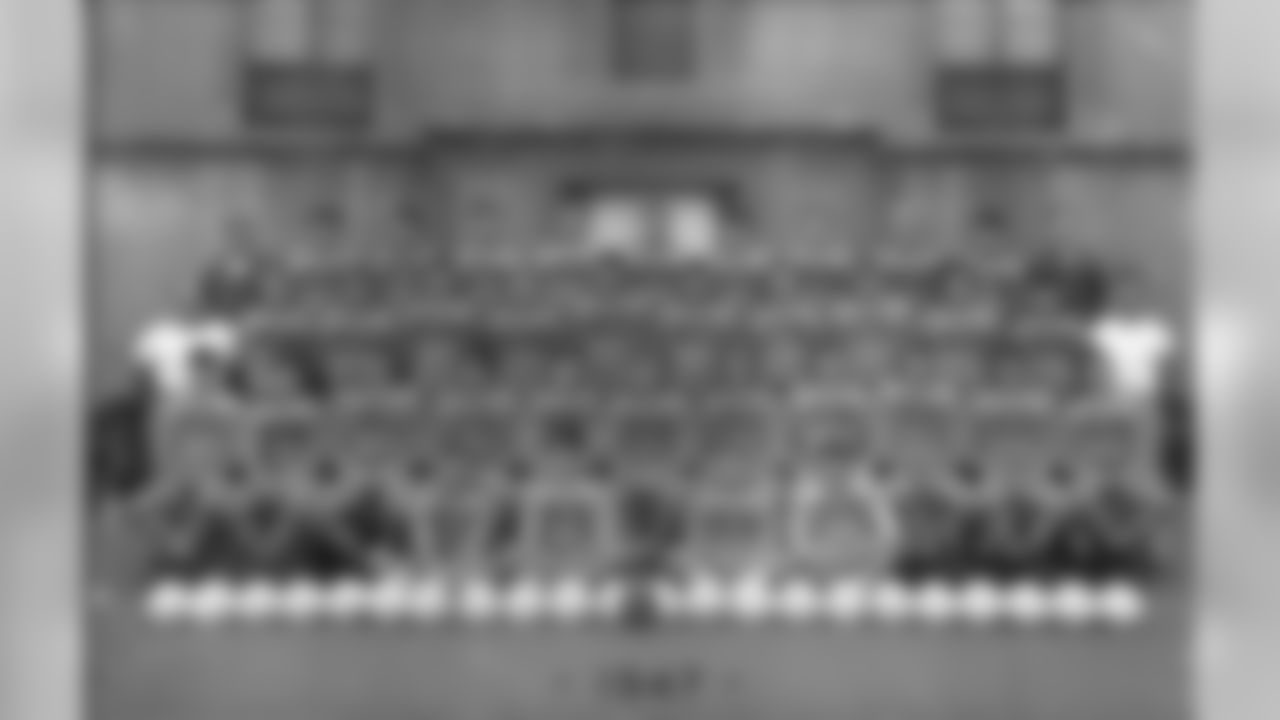
Dan Rooney, pictured top right No. 64, with his North Catholic team.
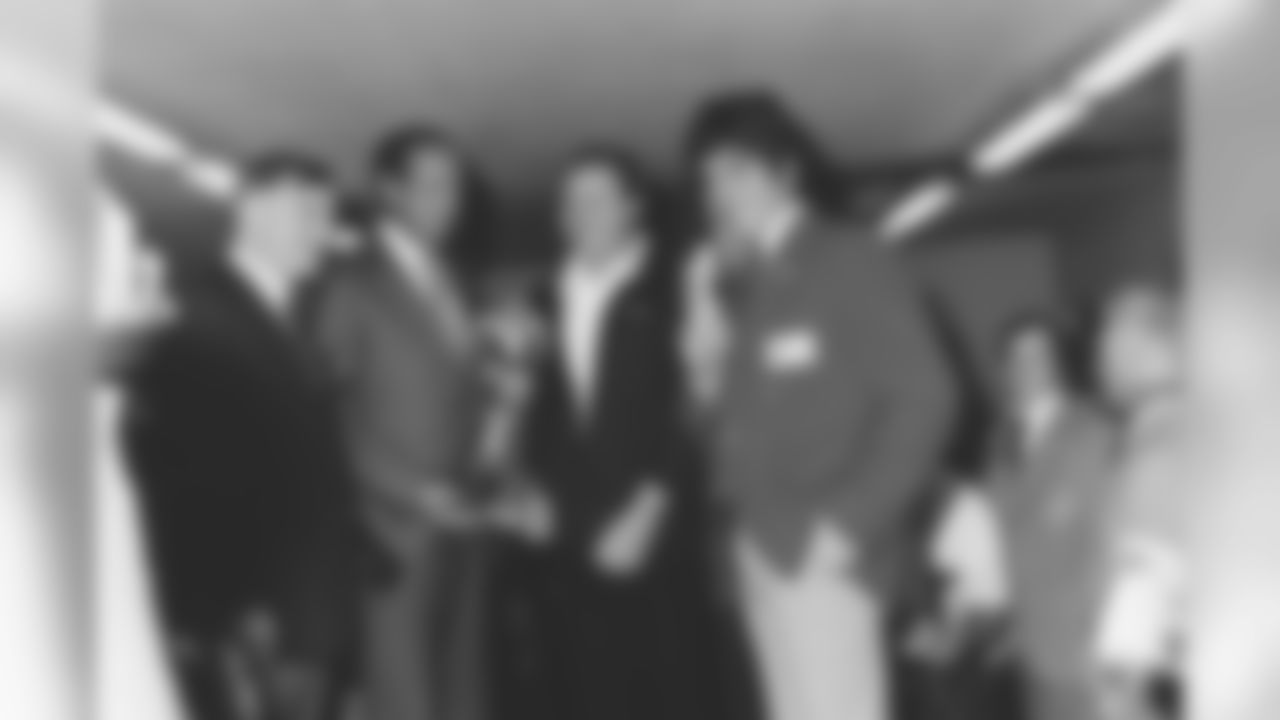
Dan Rooney with Steelers head coach Chuck Noll as they receive the Lombardi Trophy from NFL Commissioner Pete Rozelle following their victory in Super Bowl XIII, where the Steelers defeated the Dallas Cowboys 35-31.
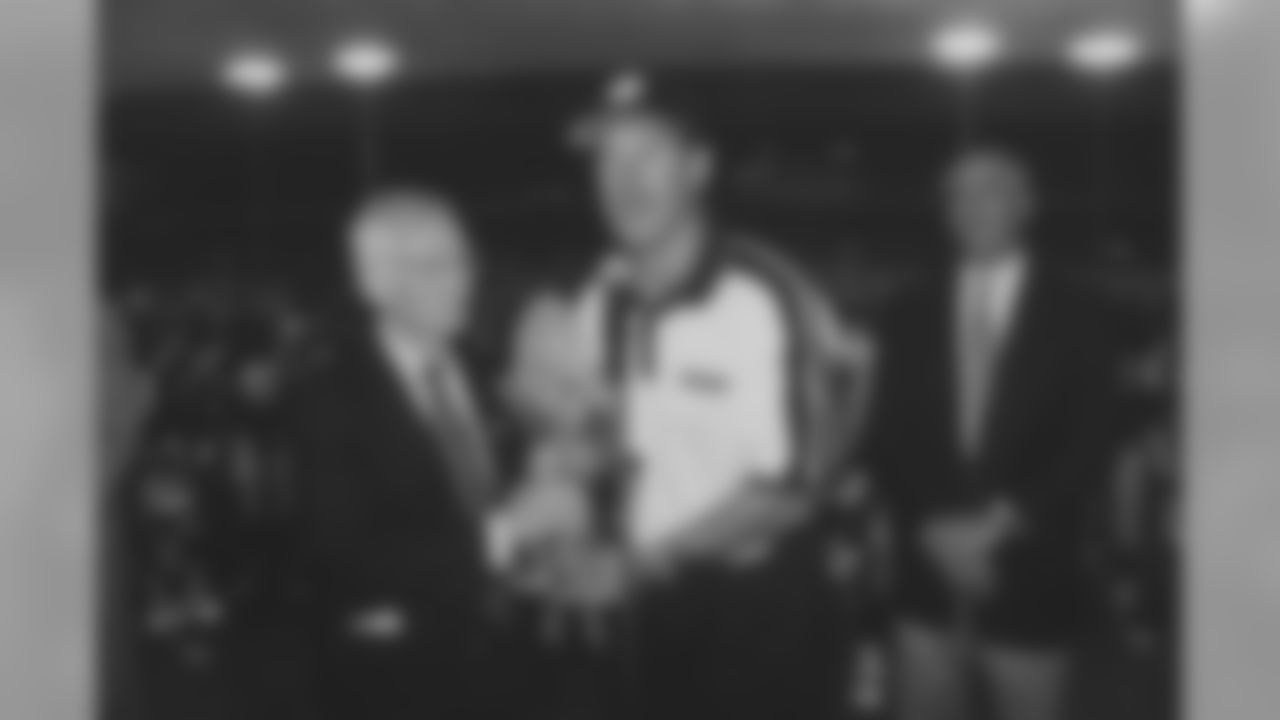
Dan Rooney holds the American Bowl trophy with Coach Bill Cowher following their victory over the Chicago Bears in Ireland.
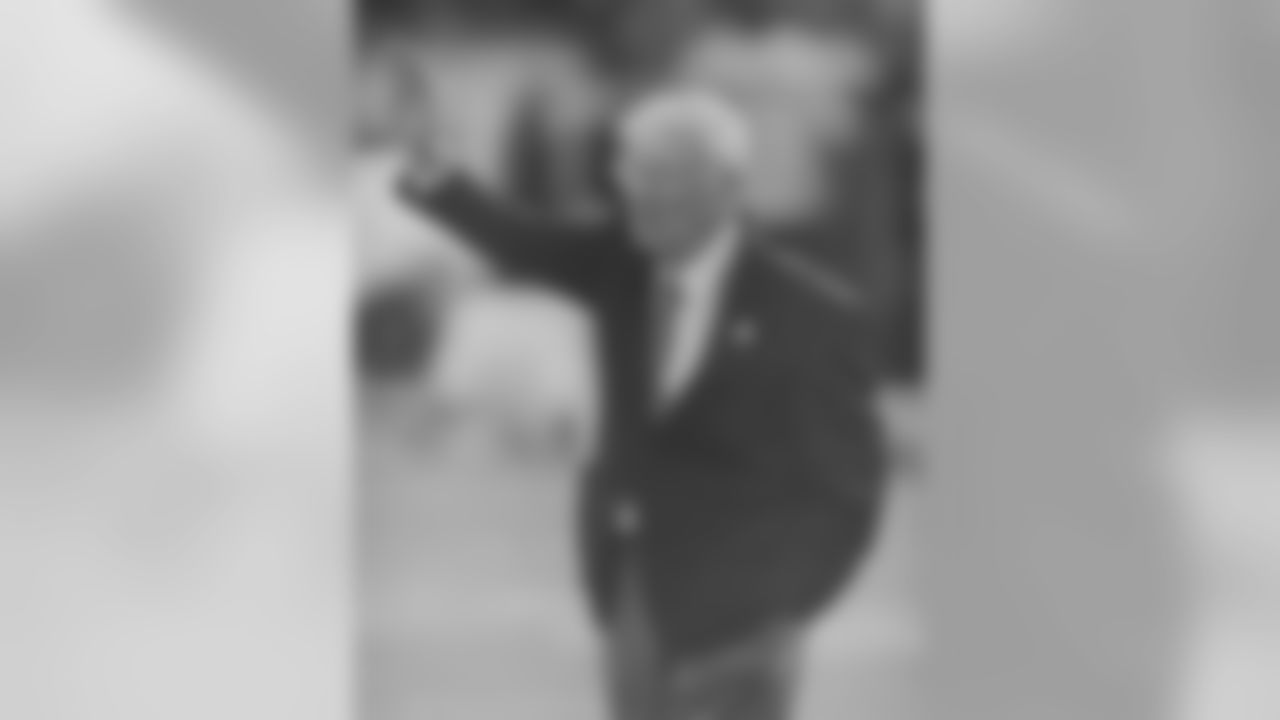
Dan Rooney waves to fans prior to Super Bowl XLIII.

Dan Rooney stands on the field with Coach Bill Cowher.
Once when asked to describe his favorite part of an NFL game day, he said, "Getting up and walking down to the stadium with the fans, allowing them to talk to you and ask any questions. And then, of course, checking out everything (at the stadium). I'm always big with checking everything to make sure things are running right, and that used to burn some people up. But I did that, and I enjoyed it. And I think I made a contribution, too.
"But at one o'clock – well, it used to be one o'clock every week, but now it could be any time – the ball is on the tee and they're going to kick it off. That is the most exciting time. Everybody thinks about the end of a game when the outcome is determined, and the end is important, but that opening kickoff every week is really an exciting time."
Dan Rooney, devoted husband, beloved father, dedicated Pittsburgher, former U.S. Ambassador to Ireland, member of the Pro Football Hall of Fame, author of the Rooney Rule that promoted diversity in hiring NFL coaches, and iconic sportsman, died today, April 13. He was 84.
"It is a sad day for my family and me," said Steelers President Art Rooney II. "My father meant so much to all of us, and so much to so many past and present members of the Steelers organization. He gave his heart and soul to the Steelers, the National Football League and the City of Pittsburgh.
"We will celebrate his life and the many ways he left us in a better place."
Daniel M. Rooney is survived by his wife of 65 years, Patricia, and seven of their nine children: Arthur II (Greta); Patricia Gerrero (Robert); the late Kathleen Miller (Thomas); the late Rita; Daniel Jr. (Allison); Mary Duffy; John (Emma); James (Stephanie); and Joan Clancy (Christopher); 20 grandchildren and five great-grandchildren. He also is survived by brothers Arthur Jr. (Kathleen); Timothy (June); Patrick (Sandy); and John (JoAnn); plus numerous nieces and nephews.
The oldest of Art Rooney Sr.'s five sons, Dan Rooney was born in Pittsburgh on July 20, 1932, in Mercy Hospital, which always was a point of pride for him for three reasons: because that made him "the first Rooney to be born in a hospital," because the Sisters of Mercy came from Ireland during the Great Potato Famine of the 1840s to care for the people of Pittsburgh, and because Mercy Hospital was the first hospital built west of the Allegheny Mountains. He would go on to graduate from North Catholic High School in 1950 and then from Duquesne University in 1955, both of which were located within the City of Pittsburgh limits.
At North Catholic, Dan Rooney quarterbacked the football team, and he never tired of reminding people that he was good enough to be voted second-team All-Catholic League at the position during his senior year behind a kid from St. Justin's named John Unitas. But even before that, Dan Rooney fell in love with football and with the team his father had founded in 1933.
He was just 9 years old when his father and Philadelphia Eagles owner Bert Bell and New York financier Lex Thompson became involved in a complicated three-way deal that in Art Rooney Sr.'s mind was designed to save professional football in Pittsburgh. Thompson was to buy the Steelers and move them to Boston, with Bell and Rooney joining forces and creating a team to be called the Keystoners, which would play its games on both ends of the Commonwealth of Pennsylvania.
The league approved the sale, but a group of NFL owners led by George Preston Marshall came together to block Thompson's move to Boston, because Marshall was adamant about not allowing Bell and Rooney to have control over all of Pennsylvania. What ended up happening was that Thompson came to own the Eagles and was mollified by Philadelphia being geographically closer to Boston, and the Bell-Rooney partnership re-gained control of the Steelers, with the team remaining in Pittsburgh.
But in the meantime, there was a 9-year-old boy to mollify. "Now, I was just a kid when this was going on," Dan Rooney wrote in his book, Dan Rooney: My 75 Years with the Pittsburgh Steelers and the NFL. "My mother tried to explain these dealings to me, but no matter what she said, I fretted about Pittsburgh losing the Steelers."
It took his father telling him over the phone, "Don't worry, Danny. We're not going to sell the team. This is just something we have to work out."
AN AVIATOR-IN-TRAINING
And true to his father's promise, it did work out, and the love affair with the Steelers grew as the boy grew into a man. But along the way, young Dan developed another interest outside of football, and his father nurtured that with what was referred to during World War II as a "spotter's guide." This was a poster that contained silhouettes of military and civilian aircraft, and young Dan Rooney studied that poster and scanned the skies until he learned to identify every plane he saw.
This interest in aviation would bubble to the surface some years later, and once that happened, Dan Rooney became an avowed pilot. He bought his first plane – a Beechcraft A35 Bonanza V-tail – from Chuck Noll when Noll decided he wanted to go newer and bigger and purchased a twin-engine Beechcraft Baron.
"A pilot can't panic," Dan Rooney wrote in his book. "That's why it's important to do your homework, learn the flight systems, review emergency procedures (for engine failure, engine fire, electrical fire, alternator failure, etc.) and keep your head."
There were several flights that tested the skills of this aspiring pilot, but like everything else, Dan Rooney studied and worked and practiced until he taught the Bonanza to do his bidding. And so flying that plane would become his preferred method of travel whenever possible, and always from Pittsburgh to his team's training camp site on the campus of Saint Vincent College in Latrobe. On those occasions when his players and coaches didn't know whether the boss was planning to visit camp on a particular day, he was known to buzz the practice field either to announce his arrival or to signal his departure back to Pittsburgh.
Driving from Pittsburgh to Latrobe along Route 30 no longer was in his personal playbook, even though there was one specific trip when Dan Rooney should've called an audible. He described the incident that took place in the summer of 2000 this way:
"The mechanics who had just rebuilt the engine of the Bonanza either did not put the alternator on properly or installed a defective unit. I had no problem flying to Latrobe, but on the way back I ran into trouble. The lights on my instrument panel began to blink off. All electric needles shimmied side-to-side, then off. The radio went dead. I switched on the standby alternator. Nothing. The landing gear was almost all the way up but not completely retracted. I couldn't fly the plane and reach around to the back of the seat on the passenger side to wind the hand crank that would normally extend the (landing) gear. I just couldn't do it. I called the tower on my cell phone but got voice mail. This was not good."
His next move was to call 9-1-1, but the operator didn't believe the caller when he identified himself as Dan Rooney. "Dan Rooney? Of the Pittsburgh Steelers? Yeah, right" is what the operator said to him. It took some convincing, but the 911 operator came to believe the voice and became an active part of the solution, because without electricity the Bonanza's radio didn't work. And so the line of communication had to be pilot-to-911-to-tower-to-911-to-pilot.
Told to burn as much fuel as possible, Dan Rooney replied that he was going to land when the sun set, and he was going to land in a patch of grass between the runway and the taxiway at Allegheny County Airport. On his last pass on a west heading, the sun set and his cell phone's battery died, and so as Dan Rooney flew over the tower one last time he rocked the wings of the plane as a signal he was about to land.
Dan Rooney called it "the best landing I've ever made in my life," and he walked away from it unscathed, but since the incident quickly became big news in Pittsburgh, the Steelers decided to hold a press briefing at training camp to allow their owner/aviator the opportunity to explain the events to the public.
It was a well-attended presser, to put it mildly, and during the session there was this exchange with one local television sportscaster that was classic Dan Rooney:
QUESTION: Instead of trying to land in the grass, did you ever consider having the airport lay down foam on the runway and land the plane that way?
Dan Rooney: That was an option I considered, but I decided landing in the grass was a better option.
QUESTION: Isn't it true that if you request foam on the runway, then you have to pay for the foam to be cleaned up afterwards?
Dan Rooney: I can guarantee you that the decisions I was making at the time had nothing to do with me trying to save a couple of bucks.
LEARNING THE FAMILY BUSINESS
Before Dan Rooney was of legal age in Pennsylvania, he had thrown himself into the business of professional football. He negotiated contracts while still a student at Duquesne, and when he graduated with a Bachelor of Arts degree in accounting, he began his official duties with the family business, the Pittsburgh Steelers.
For much of the ensuing decade, Dan Rooney served the Steelers in a variety of roles, from designing game program covers to scheduling the halftime entertainment, but it wasn't until the mid-to-late-1960s that his influence extended into what now would be known as football operations. Starting in 1957, the Steelers were coached by Buddy Parker, who had won a couple of championships with the Detroit Lions and was known to overreact to losses by haphazardly trading or cutting players. Also a coach who despised rookies, Parker had gutted the Steelers' future by trading away draft picks in bunches, often times for over-the-hill veterans whose contributions were minimal and short-lived.
After a 1964 season in which the Steelers finished 5-9, Dan Rooney informed Buddy Parker he was forbidden to cut or trade any more players without approval. During the 1965 preseason, Parker tested the young executive and delivered an ultimatum – that either he as the coach had final say on all football matters or he would resign. Dan Rooney ultimately accepted Parker's resignation, and a new era had dawned for the Pittsburgh Steelers.
It took some time – four more losing seasons and two more coaches to be precise – but after the 1968 Steelers finished 2-11-1, the team embarked on another coaching search, but this one was headed by Dan Rooney. Art Rooney Sr. still had veto power as the owner of the franchise, but his son's coaching search was geared more toward finding the right person to lead the franchise out of the wilderness than it was about simply hiring a family friend or someone recommended by people around the league trying to get a pal a job.
THE PROCESS OF FINDING THE RIGHT COACH
Dan Rooney's search first led him to Penn State coach Joe Paterno – who was 24-7-1 in three seasons with the Nittany Lions, but he turned down the job – and then to a young Baltimore Colts assistant named Chuck Noll. Art Rooney Sr. approved of Noll, and the Steelers were ushered into a new era, one of prosperity as professional football became the most popular sport in America, as well as one of unprecedented on-field success with the Steelers winning four Super Bowls during a six-season span of the 1970s.
After standing up to Buddy Parker, Dan Rooney would be involved in the hiring of three Steelers coaches – Noll, Bill Cowher, and Mike Tomlin – and all of those men have taken the Steelers to a Super Bowl championship during a combined tenure that currently spans 48 years, and counting.
"I think it was the process that was the right thing," said Dan Rooney when asked about the franchise's unique success in finding qualified coaches. "There are a lot of parts to it, but the big thing is the interview, and what the person has to say to show that he is a good person. Talking to other people about him isn't as critical, because almost everyone you would ask would have good things to say. You have to take that as part of the evaluation, and there might be things you find out from talking to other people that you want to look at further, even if they are good things.
"Talking to the individual and seeing how he reacts in those situations, and what he has to say, that's what I always saw as important. I didn't just have one interview and then try to list their qualities. I called them back, talked to them at night and brought them in again. Bill Cowher would always say that when I would call him and talk to him, his wife Kaye would ask when we were finished, 'What did he say?' He told her we would talk about different things, and then she would ask, 'What did he say about football?' He would answer, 'We didn't talk about football,' and that was the truth. We didn't need to talk about football. We wanted to find out about him the individual. I know all these guys know something about football, or they wouldn't have been in the position to be interviewed in the first place."
HELPING GUIDE THE NFL INTO THE MODERN ERA
In addition to guiding the Steelers from the dark ages into a renaissance on the field, Dan Rooney also was very instrumental in doing similar things for the NFL. In 1973 he was named Chairman of the League's Expansion Committee that added Seattle and Tampa Bay to the NFL, in 1976 he was named Chairman of the Negotiating Committee, and he also served on the eight-person Management Council Executive Committee, the Hall of Fame Committee, the NFL Properties Executive Committee, and the Player/Club Operations Committee.
"When I first became commissioner, he would work in the league office on scheduling," said Pete Rozelle in a 1987 interview. "That's a very intricate talent. He would figure it out. There were 12 teams then. But he had certain guidelines – you didn't want any team at home for three straight weeks, or away three straight weeks; you had to avoid baseball; and you had to avoid stadium conflicts. He knew all the phases of the game."
Dan Rooney was instrumental in the formation of the system of free agency tied to a salary cap that was instituted by the NFL in 1993 and has become a model for professional sports leagues around the globe.
"Dan's leadership did not stop there," former NFL Commissioner Paul Tagliabue once said. "He was deeply involved in resolving disputes and reaching agreements with the NFL Players Association starting back in the 1970s. His integrity and understanding of both football and team economics made him invaluable in negotiations on the college draft, the need for competitive balance on the football field, free agency, and player safety matters.
"But Dan Rooney is not just an innovator, consensus builder, and peacemaker. He is a fighter who relishes a good argument, or – when his convictions and core interests are challenged – even a tough lawsuit. For Dan, his right to fight to defend his principles, his Steelers, or his NFL in a courtroom is as crucial as a Steelers Super Bowl victory. Many pretenders and adversaries have learned this, including the USFL, the NFL Players Association, and others both inside and outside the NFL."
Dan Rooney was inducted into the Pro Football Hall of Fame as part of the Class of 2000, and at that time he and his father, Art Rooney Sr., joined Tim Mara and Wellington Mara as the only two father-son combinations in Canton.
OVERALL, A PEACEMAKER
He has a bust in Canton for his role in turning the Pittsburgh Steelers into a dominant franchise, for sure, but Dan Rooney's contributions to professional football and his influence on the NFL extended far beyond the city limits of Pittsburgh.
The family patriarch, Art Rooney Sr., long was an advocate of the players forming a union so as to secure a pension for their life after football. This respect for the players and the interest in their well-being was passed from father to son, and it came to pass that whenever there was a work stoppage or any other type of labor issue that arose in the NFL, Dan Rooney always was one of the consensus-builders in the room.
"Dan Rooney has been indispensable to this league," said Art Modell during the era when he was still the owner of the Cleveland Browns. "He's modest and self-effacing, but when there has been a problem, particularly in collective bargaining, we've called on him and he has delivered the goods. He knows the players' mentality and the mentality of the owners. I'd put the future of the Cleveland Browns in his hands as far as collective bargaining is concerned."
The 1982 strike was an especially bitter one, because it ended up costing the league seven regular season games while the issues were being resolved. For the NFLPA, Ed Garvey was painted as the villain by the NFL ownership and then by extension by the fans themselves, but Dan Rooney never saw it that way.
"The players are important," said Dan Rooney. "When (former NFLPA executive director) Ed Garvey said all those years ago, 'We are the game,' everyone on the management side got all excited. I never did. I'm willing to admit the players are the game, but so is everybody else. So are the coaches and the staff."
During the 1987 strike, Dan Rooney made sure that Tunch Ilkin, the team's player rep at the time, knew that his secretary had the key to unlock the gate of the makeshift practice facility adjacent to Three Rivers Stadium in the event a bunch of players wanted to get together for informal workouts as the work stoppage was being resolved. His integrity, his honesty, his commitment to doing the right thing instead of being committed to proving his side was in the right, all of that combined to forge a trust that allowed him to be a successful mediator in these disputes.
"If there were more Dan Rooneys, there never would have been a strike (in 1987)," said Ilkin at that time. "Players around the league recognize him as a fair-minded person. When you talk to him, you know you're talking to a real person. He's never condescending. You never feel like you're being talked down to."
Added present Commissioner Roger Goodell, "Dan was deeply involved in the NFL's labor negotiations, playing a key role for decades. He was seen as the voice of reason during many difficult discussions because he had a strong sense of the best interests of the game; he was practical; and he knew how to forge a consensus."
Cincinnati Bengals owner Mike Brown described it this way: "He doesn't just pursue his own agenda. He pursues the league's best interests. People know that, so they listen to him."
Dan Rooney worked tirelessly through many such negotiations with the NFLPA over different versions of the Collective Bargaining Agreement, and his deft touch in otherwise touchy matters became valuable during the time that he co-founded The American Ireland Fund to help bring peace and charity to Ireland. The Fund raised well over $300 million for peace and educational programs, according to Raymond H. Frye, who was the president of the selection committee that presented Dan Rooney with the John F. Kennedy Award in 2010.
Ted Smyth is a former Irish diplomat who was a firsthand observer of the birth and work of the American Ireland Fund, and this is what he said when Dan Rooney's posting as Ambassador was set to begin: "I think people will cheer on both sides of the Atlantic. Dan has an extraordinary record of commitment to the peace process in Ireland."
Smyth noted the millions raised by the Fund, before adding, "More than that, Dan raised awareness across America that there was a peaceful way forward, and the way of the gun was not the way to go. In retrospect, it now looks like the peace process was inevitable. But it was never inevitable."
SERVING COMMUNITY AND COUNTRY
Along with his love and dedication to the Pittsburgh Steelers and the NFL, Dan Rooney also dedicated himself to his community. He was a board member for The United Way of America, The American Ireland Fund, The American Diabetes Association, The Pittsburgh History and Landmarks Foundation, the Extra Mile Foundation, and the University of Pittsburgh Medical Center. In February 2000, Dan Rooney was recognized by the prestigious Maxwell Football Club in Philadelphia with the Francis "Reds" Bagnell Award for "contributions to the game of football."
Then after his Steelers won a sixth Super Bowl championship, Dan Rooney answered a call to serve his president. On March 17, 2009 – St. Patrick's Day, no less – President Barack Obama announced his intent to nominate Dan Rooney as the U. S. Ambassador to Ireland.
"I am honored and grateful that such a dedicated and accomplished individual has agreed to serve as the representative of the United States to the Irish people," said Mr. Obama. "Dan Rooney is an unwavering supporter of Irish peace, culture, and education, and I have every confidence that he and Secretary (Hillary) Clinton will ensure America's continued close and unique partnership with Ireland in the years ahead."
And with that, Dan Rooney left his beloved Steelers and the National Football League for a career in foreign service and another love of his life – Ireland.
"When the President of the United States asks you to do something, especially this president who is a friend of mine, you want to look at it and say, 'I should figure out how to do it,' rather than, 'Should I do this?' That was my primary thinking," said Dan Rooney at that time. "I did not support Barack Obama or do any campaigning for him to get anything in return. I wanted to get him elected, I did everything I could to get him elected. This (ambassadorship) came up afterward, and it has been received pretty well, talking about the people in Ireland. It looks like it can be a plus.
"I would have considered anything President Obama asked me to do. I really would have. They did ask me if I was interested in the Vatican or Ireland. I said, 'I'll do whatever you want.' Either one would be fine if I am going to do it. There are a lot of people in the hierarchy who thought I would be good at the Vatican. As it comes down to it, there is no question that I could do more in Ireland for the United States."
While serving as the Ambassador to Ireland, Dan Rooney hosted a picnic each July 4 in Dublin, with the menu being the standard fare of what families in the United States were serving at their own picnics and cookouts that day. But there was one change, of course: instead of softball or volleyball, the activity played on the grounds of the Ambassador's residence on the Fourth of July was what Dan Rooney saw as America's National Pastime: football. And in this situation, it was flag football, so everyone was able to participate.
COMING HOME
Once his posting in Ireland had concluded, Dan Rooney returned to America, to Pittsburgh, to his home on the city's North Side, and to his office at the UPMC Rooney Sports Complex, which always was right next to the office occupied by his son, Art II. But as he was preparing for Ireland and the Ambassadorship, Dan Rooney was asked if he had any advice for the NFL he was leaving, if only temporarily, and his words then still apply today.
"I could say the same thing about the league as I could say for society, and that is: don't let money and individual fame get in the way. The thing the NFL has, the thing that makes us good – and this is what motivated me – is the game. I realized the game is it. I think it's the best game in the world.
"We have good people here with the Steelers, and I think that is going to carry us on. We have had good people, because we have always tried to bring good people in. I think that has much to do with success. Everyone pulling in the same direction, everyone in this together.
"I would just like to be thought of as someone who gave his time to the game, who was willing to spend the extra hour when it came time to doing the job. But it's the people – which I did get from my father – the people are what counts. And they are people, they're individuals and not just left tackles or linebackers – even the quarterbacks."
Even though Dan Rooney was born with the Pittsburgh Steelers and the NFL in his blood, he often cited 1955 as the official start of his involvement in the family business. There can be no argument that 62 years later, he left everything he touched in better shape than he found it.
"The thing I've done is to just help everybody here do their job," he said., "and to be sure that they know that our integrity is always first and foremost. That if we say something, it better be right. We're not here to cheat anybody, the players or anyone else. You don't need to be out there trying to take advantage of people in order to succeed. And (that approach) hasn't hurt us."














